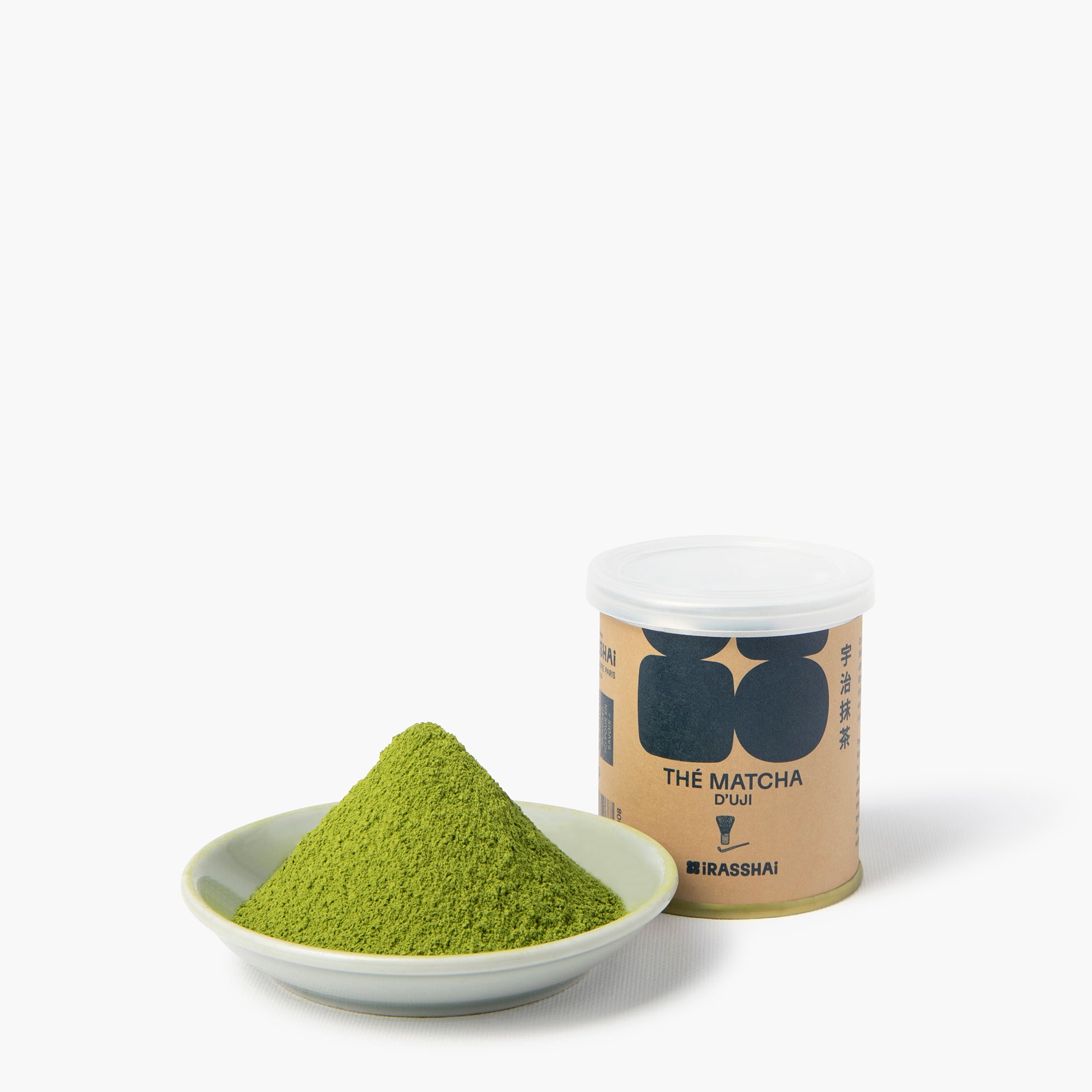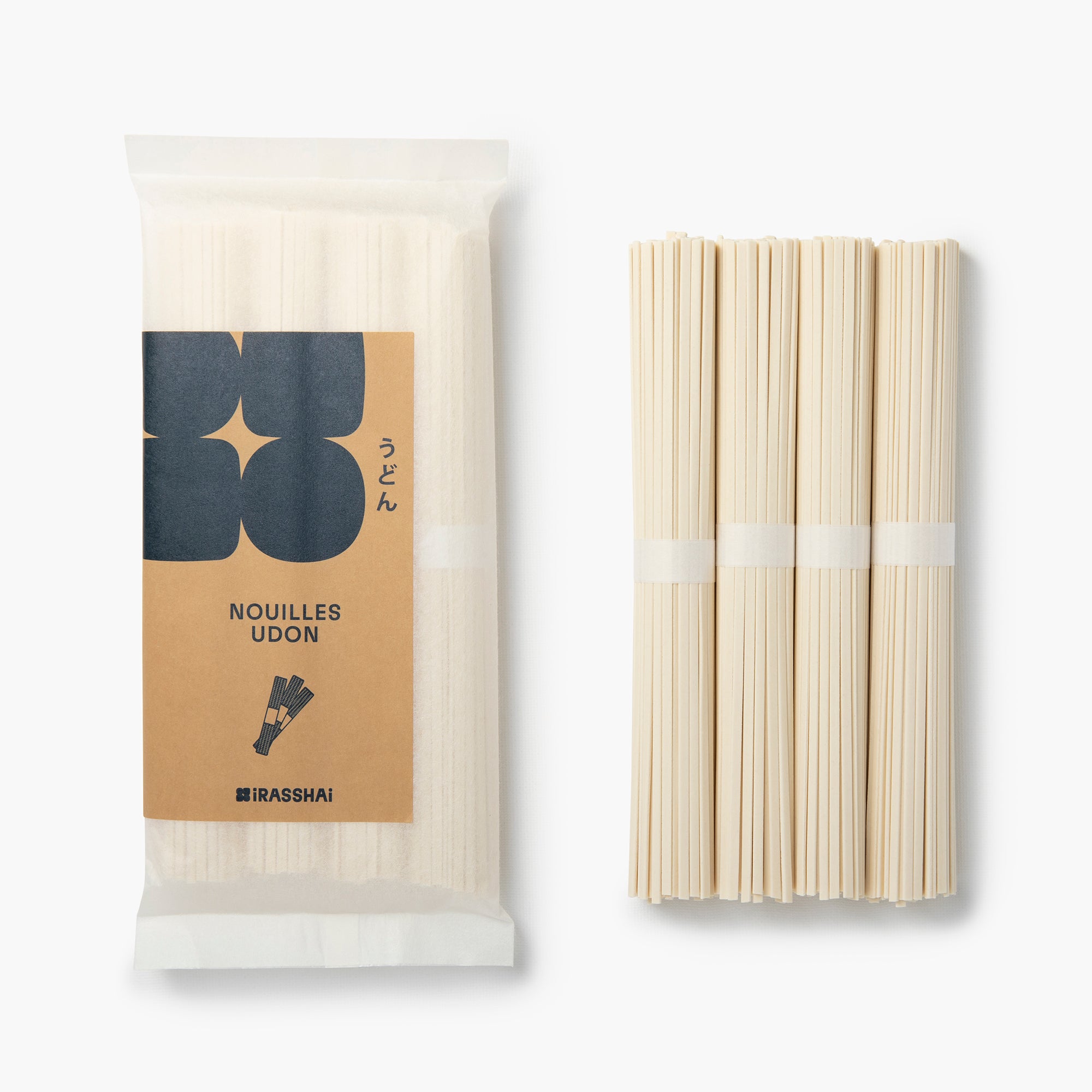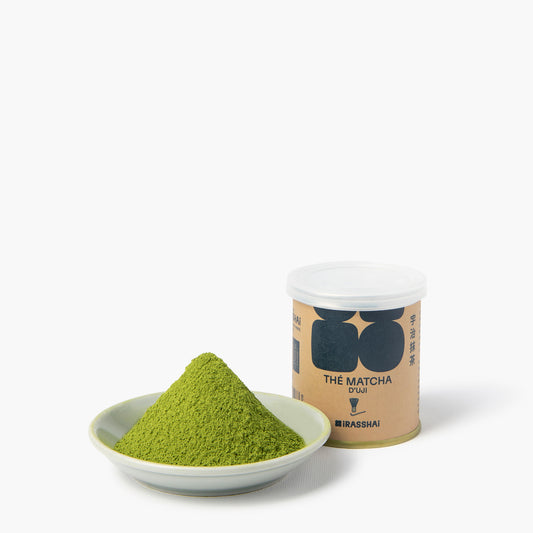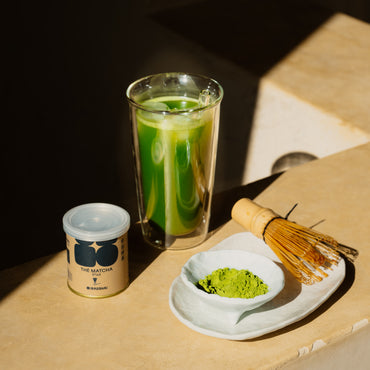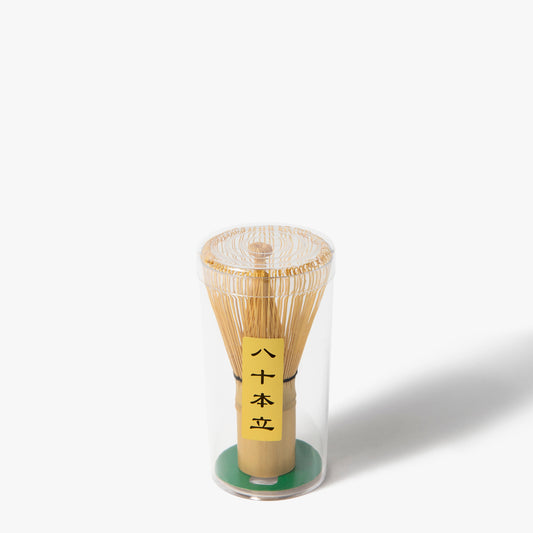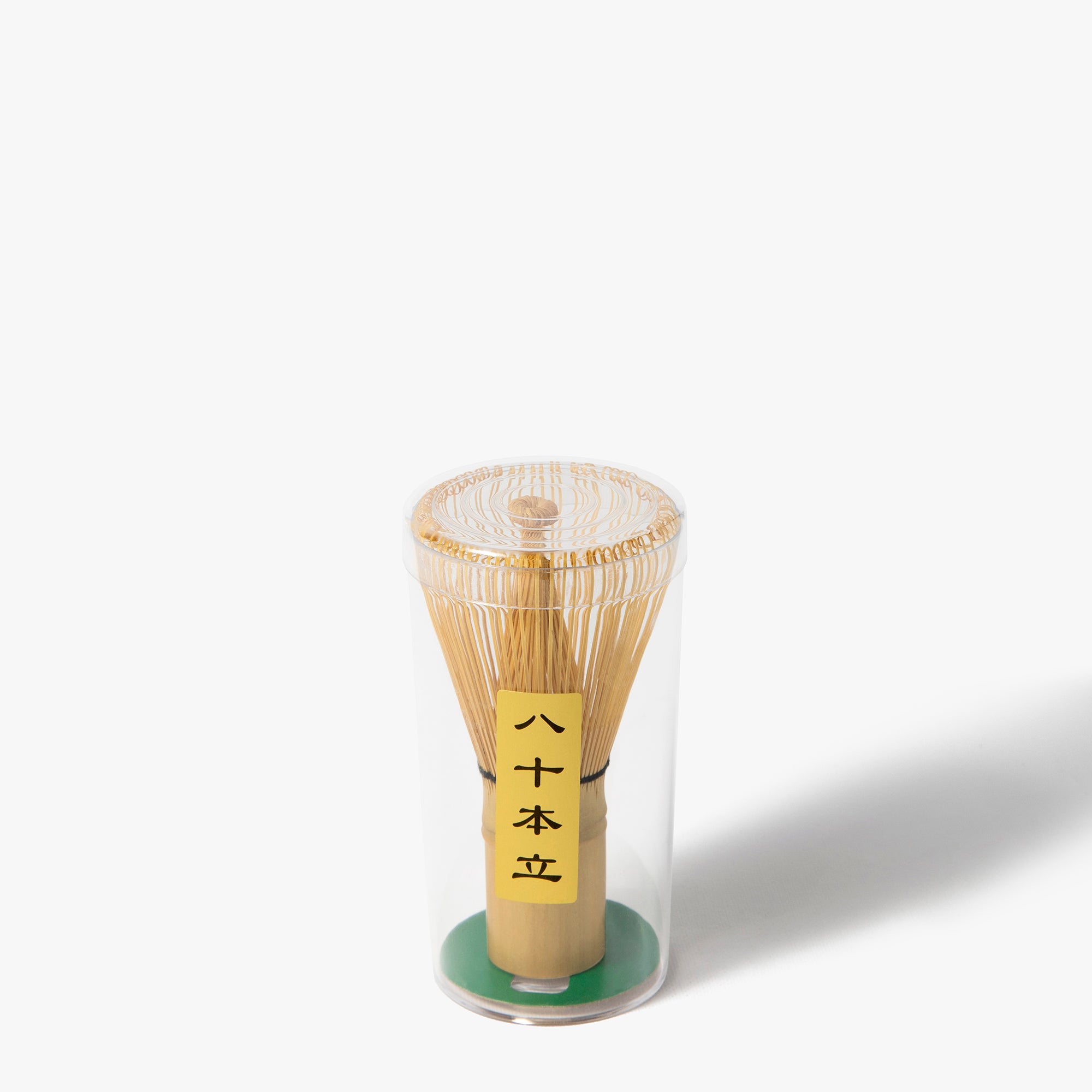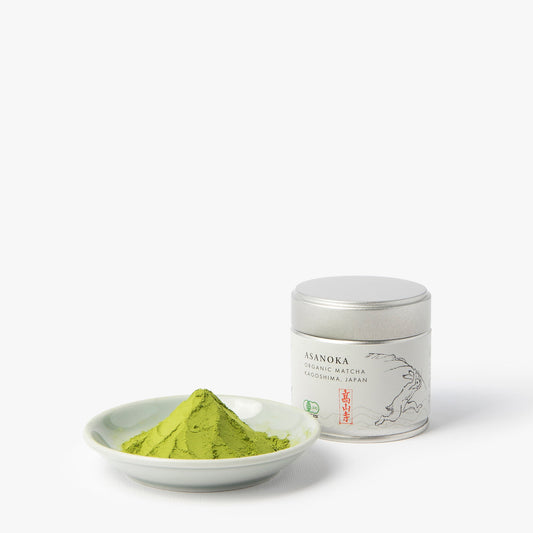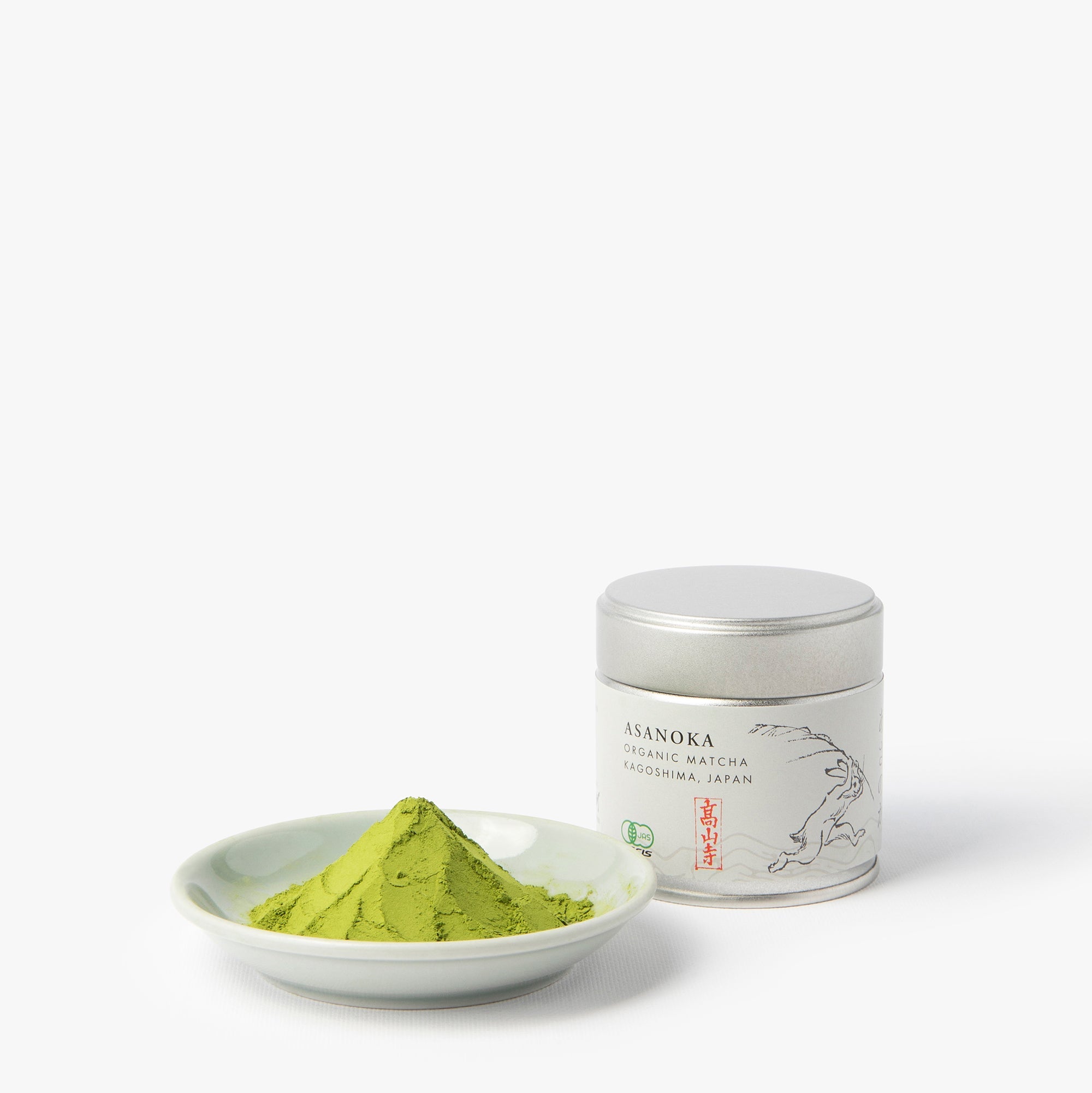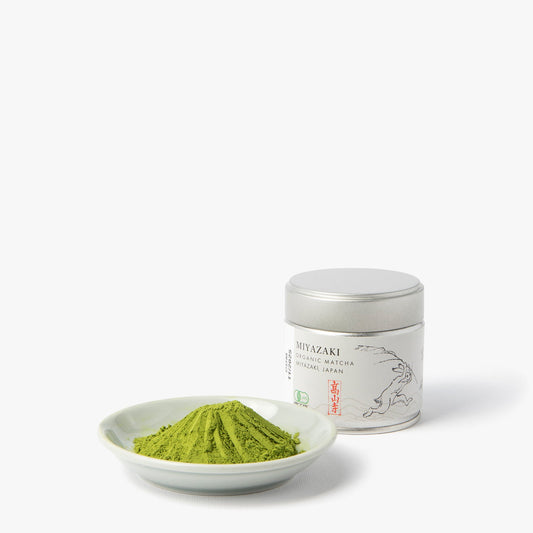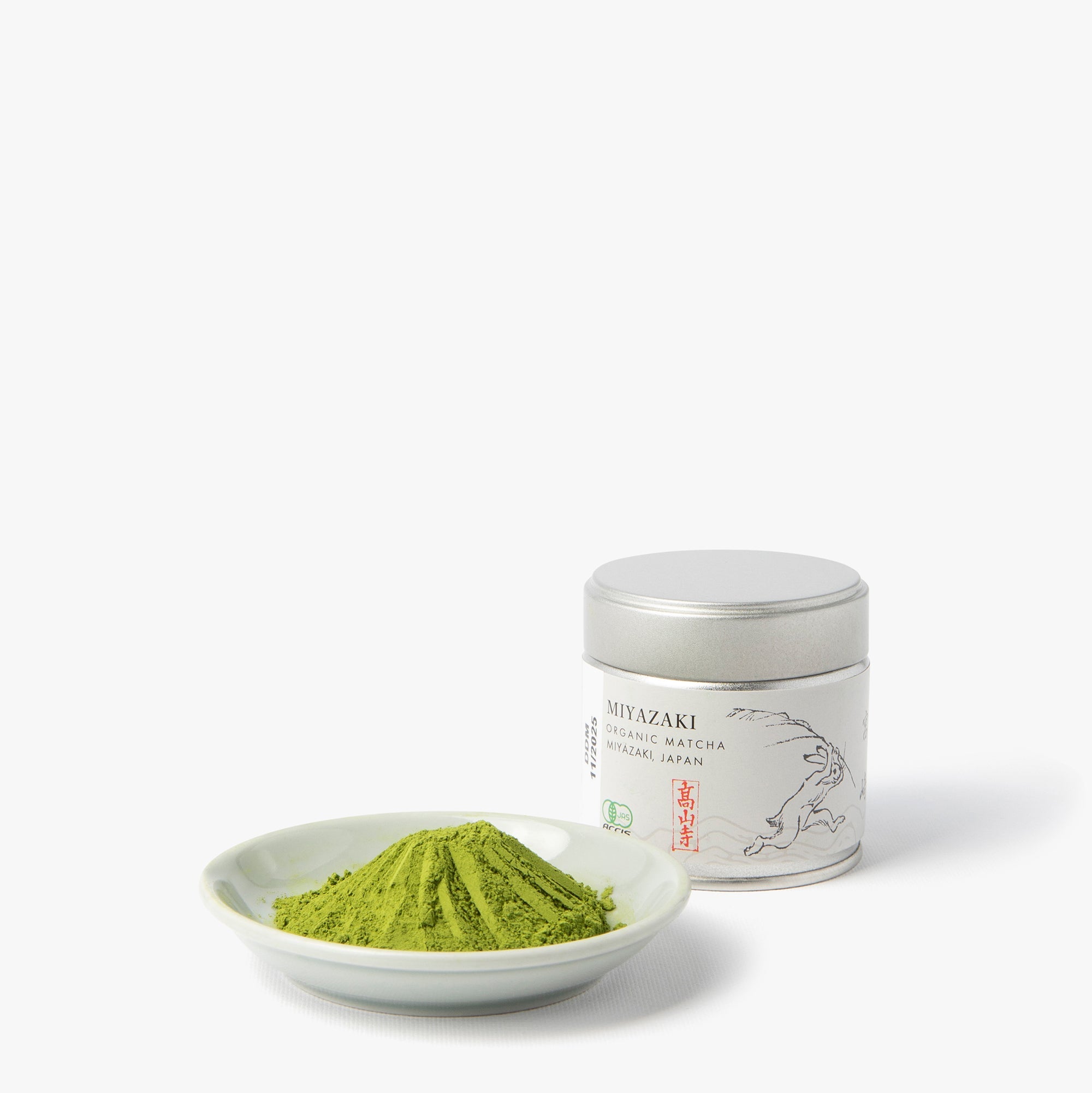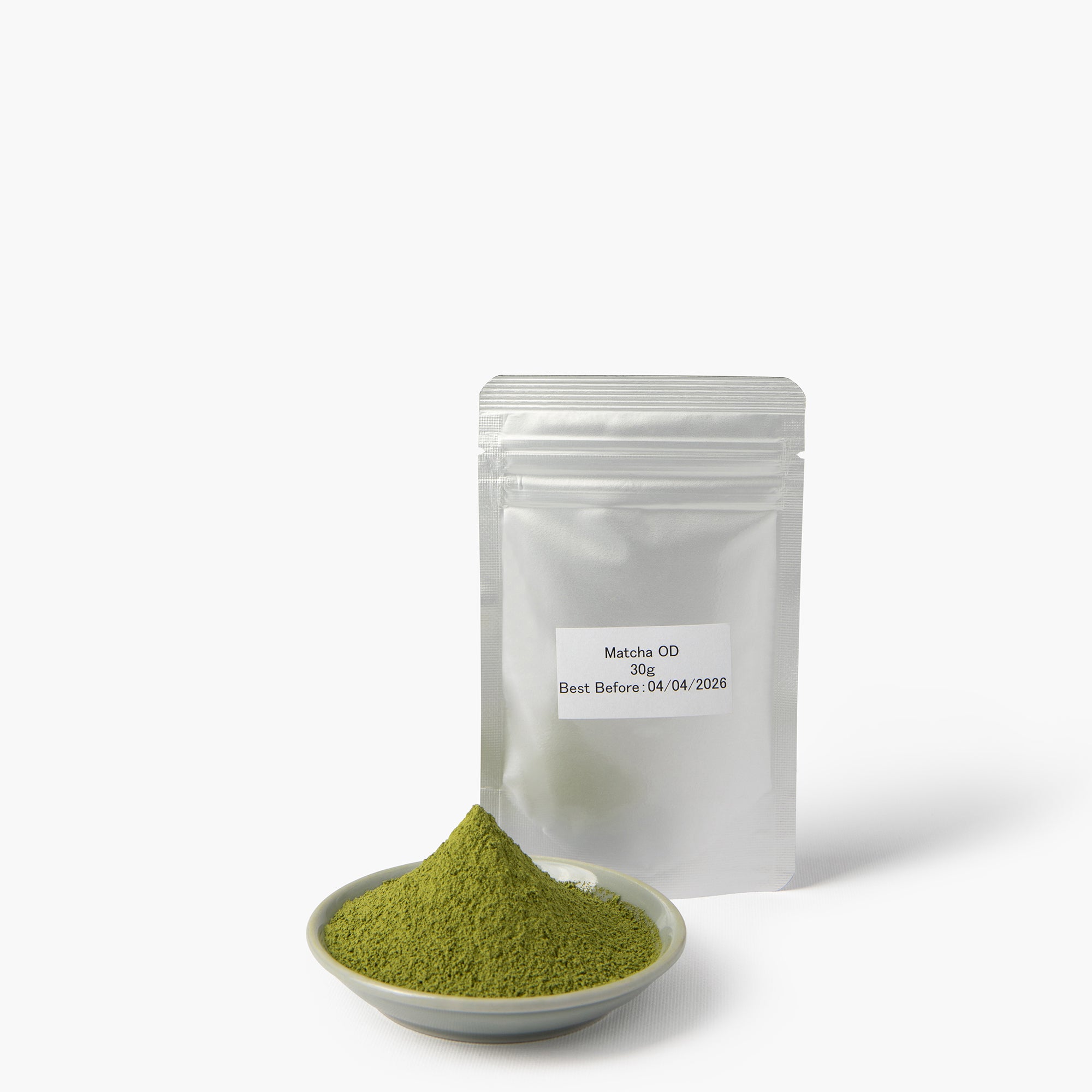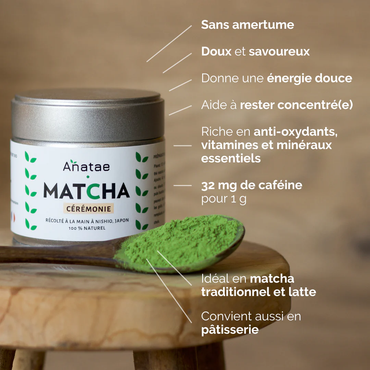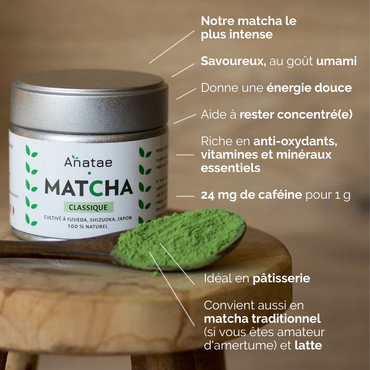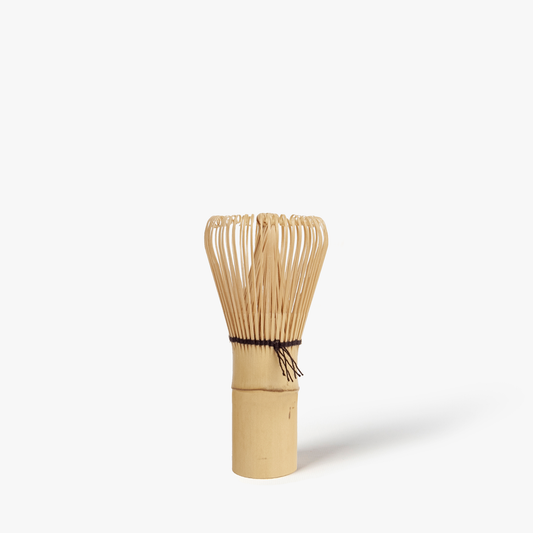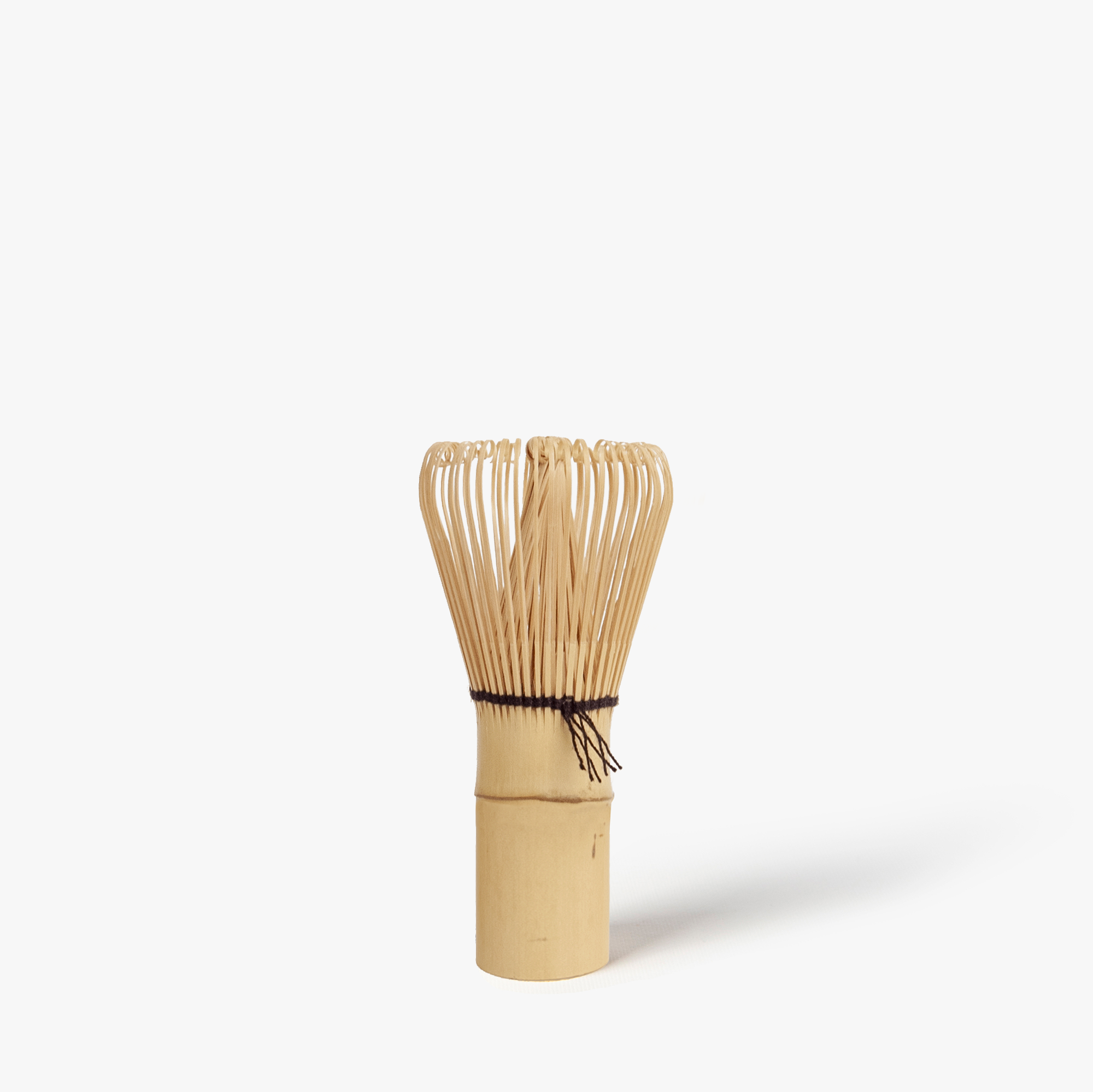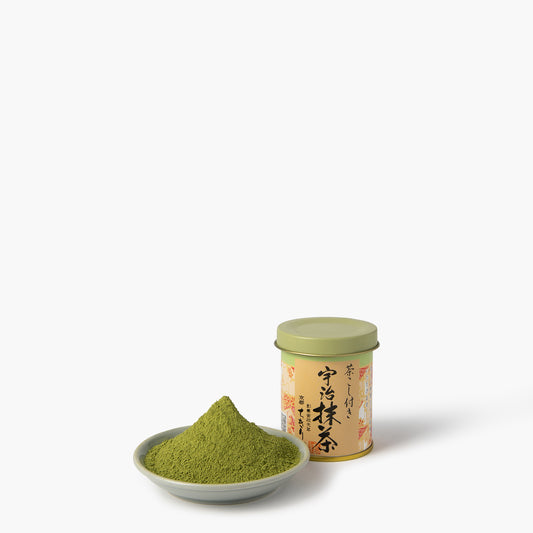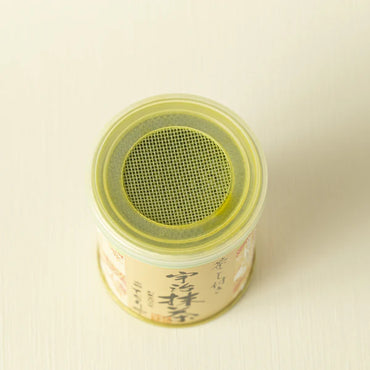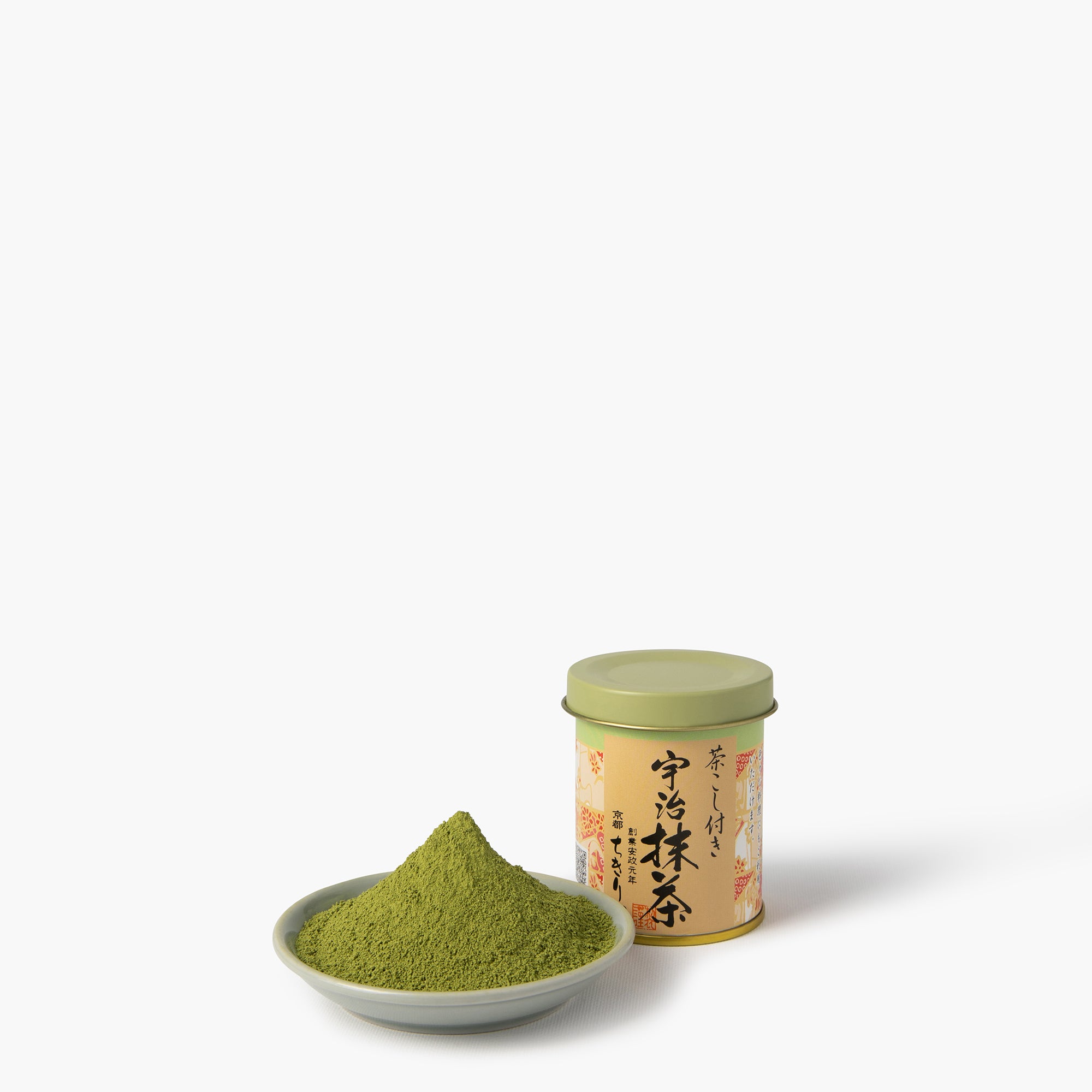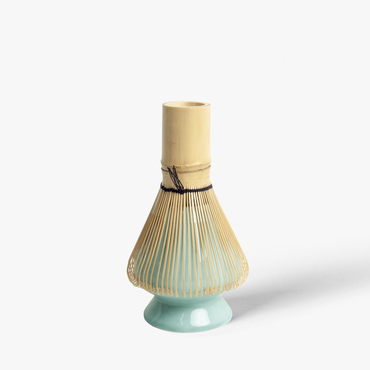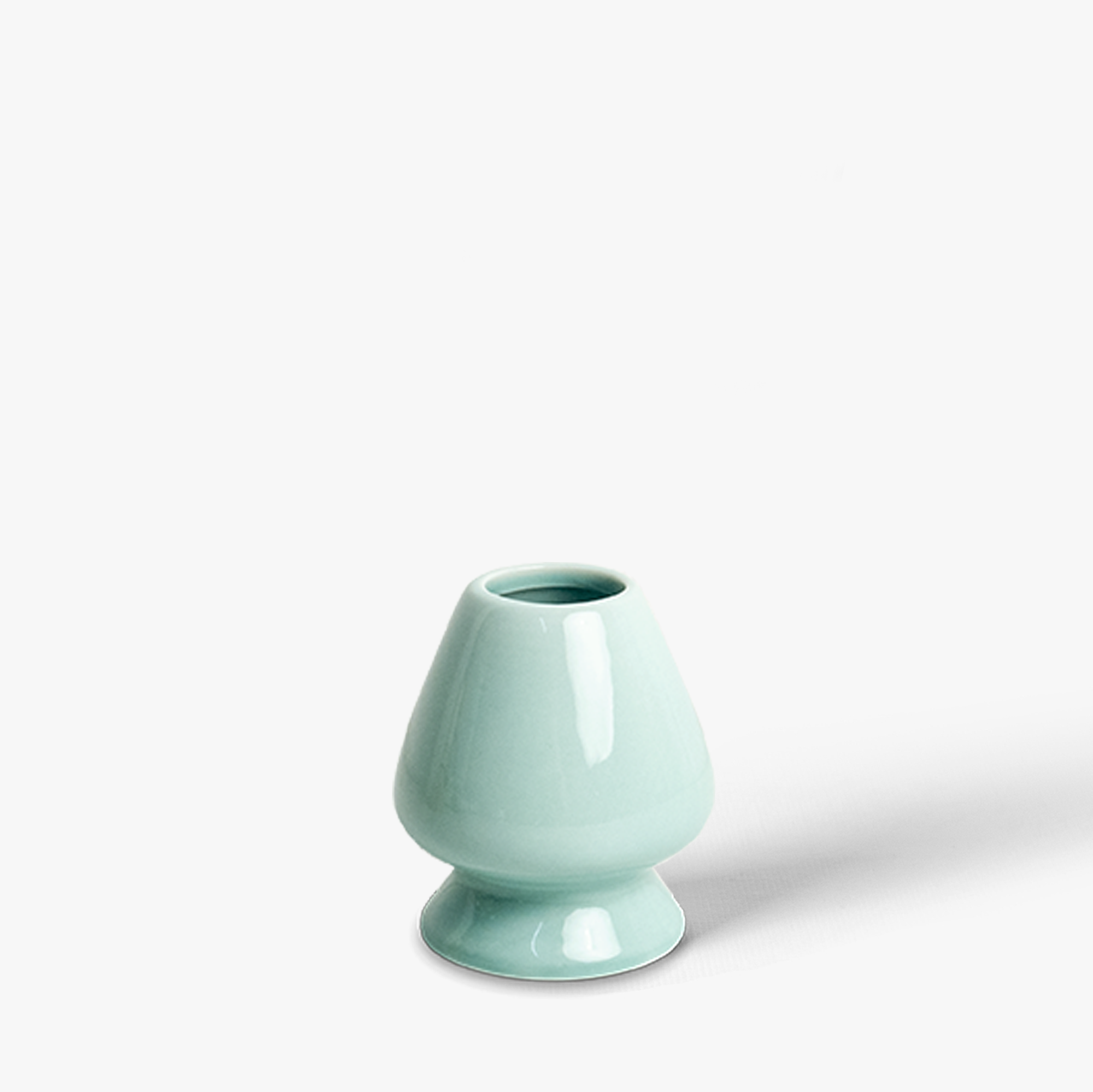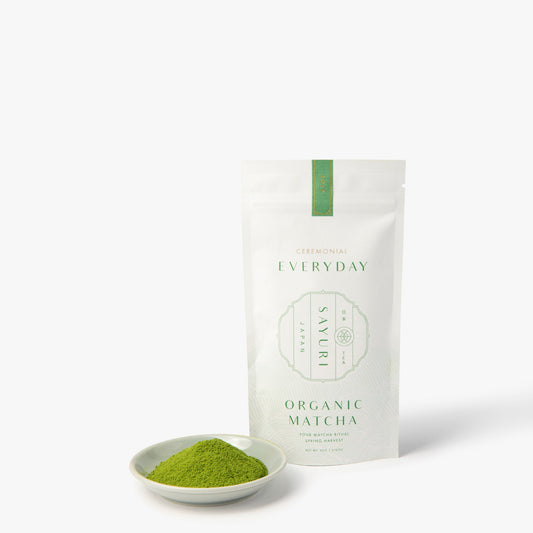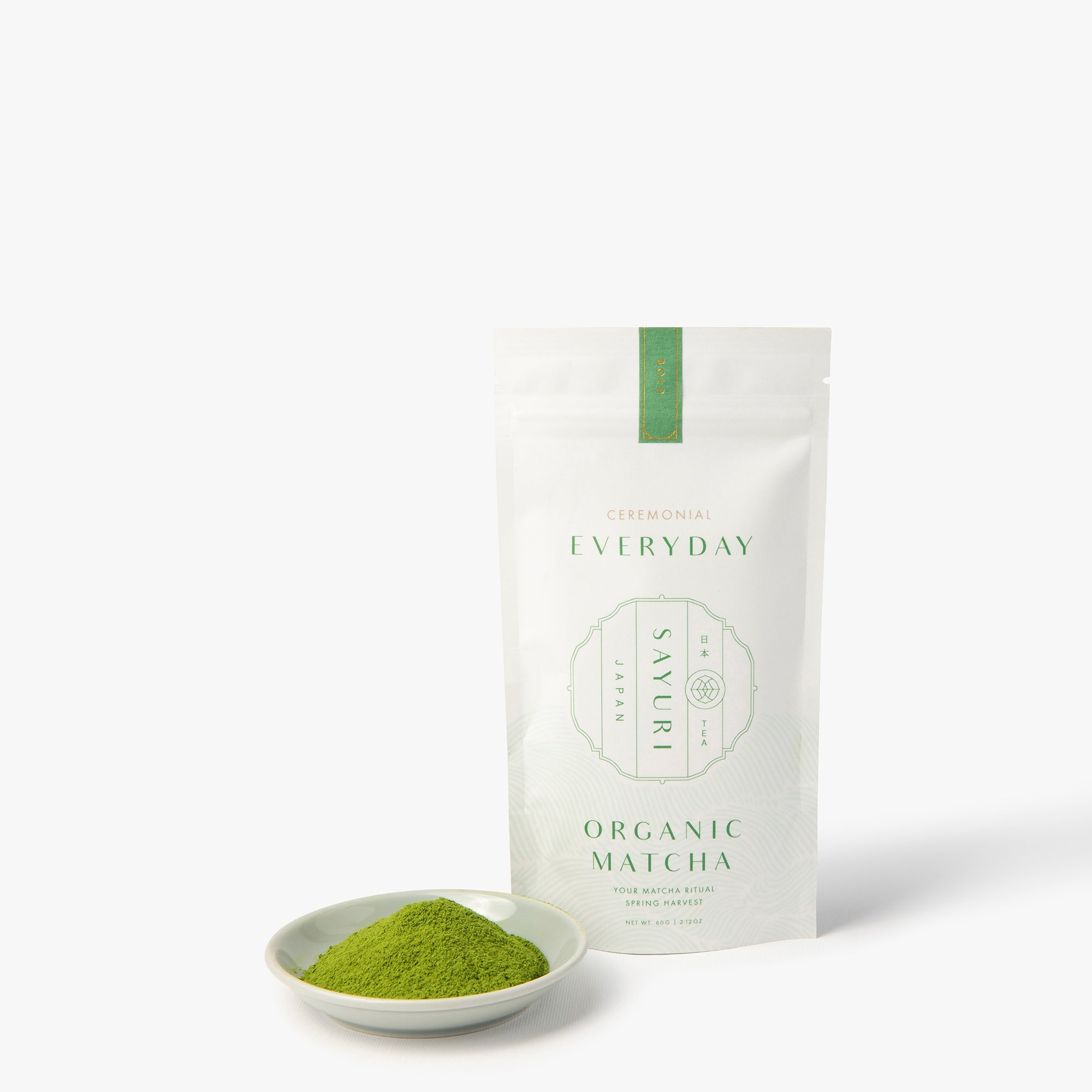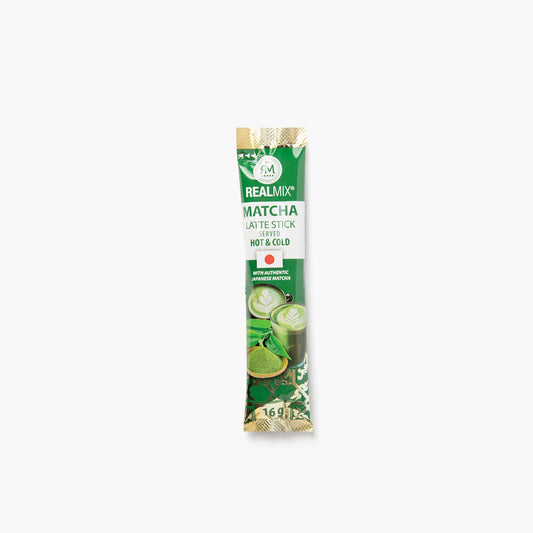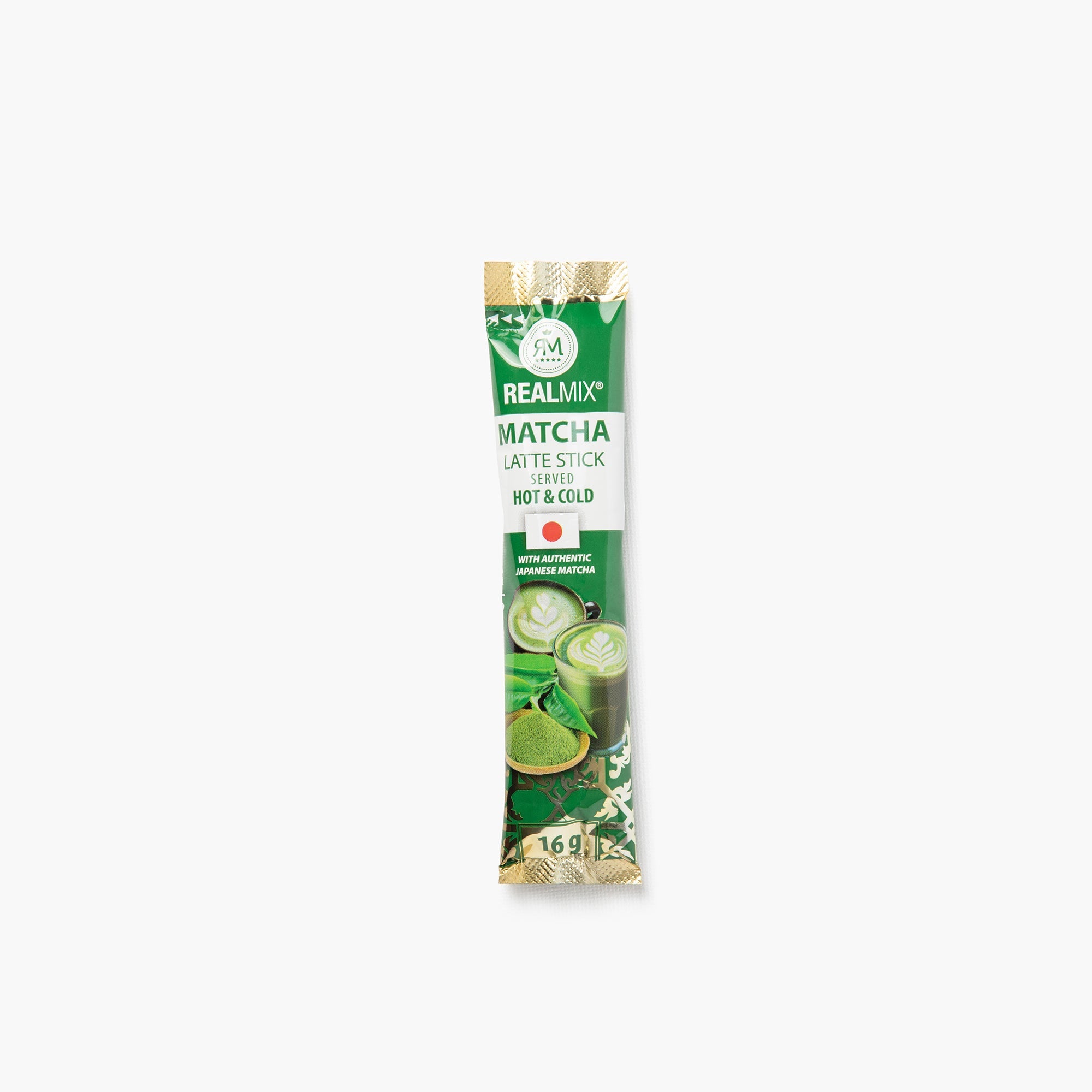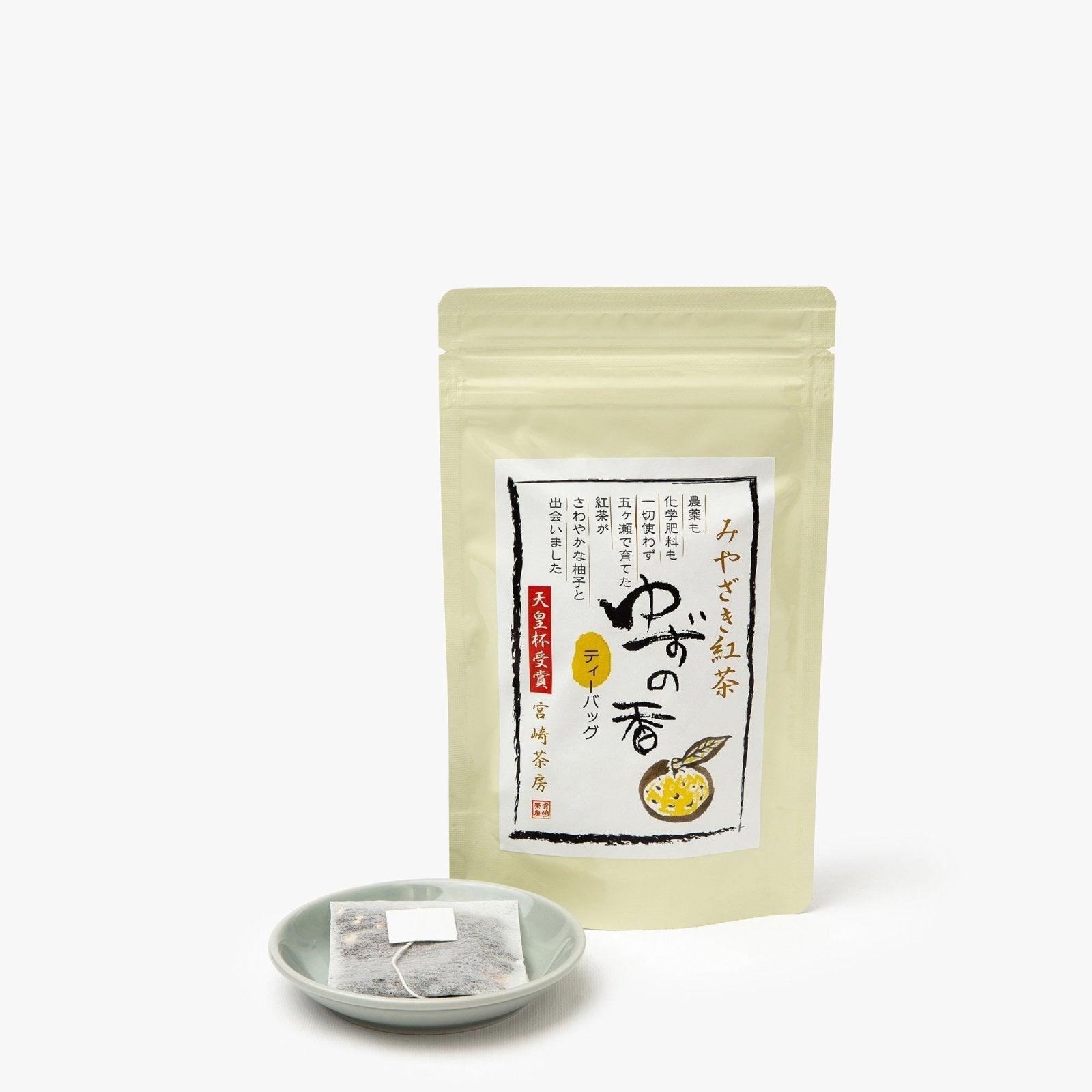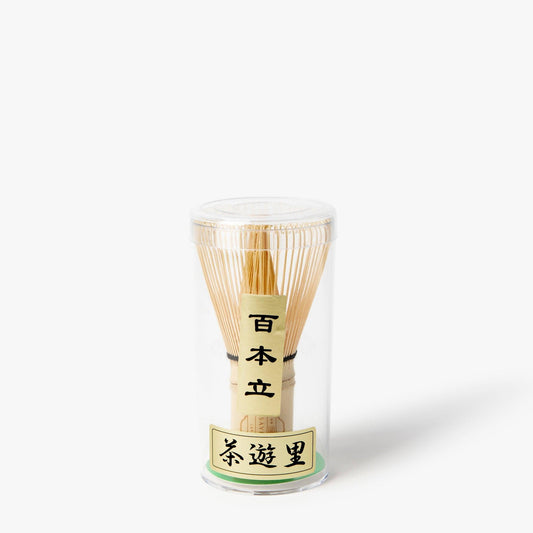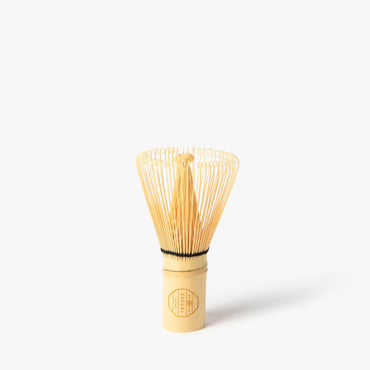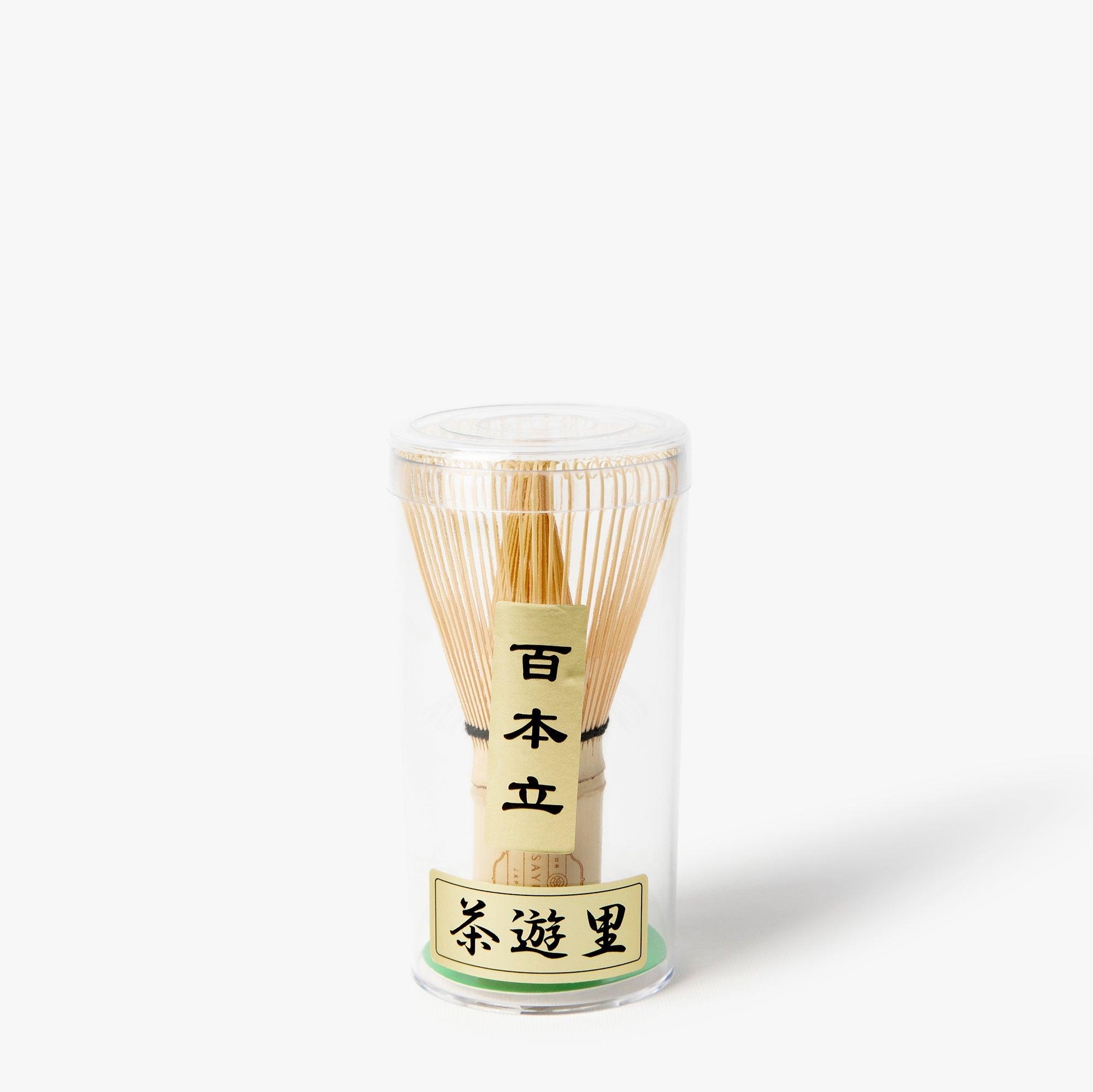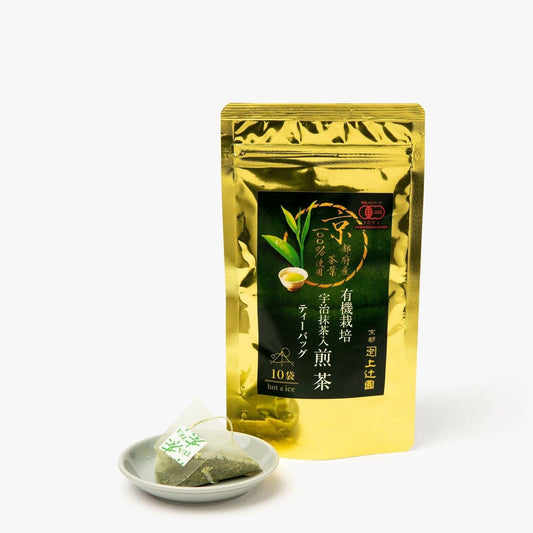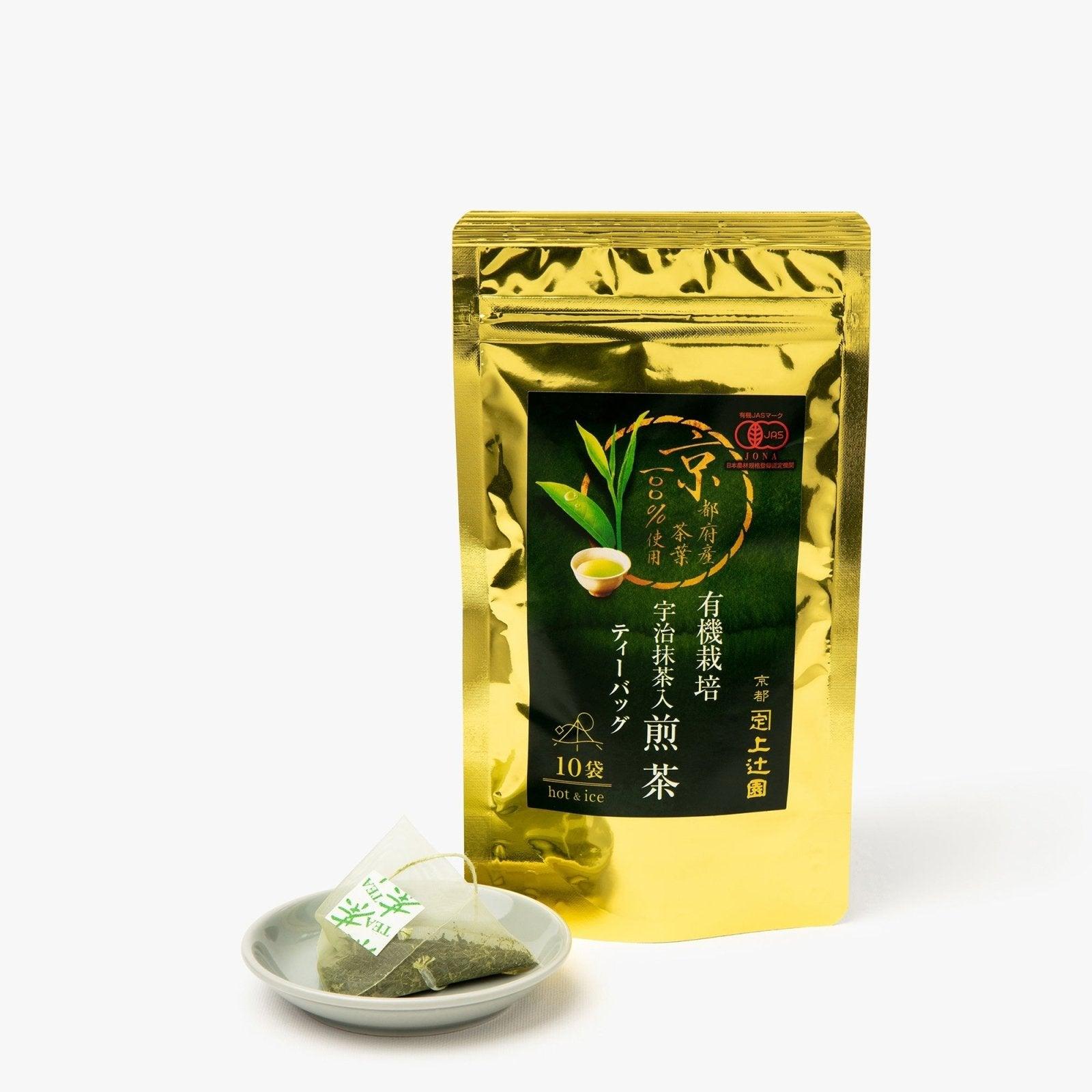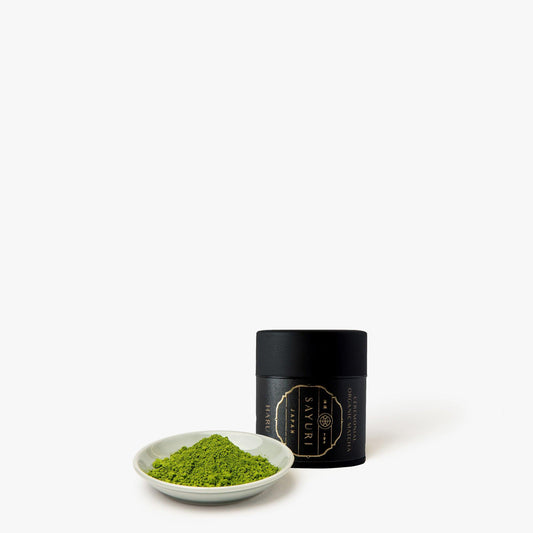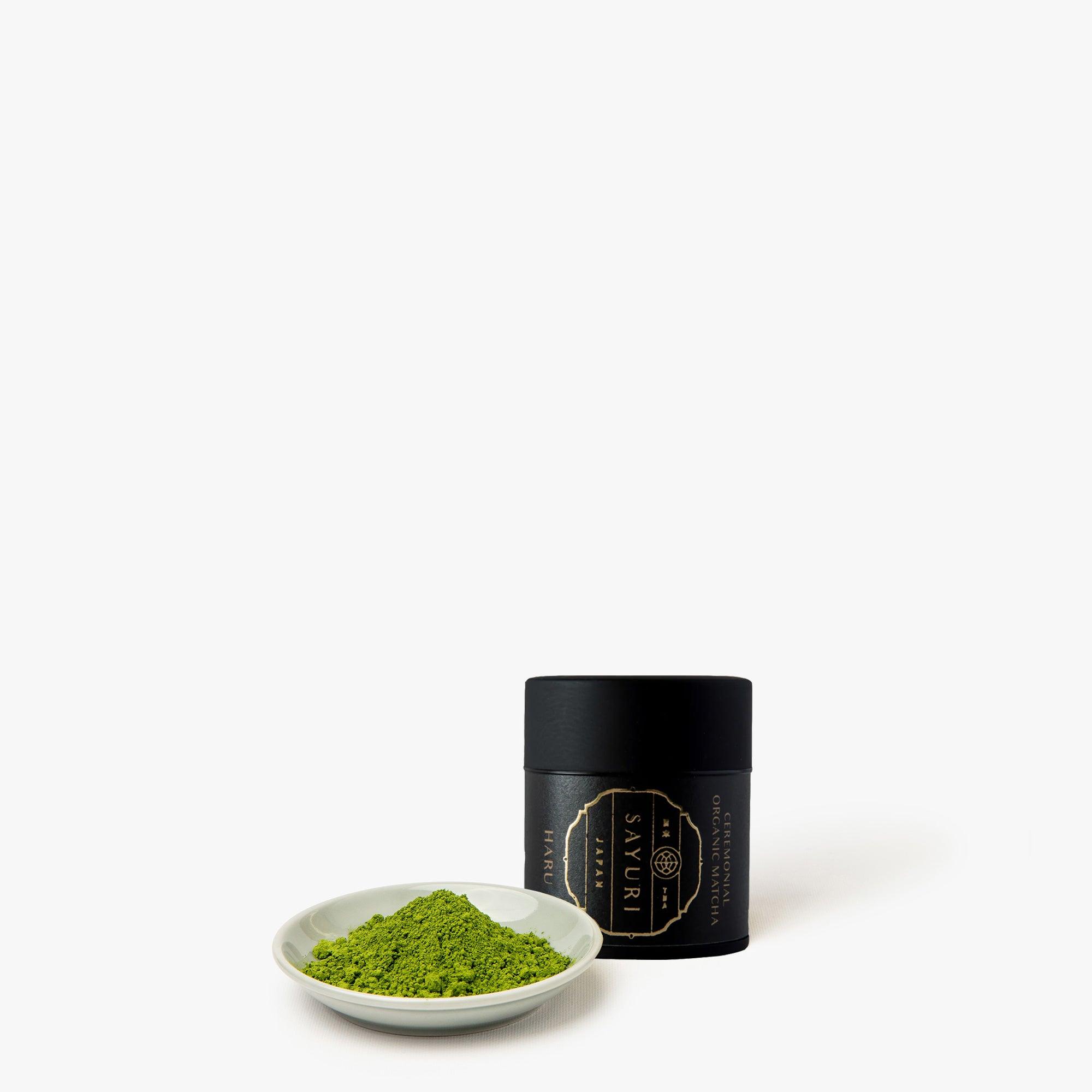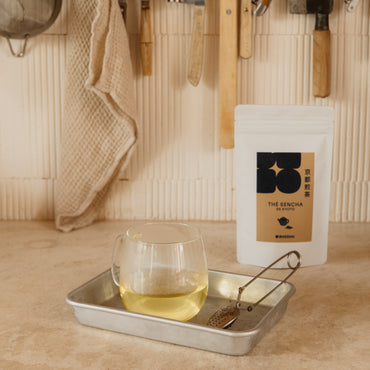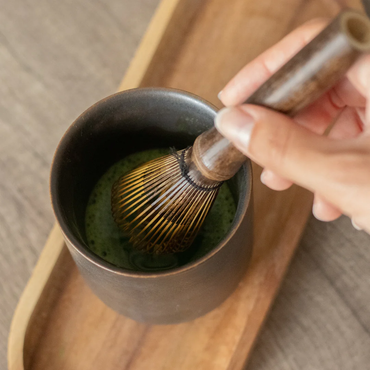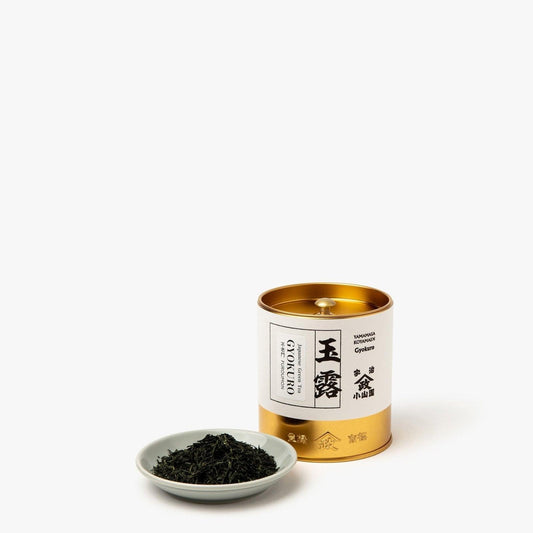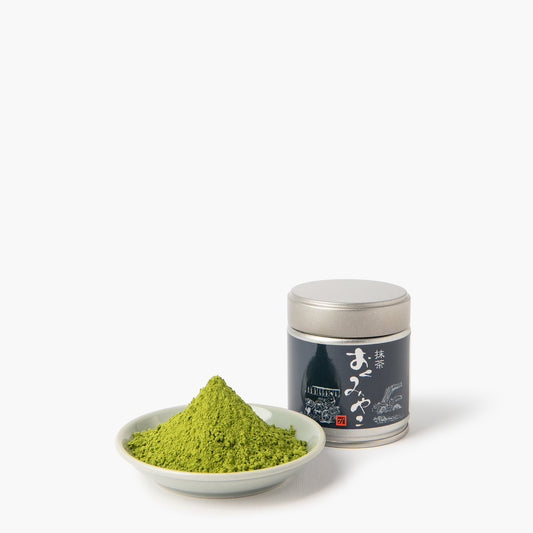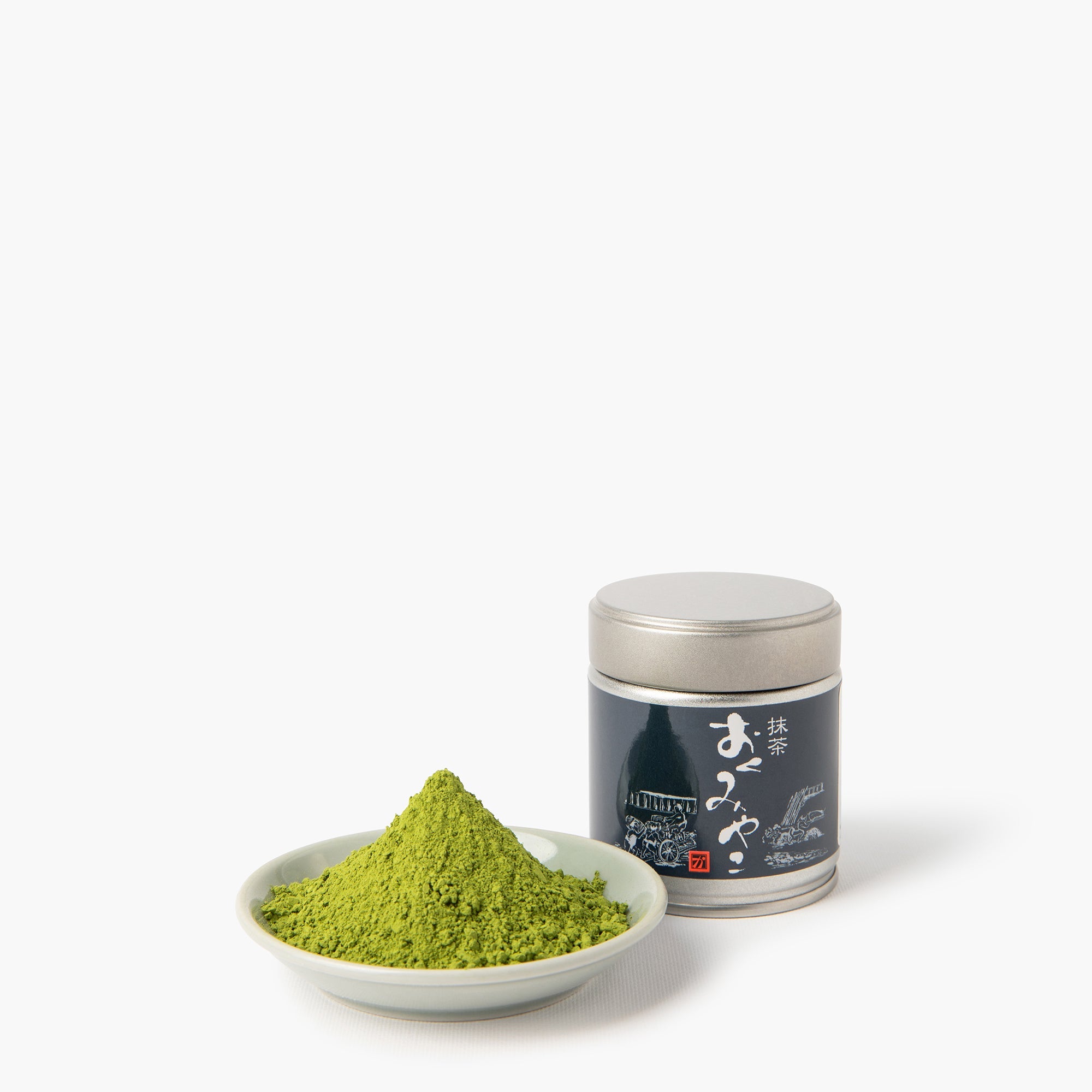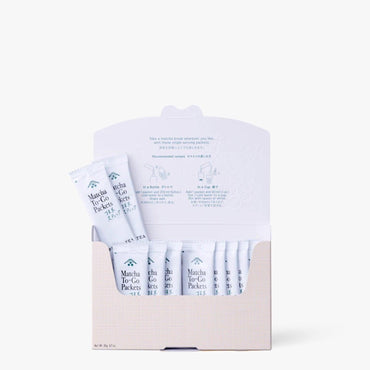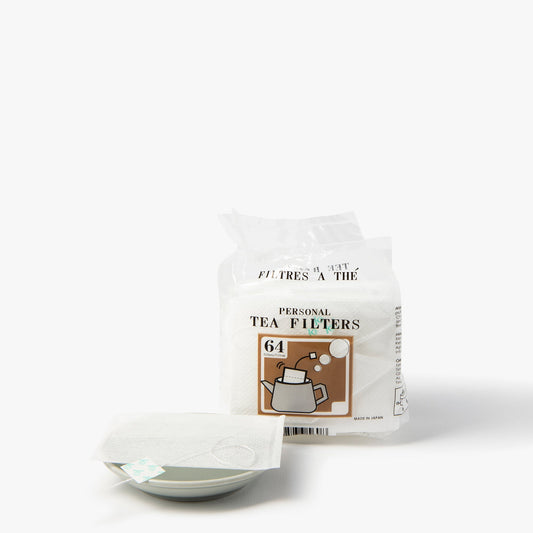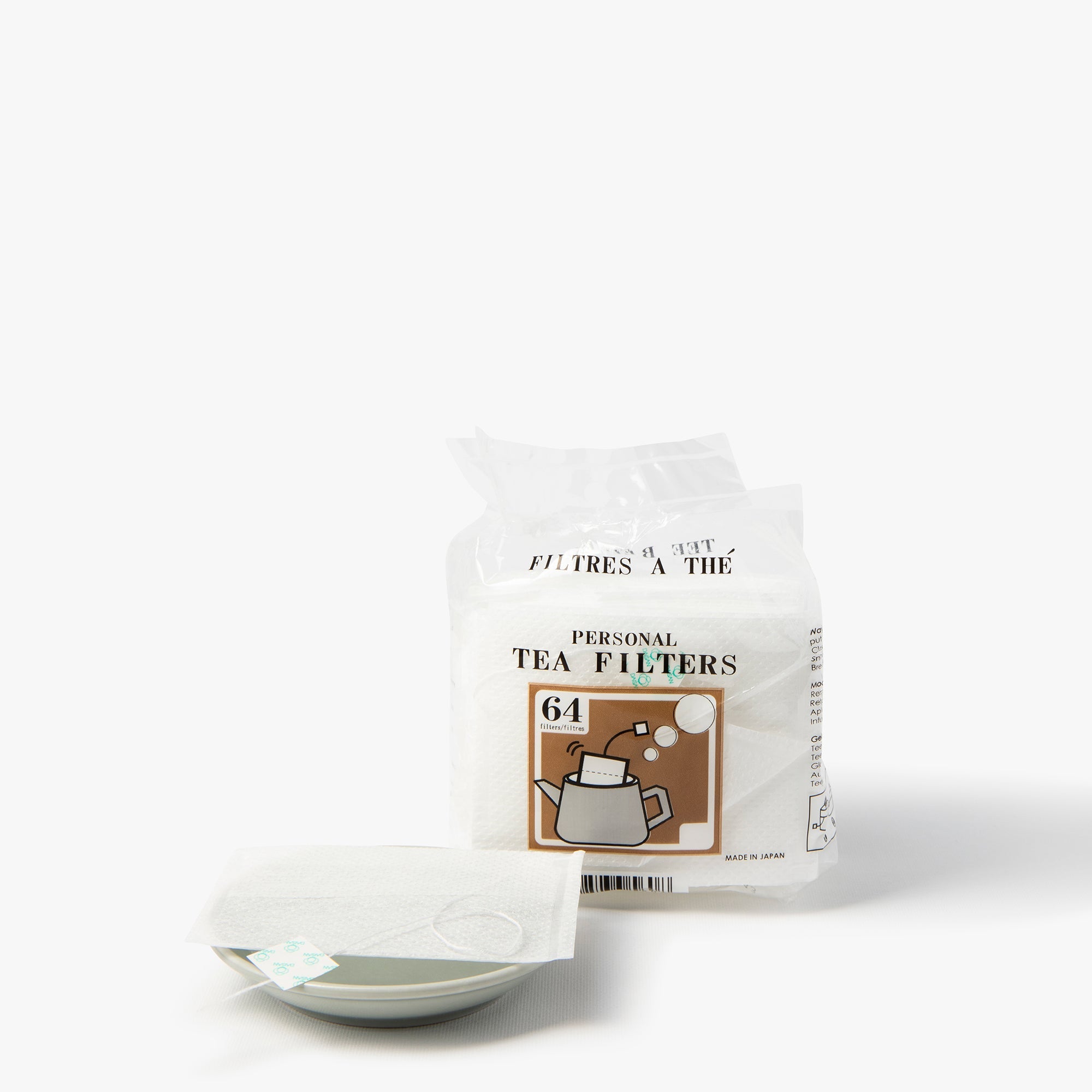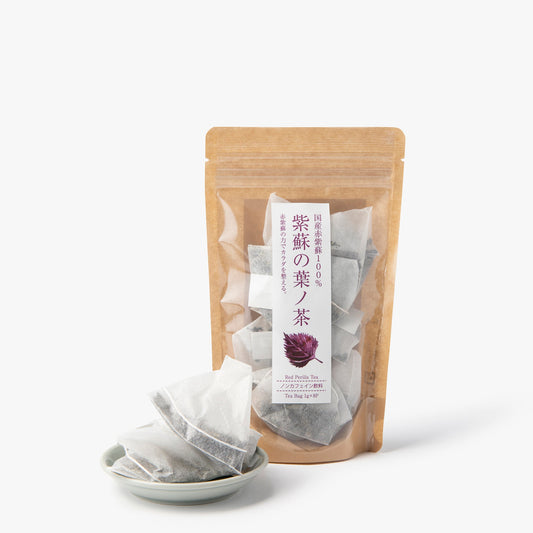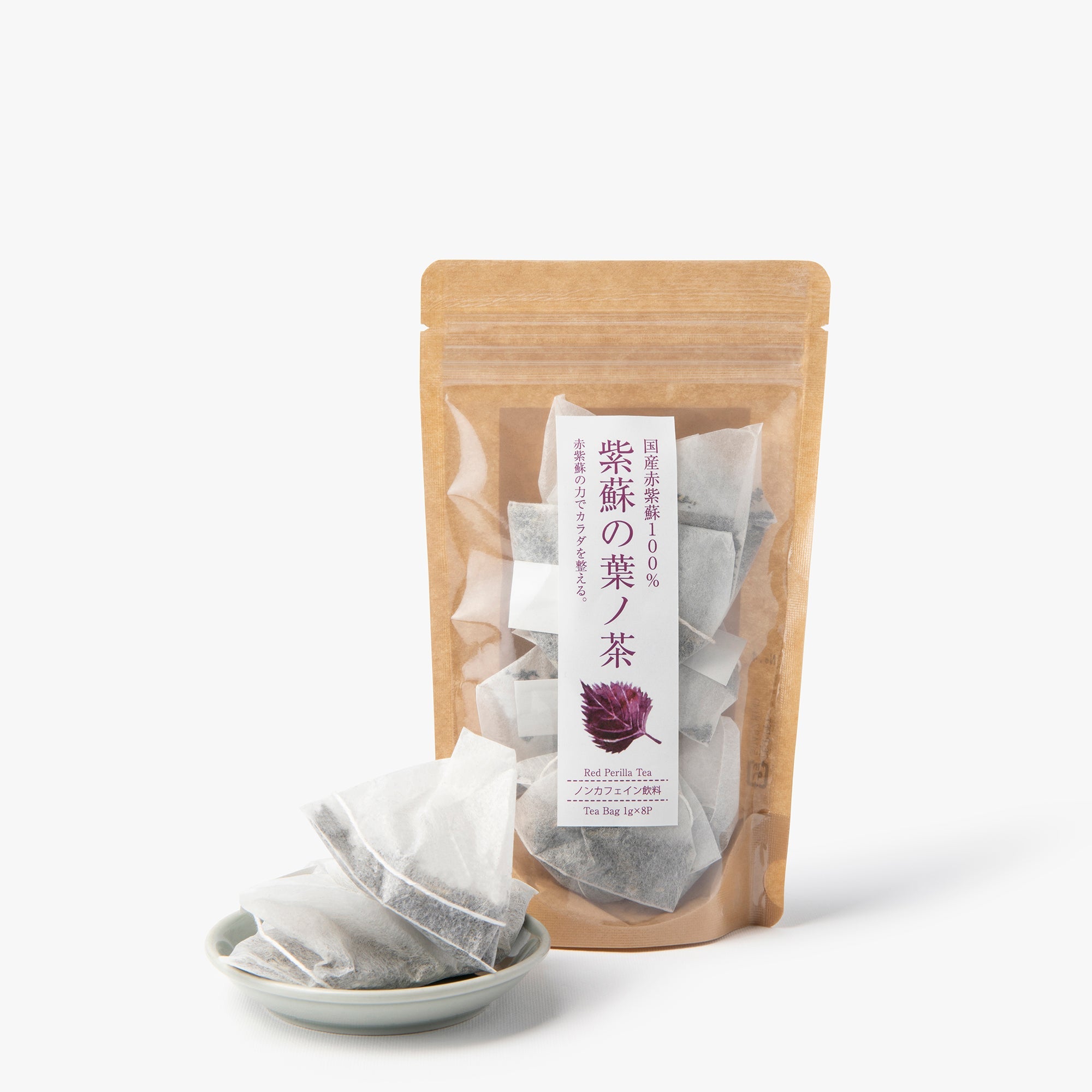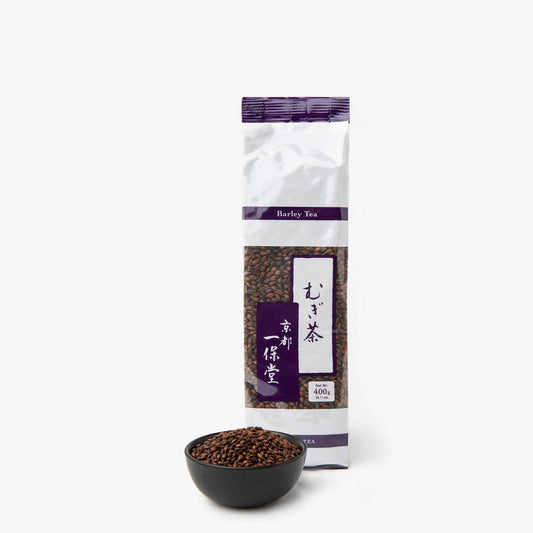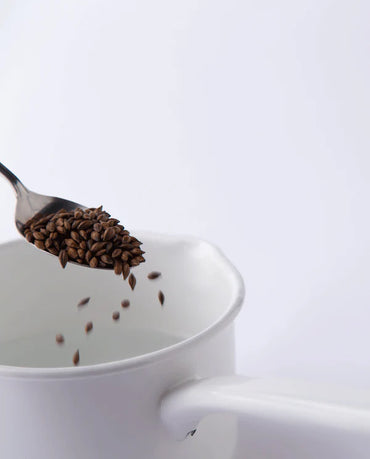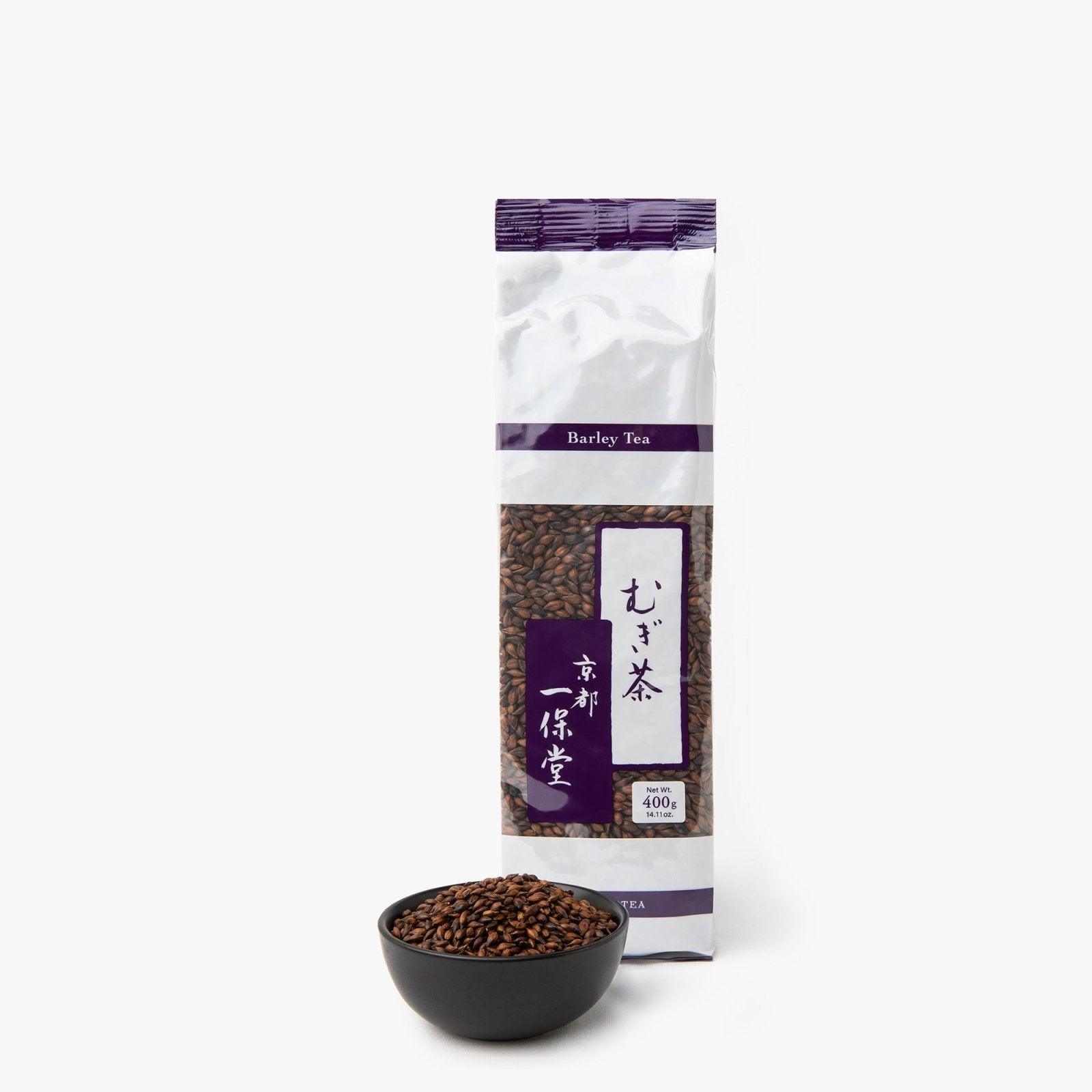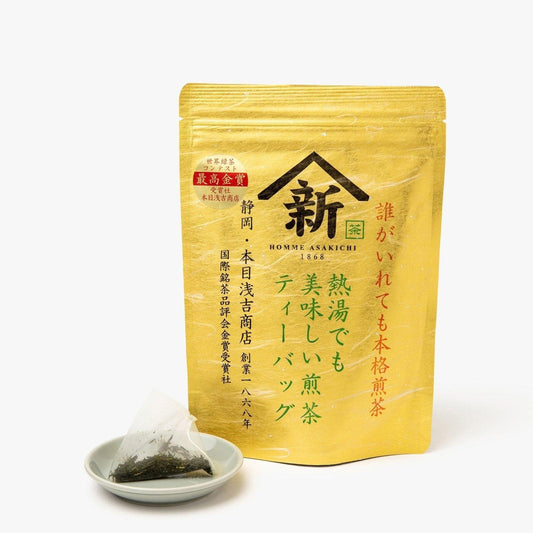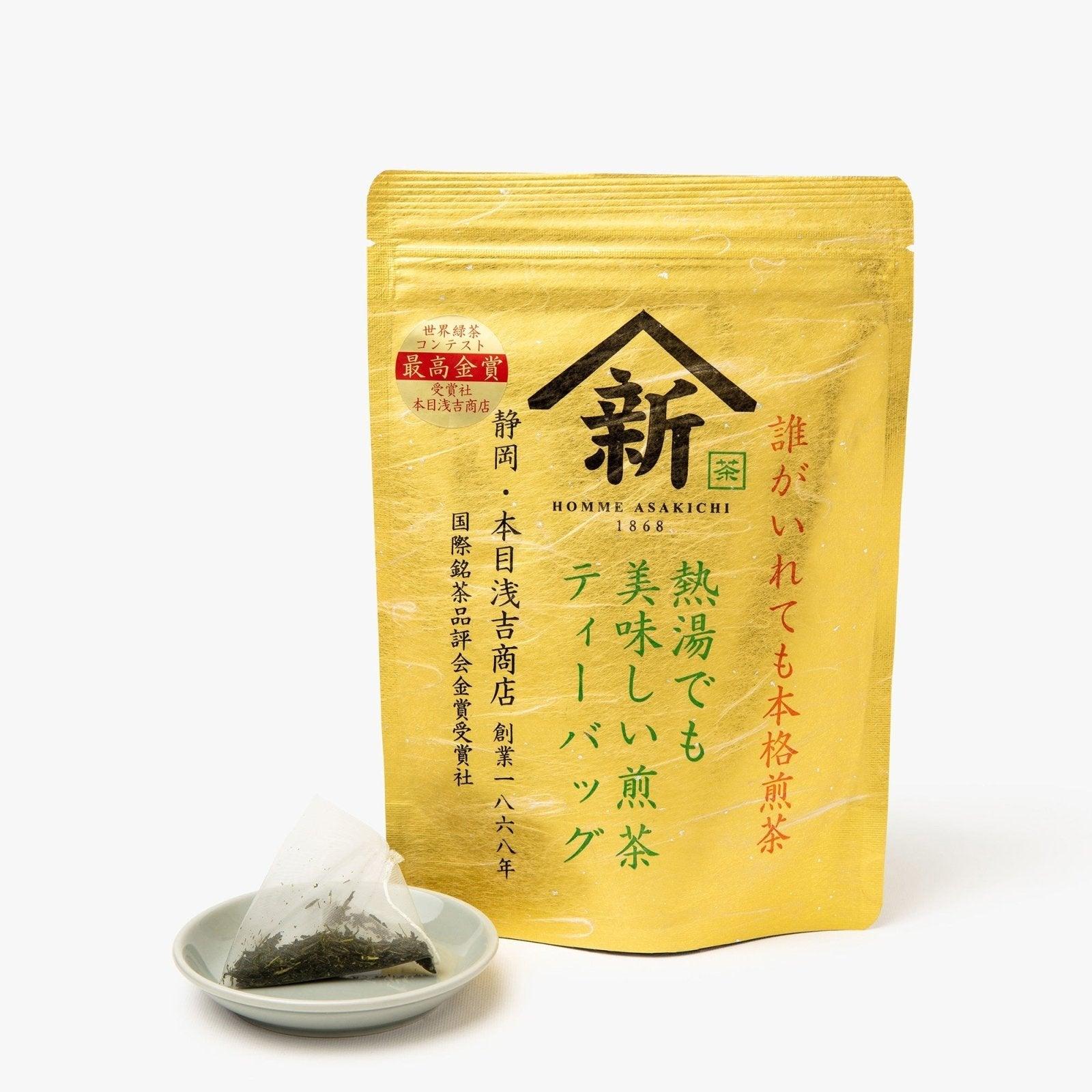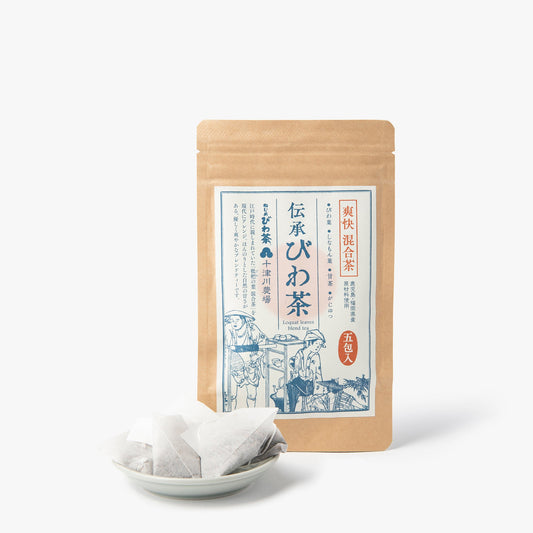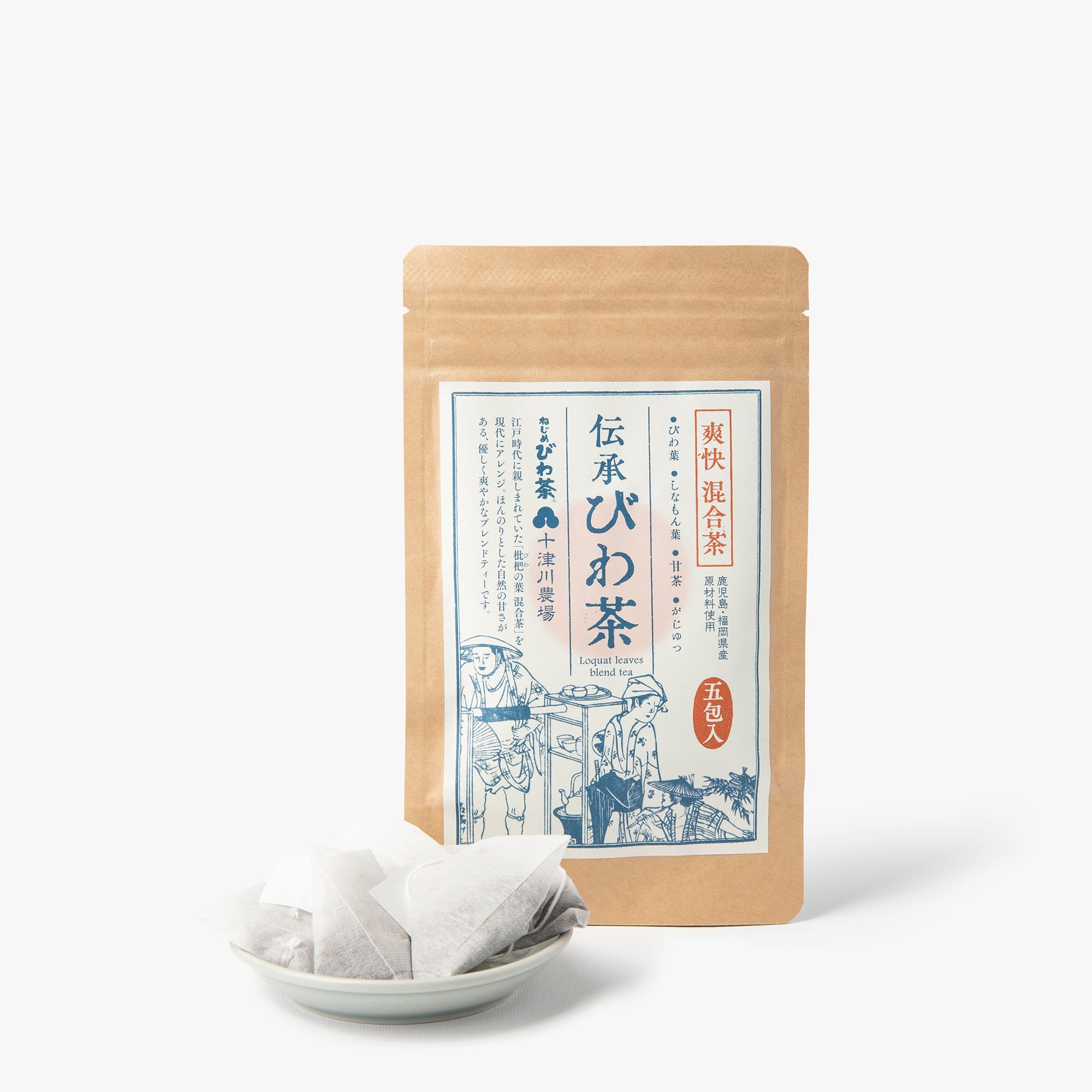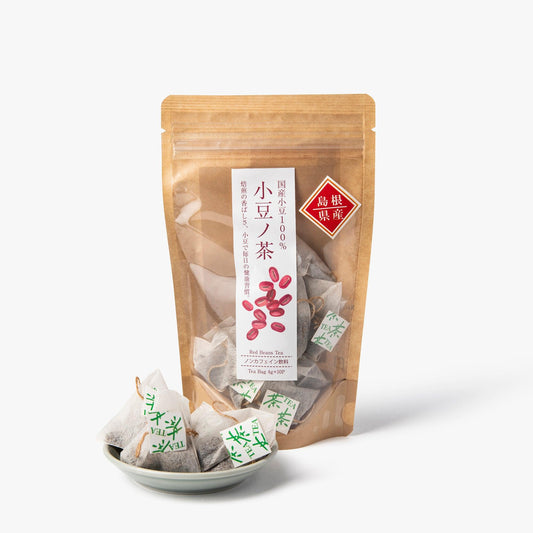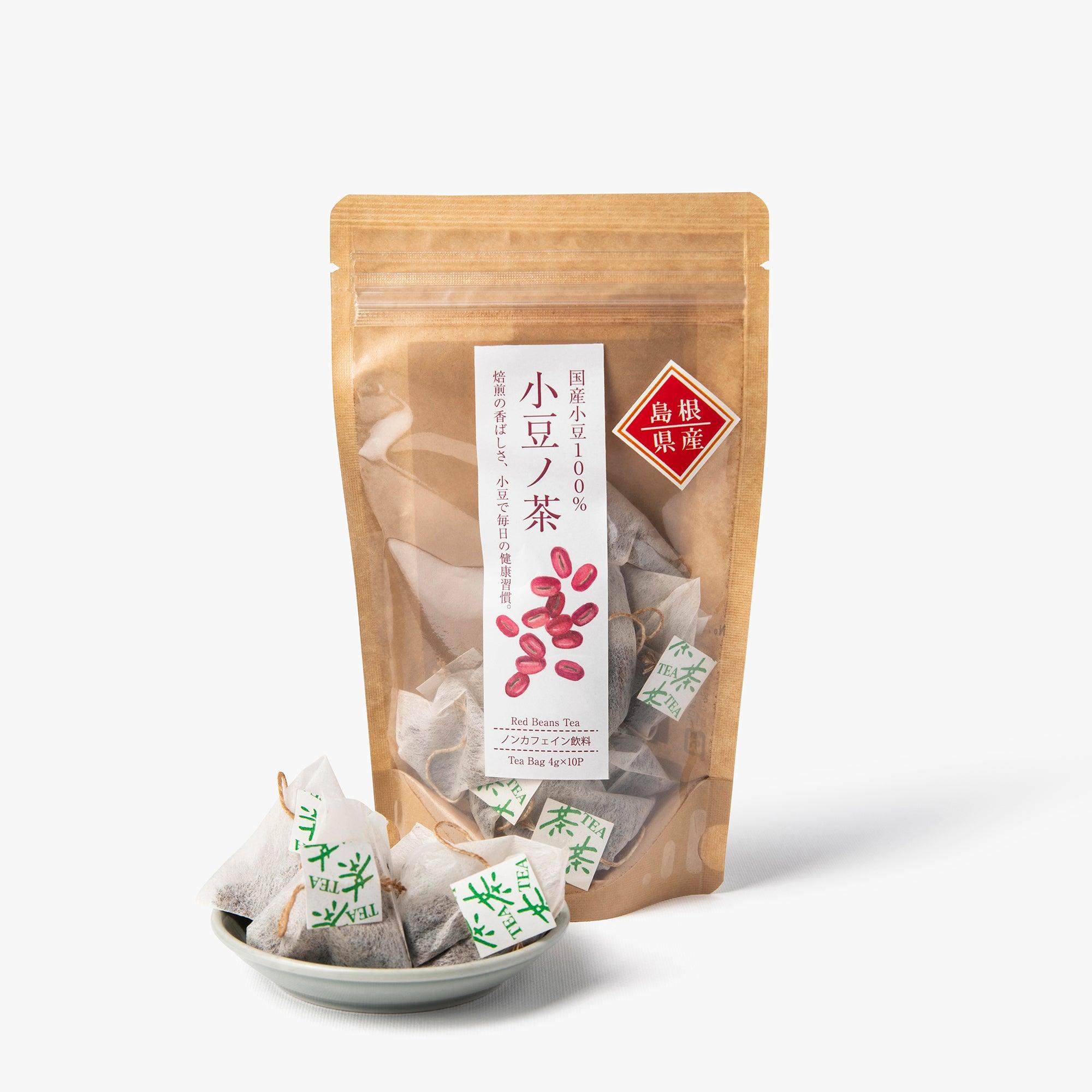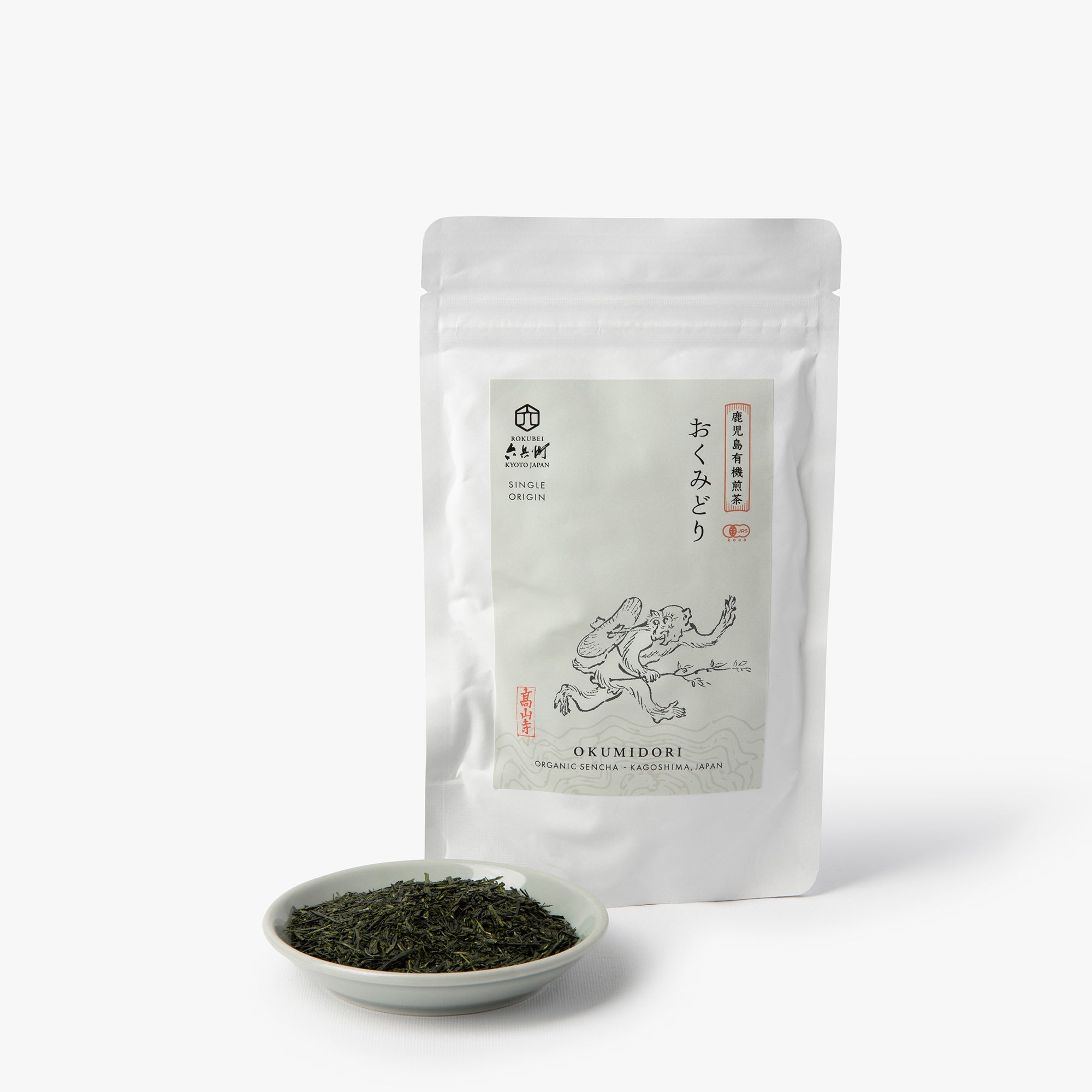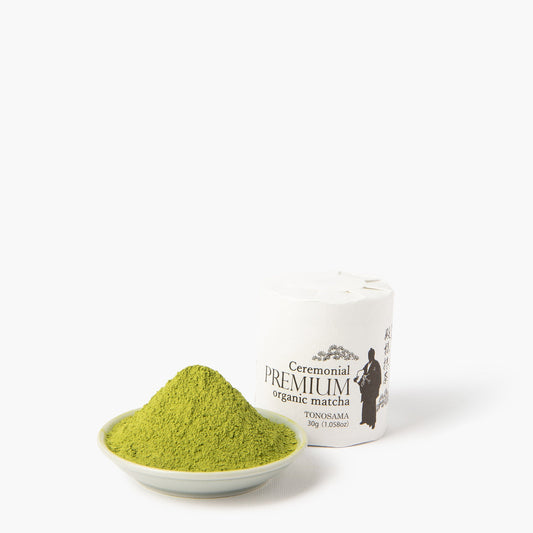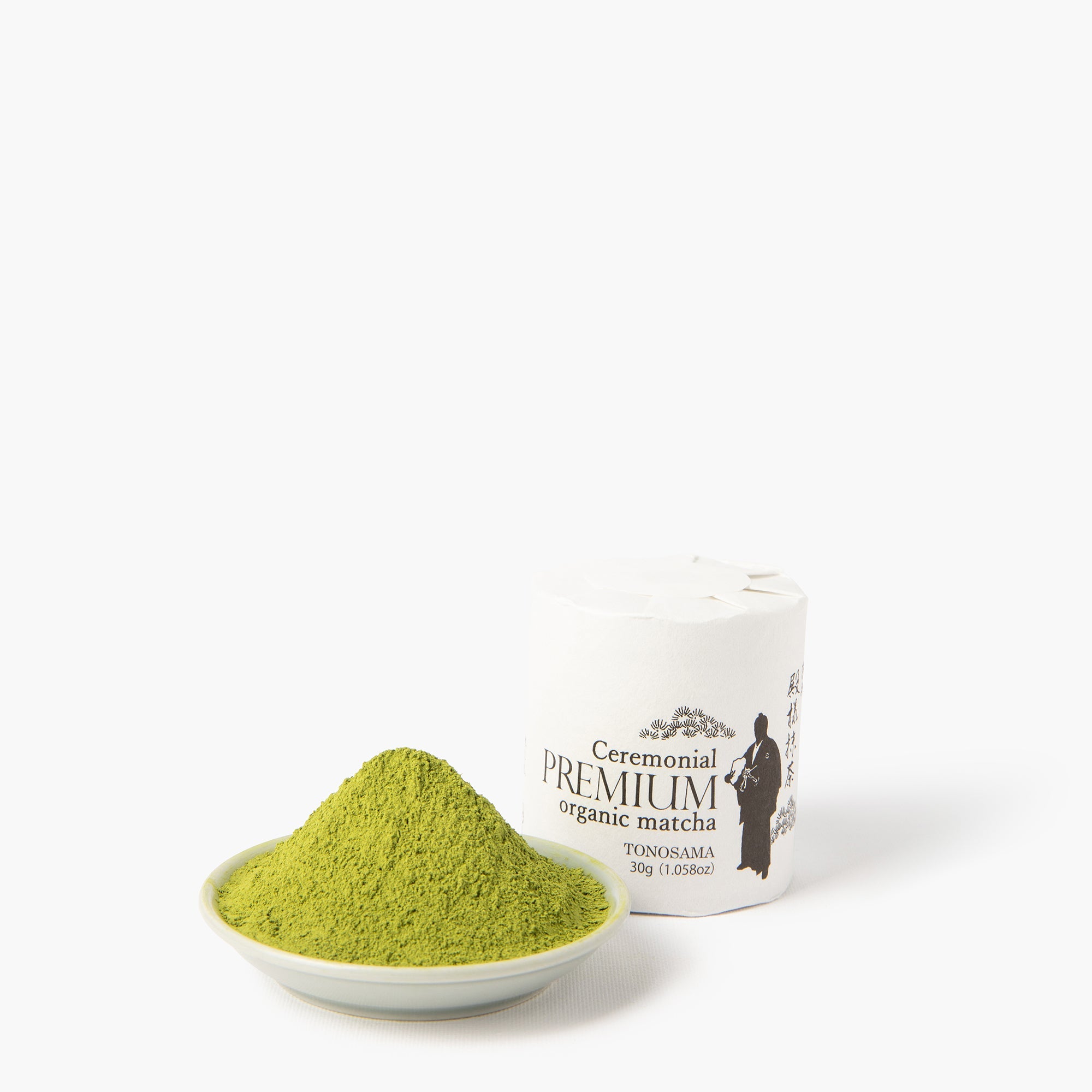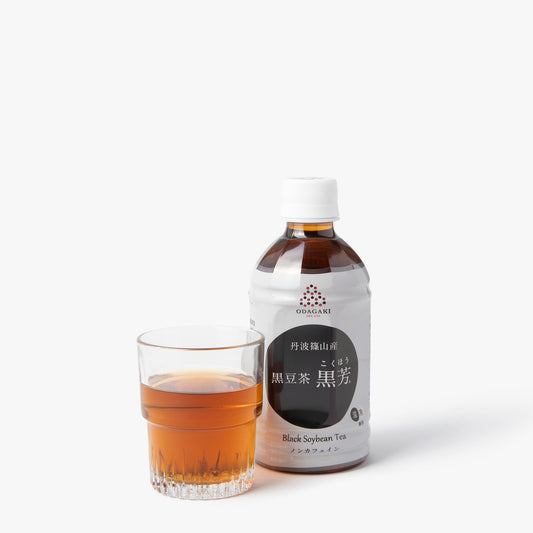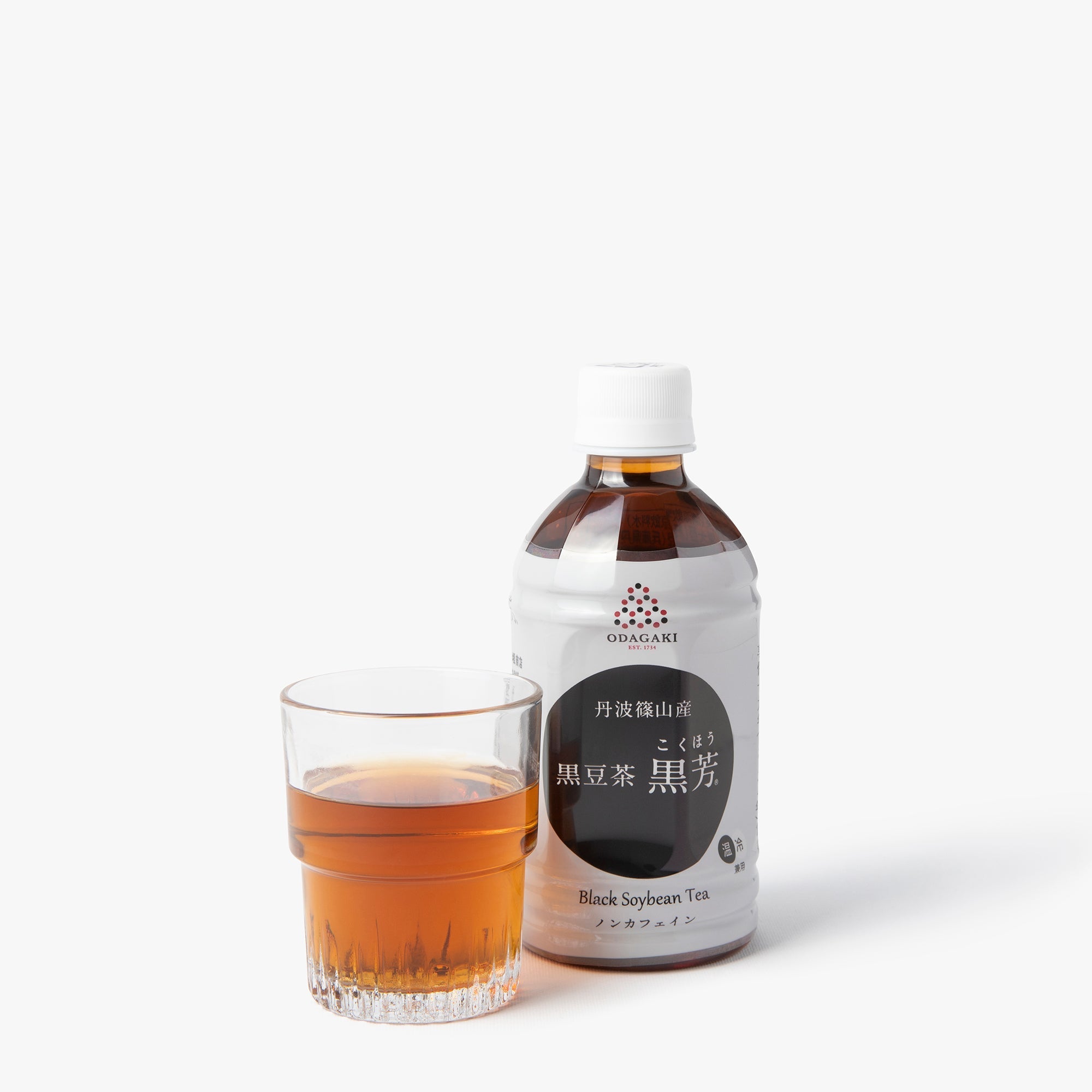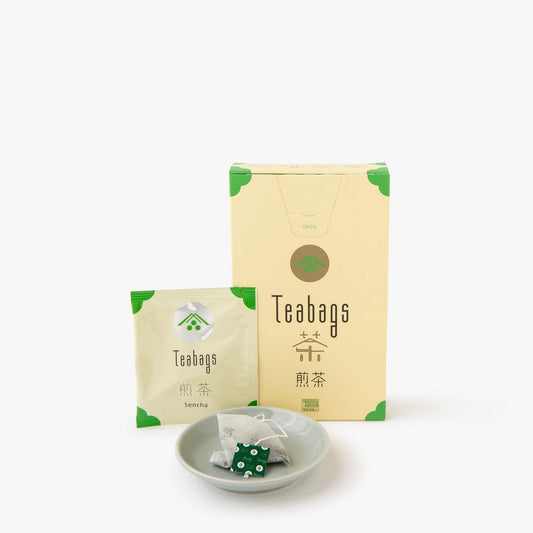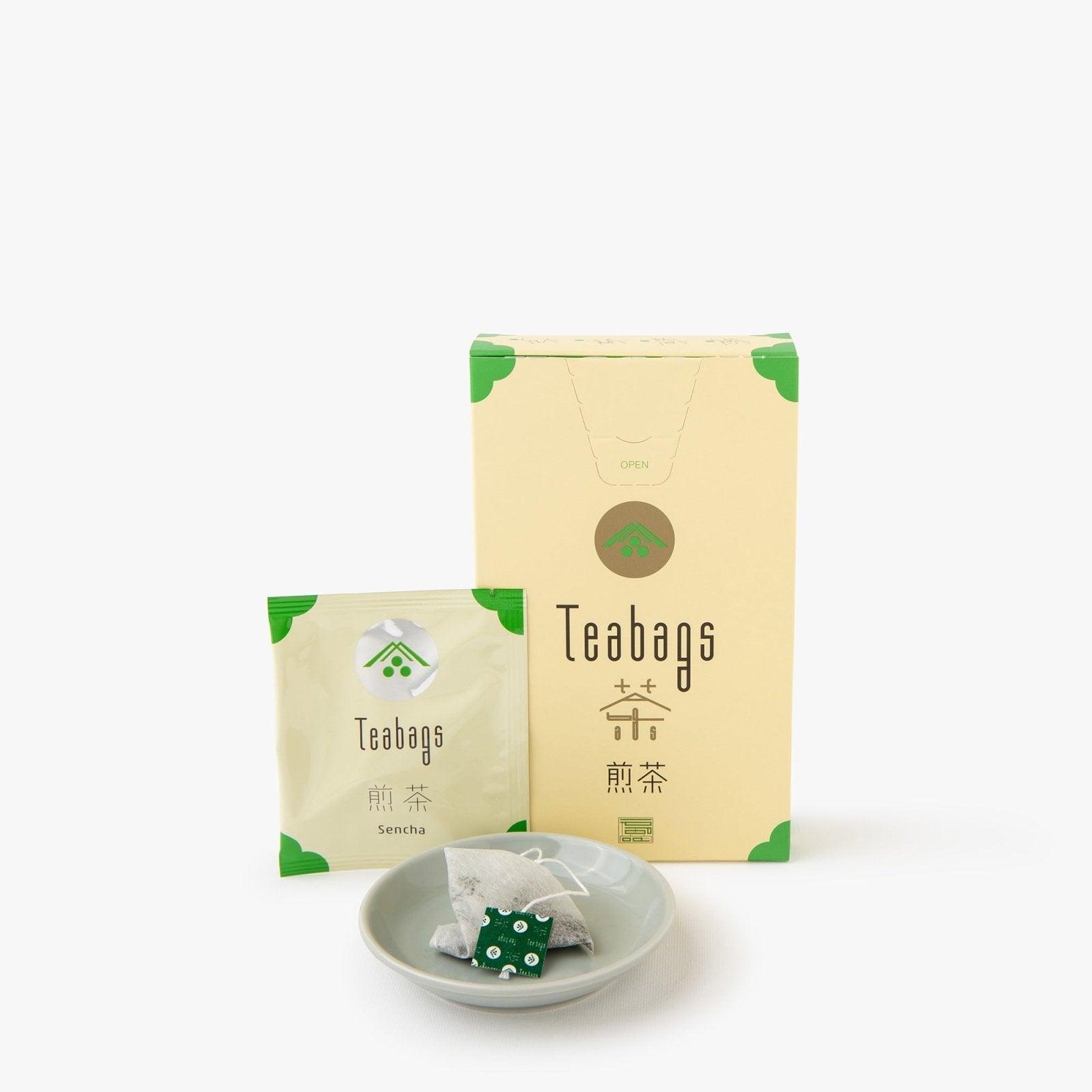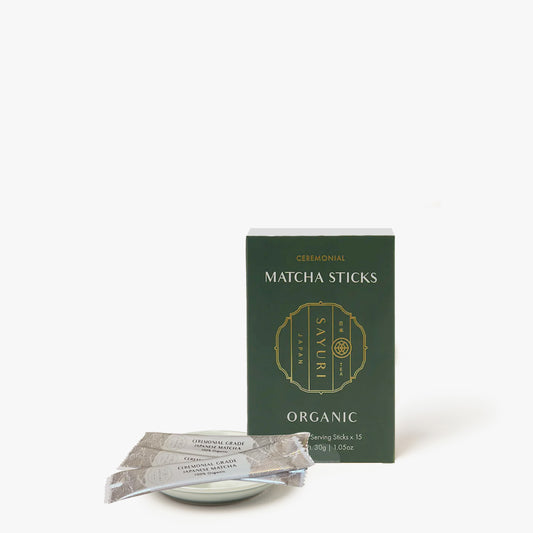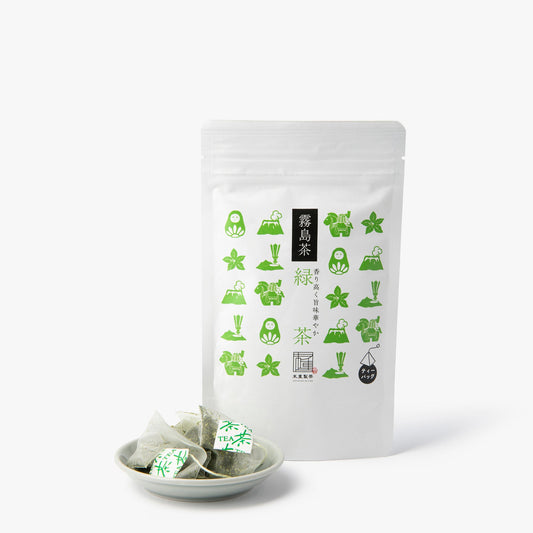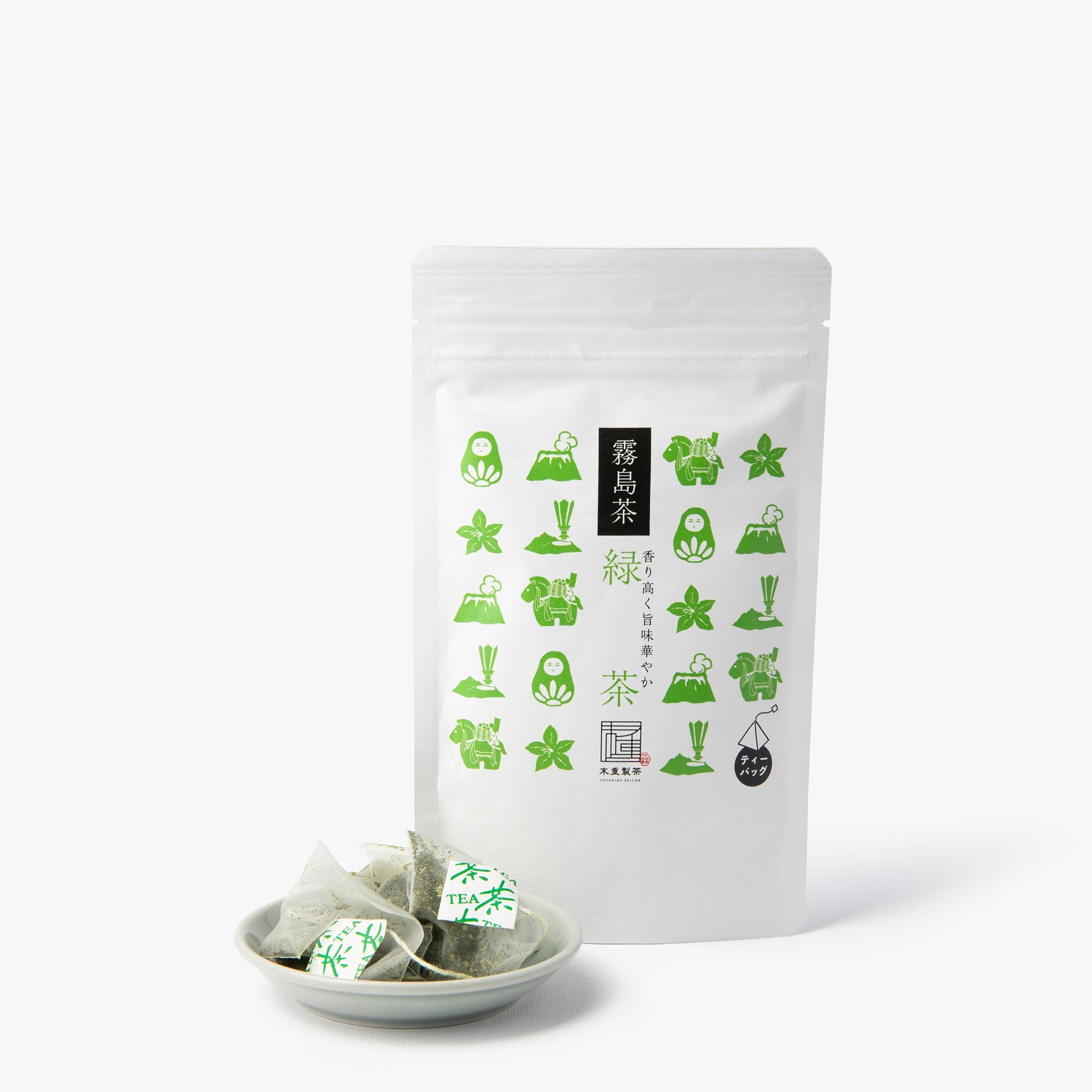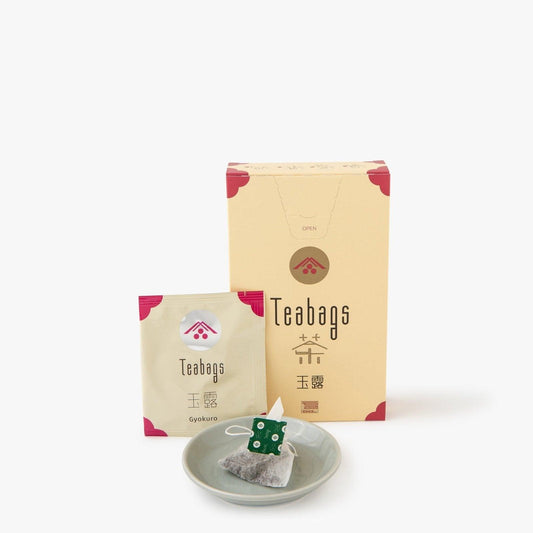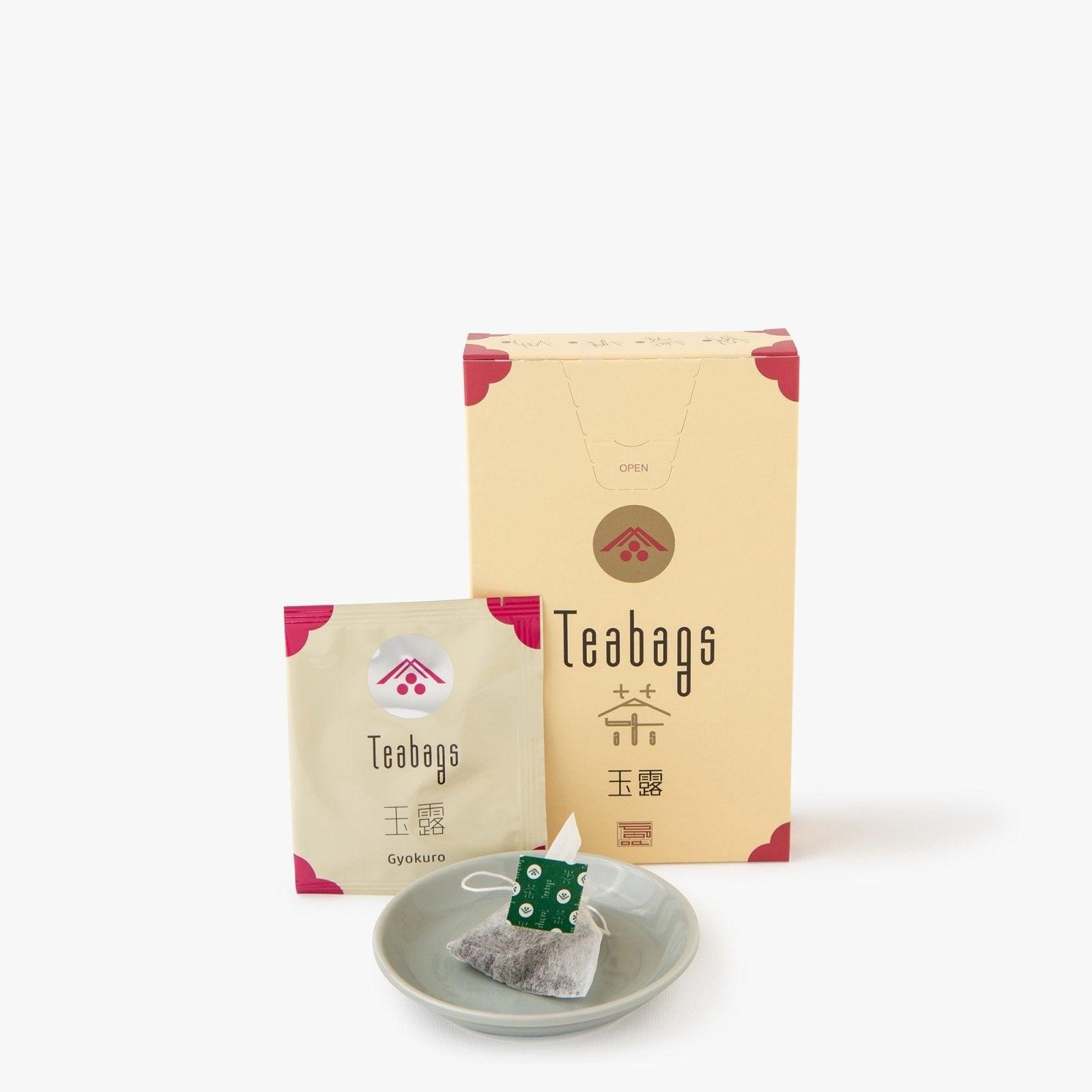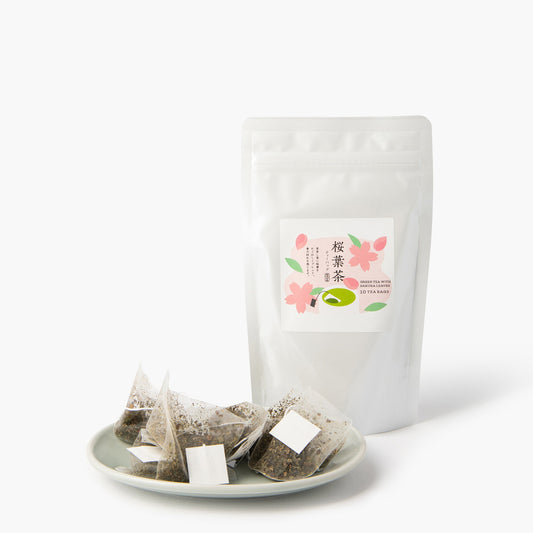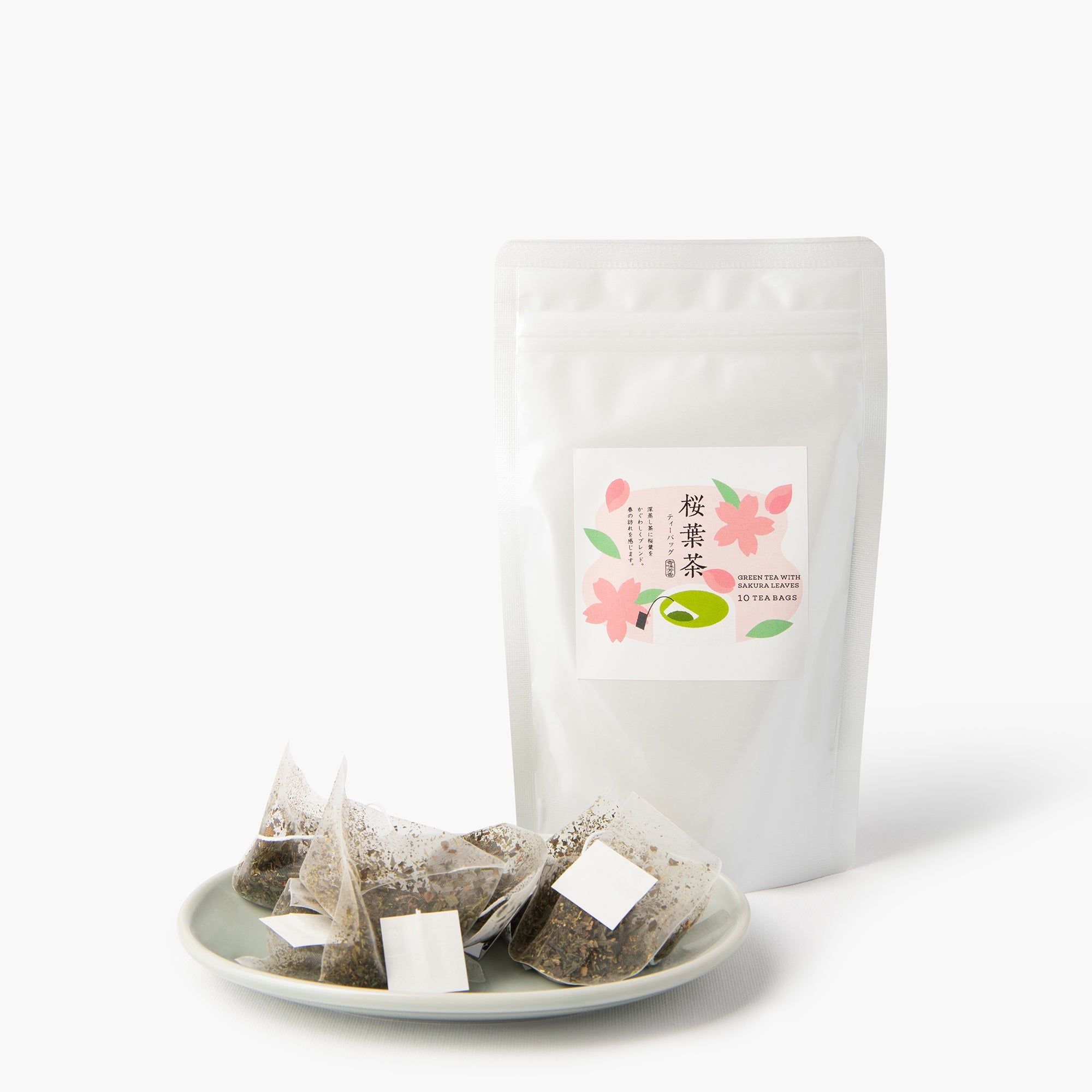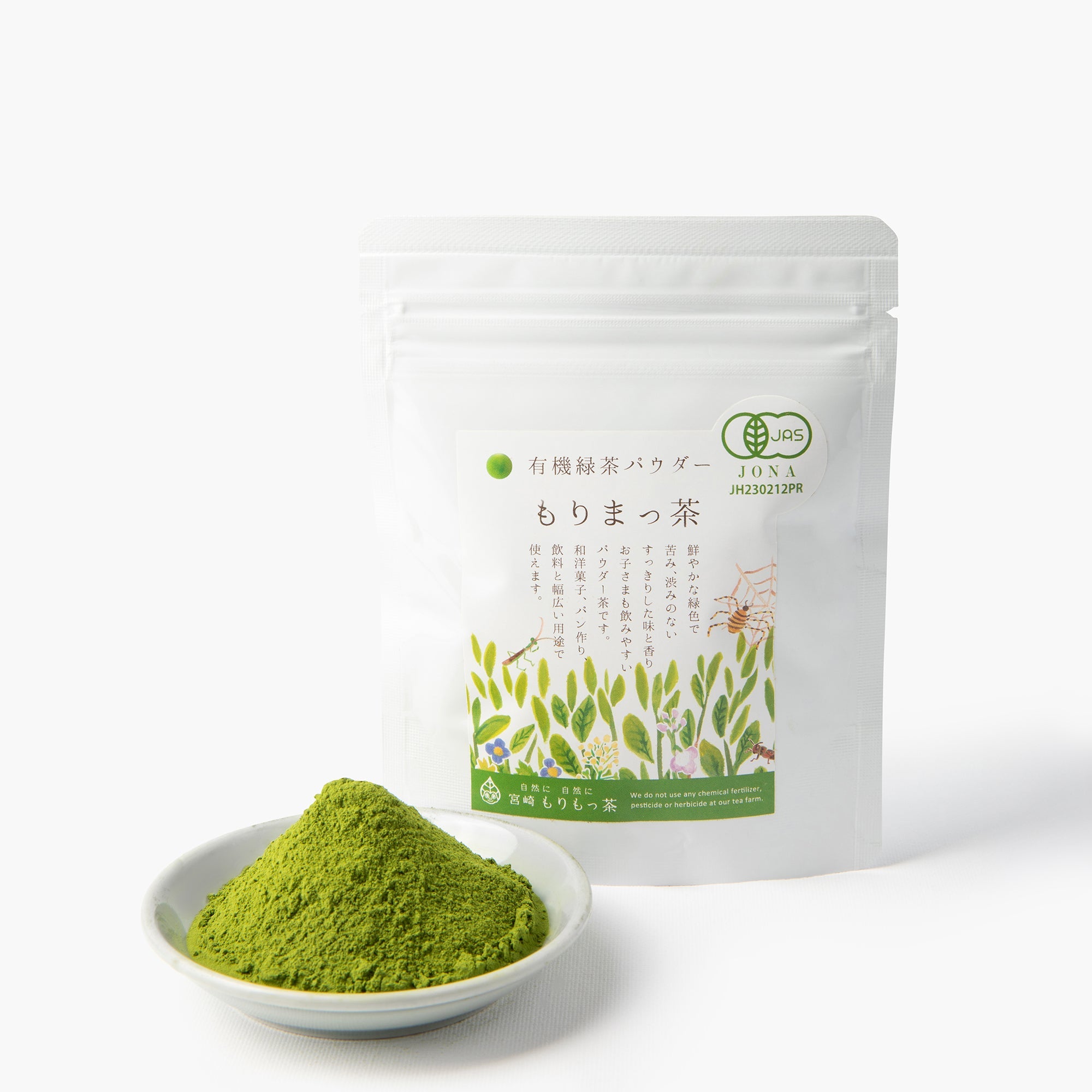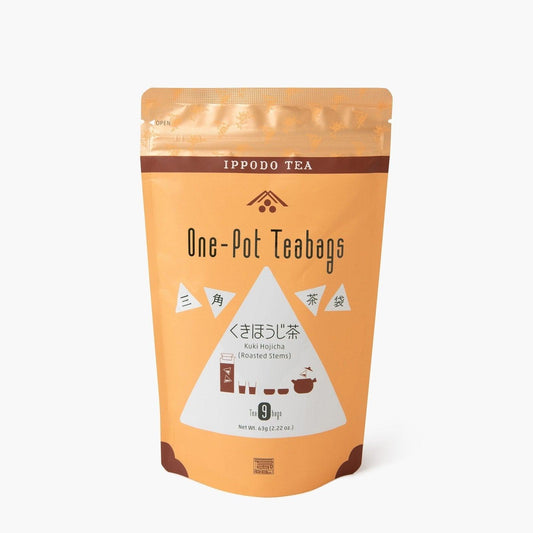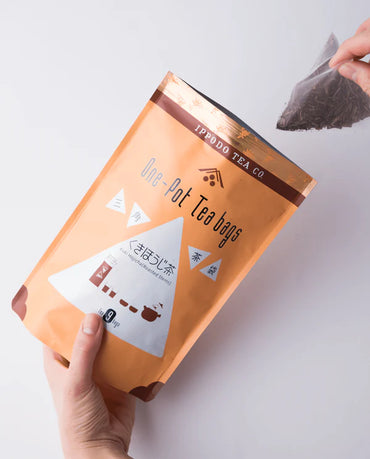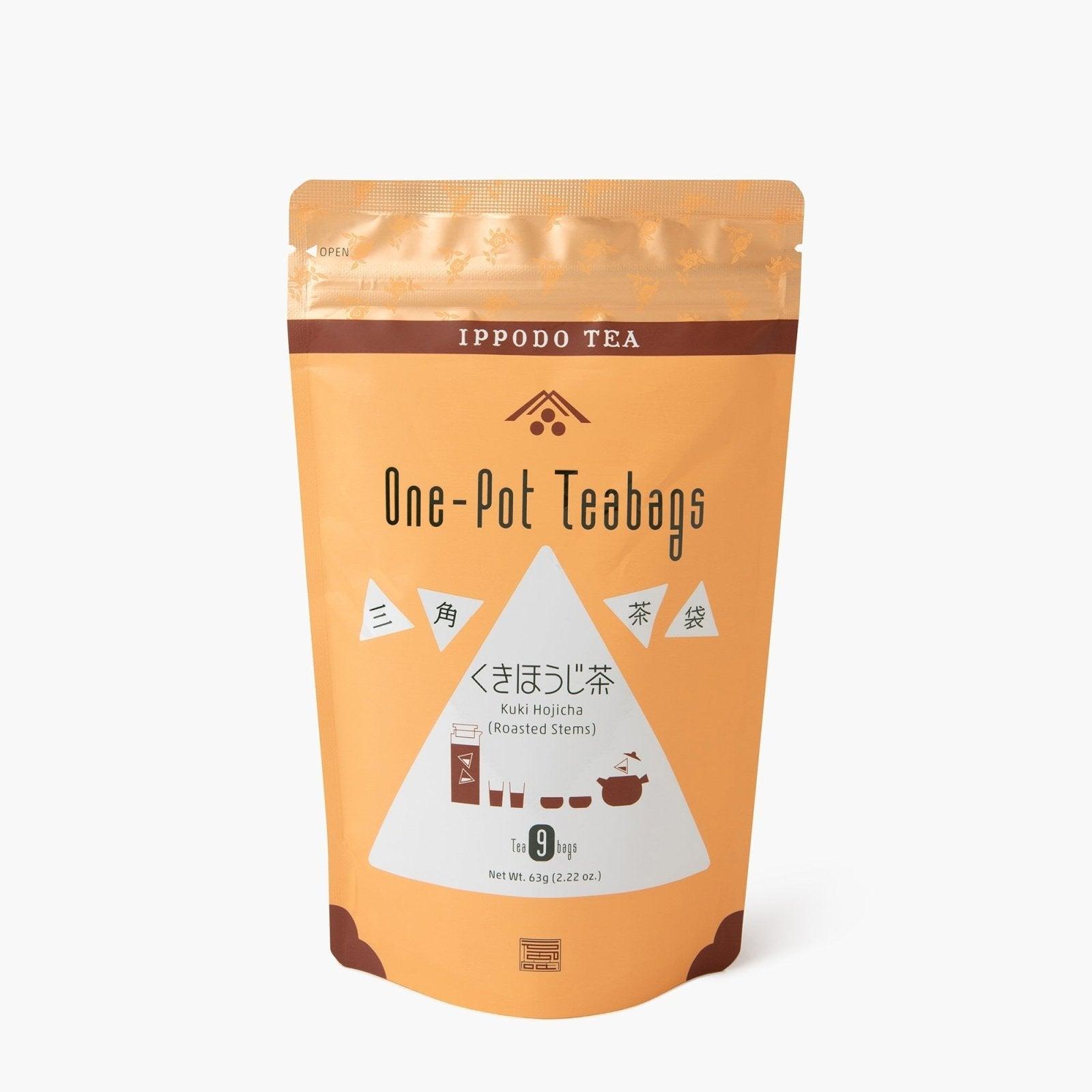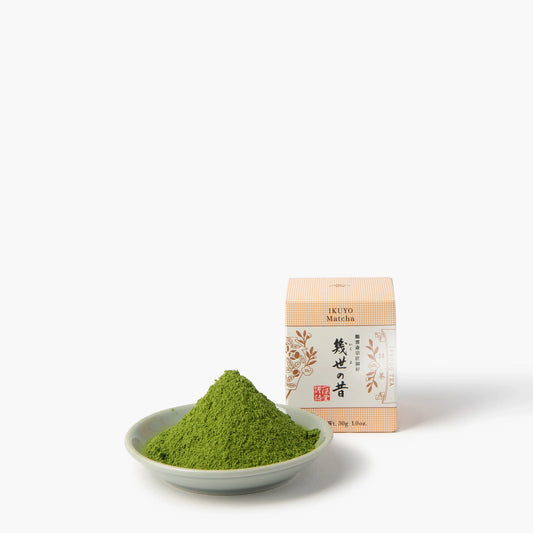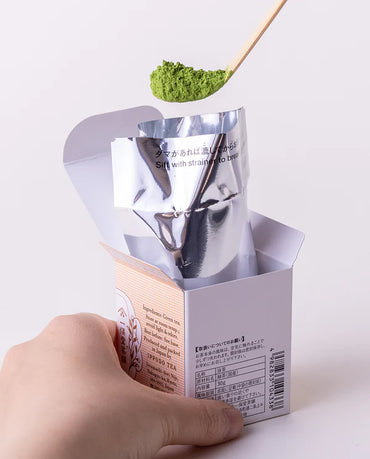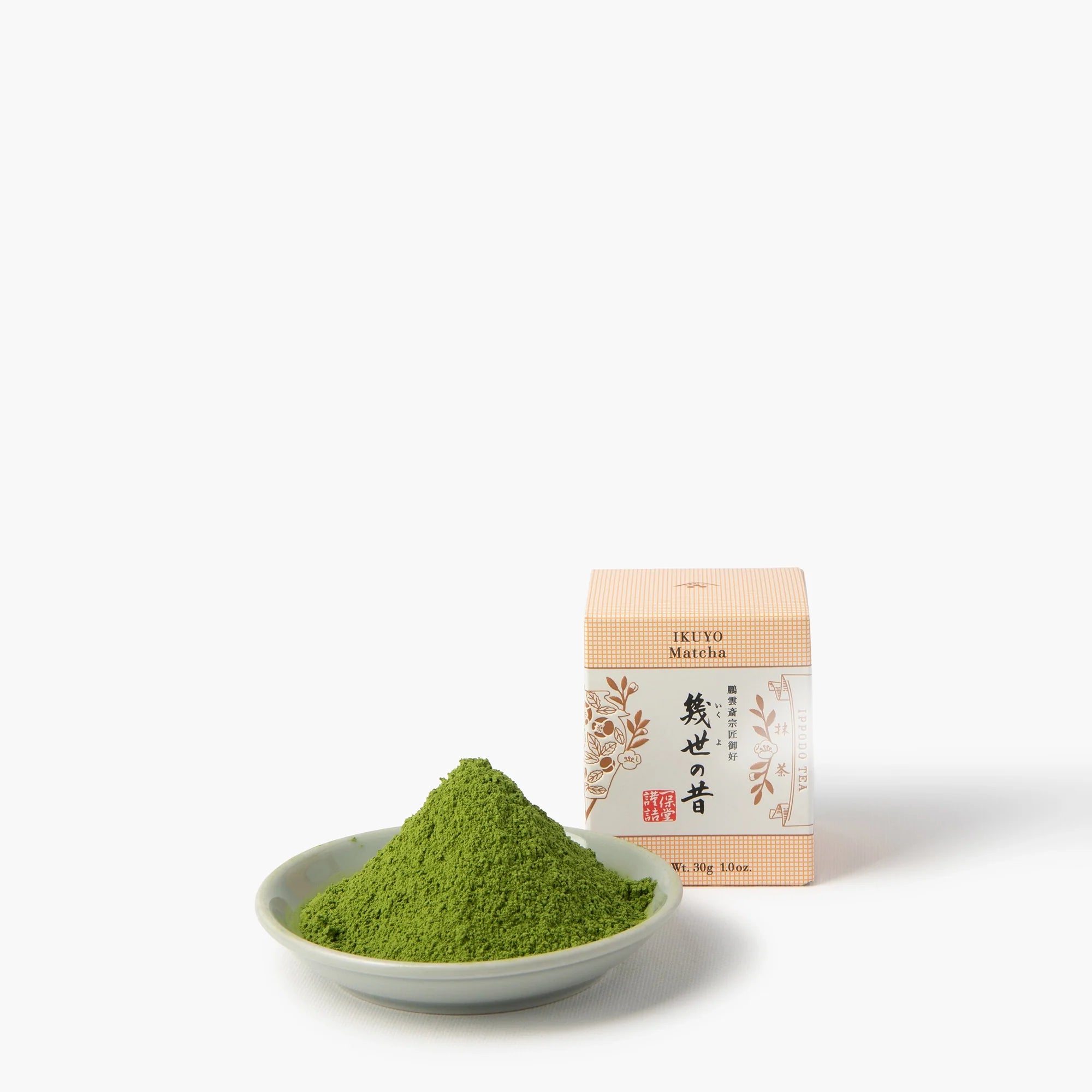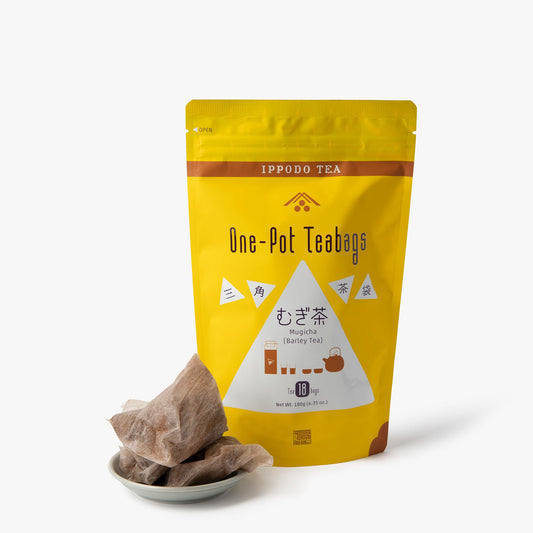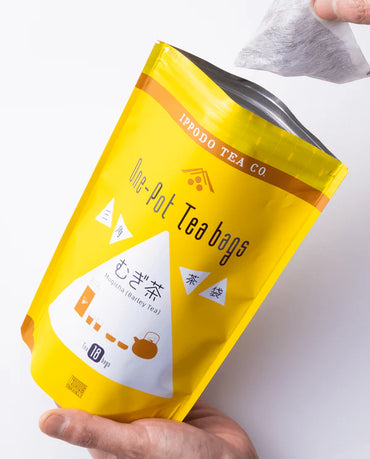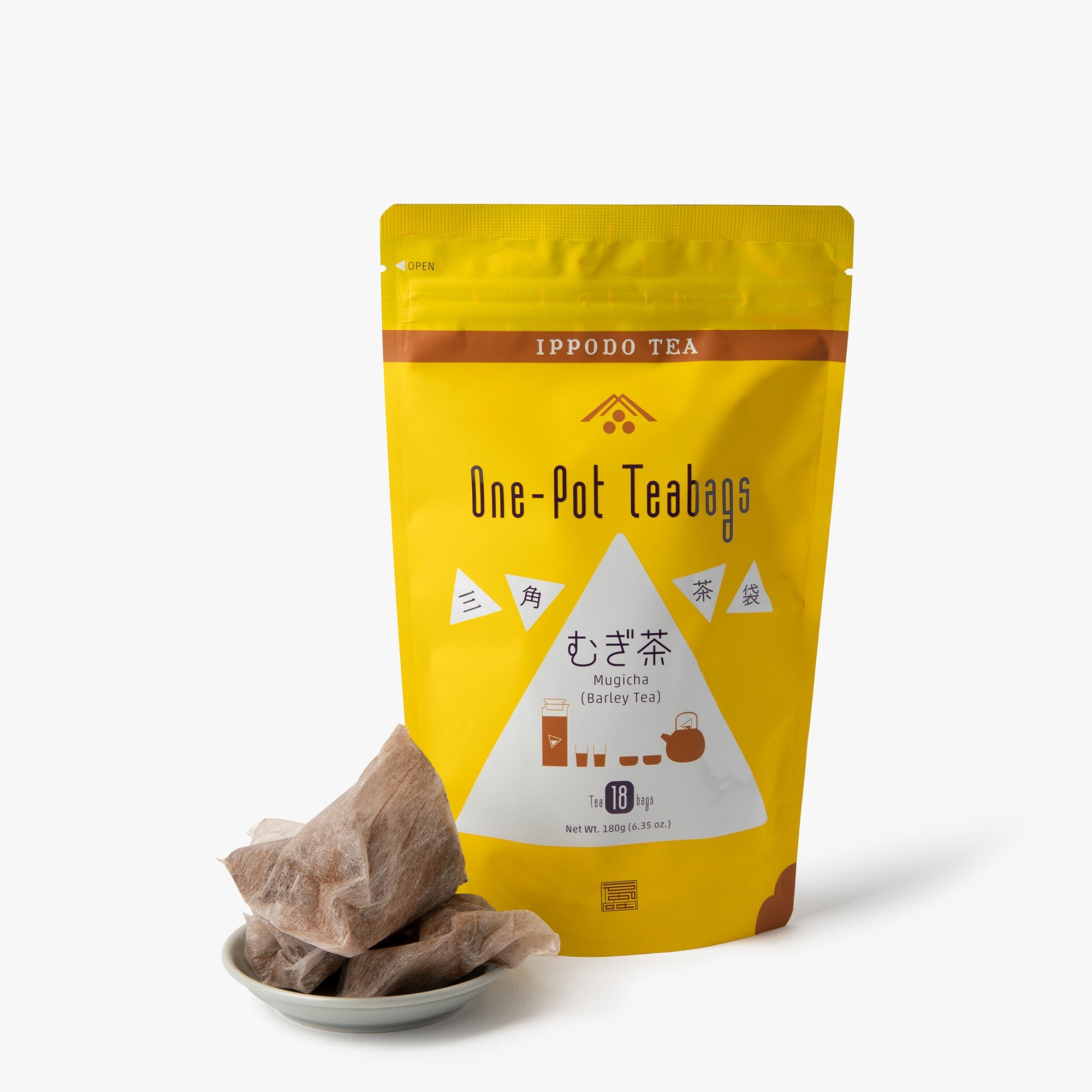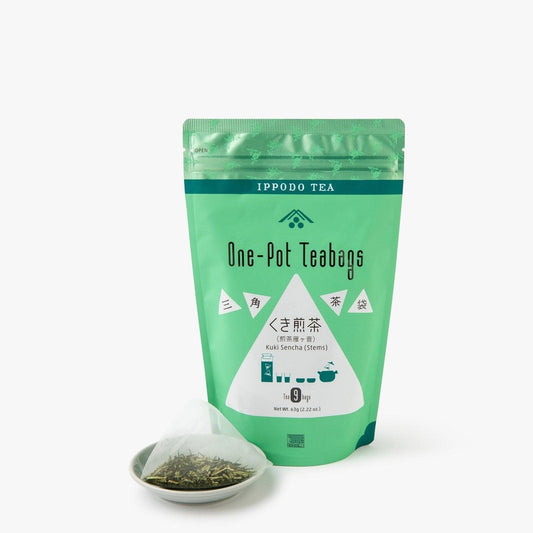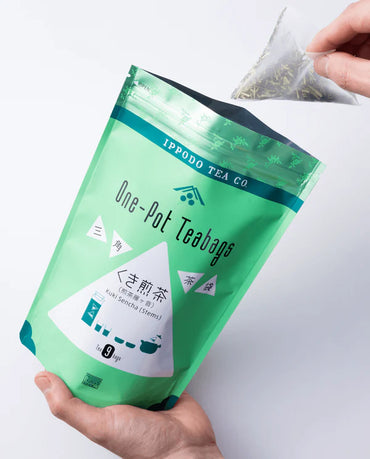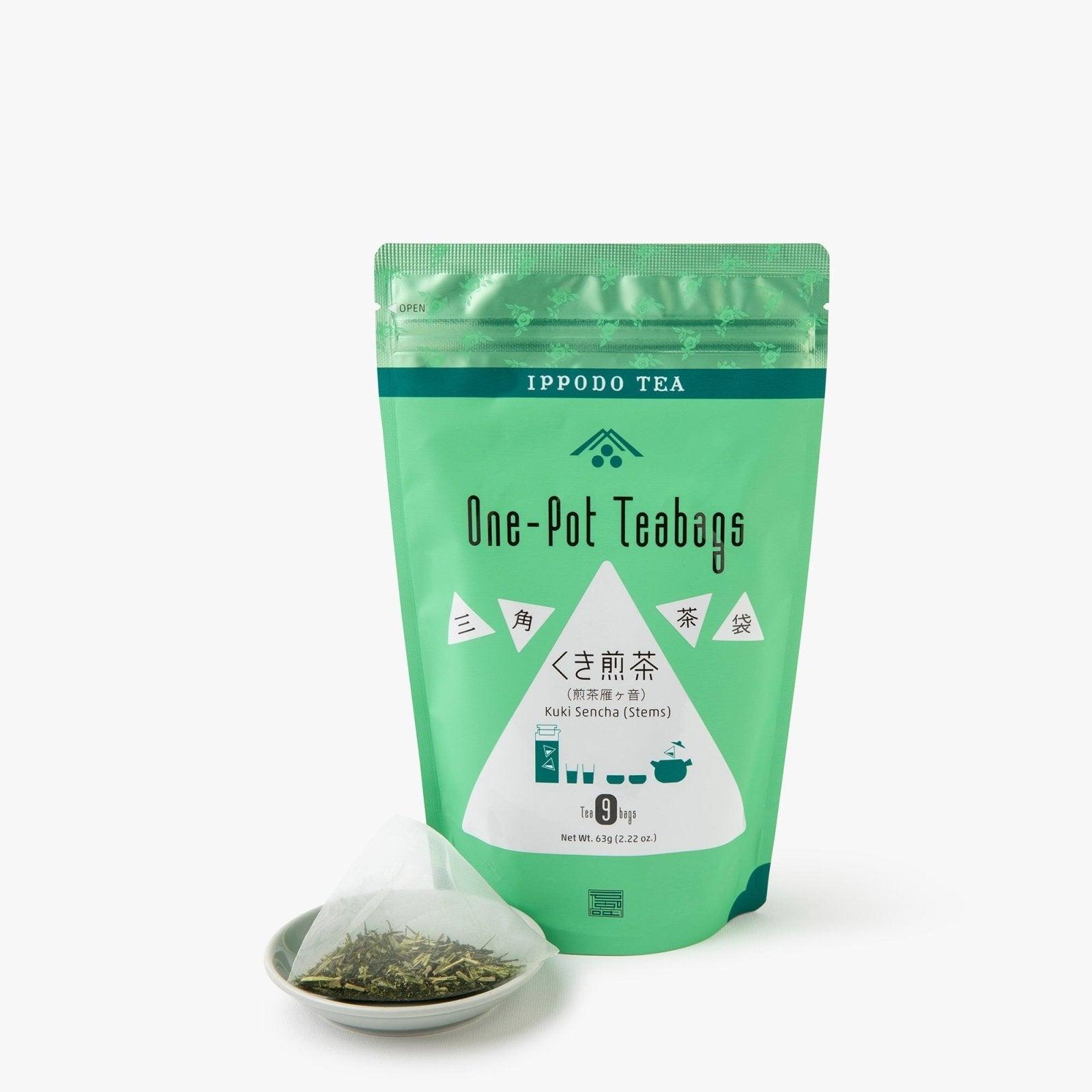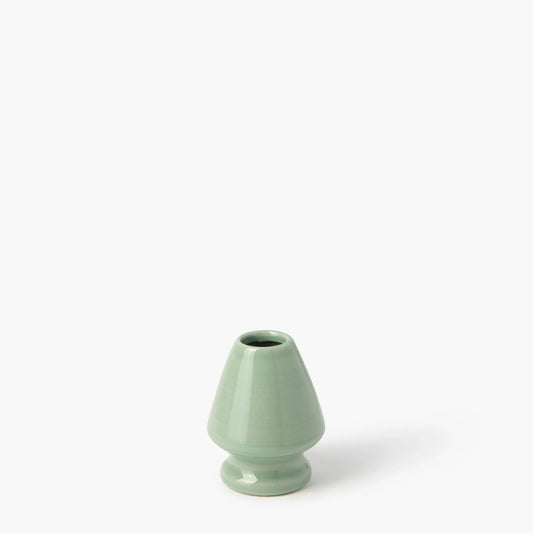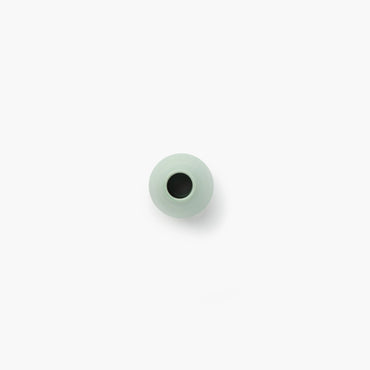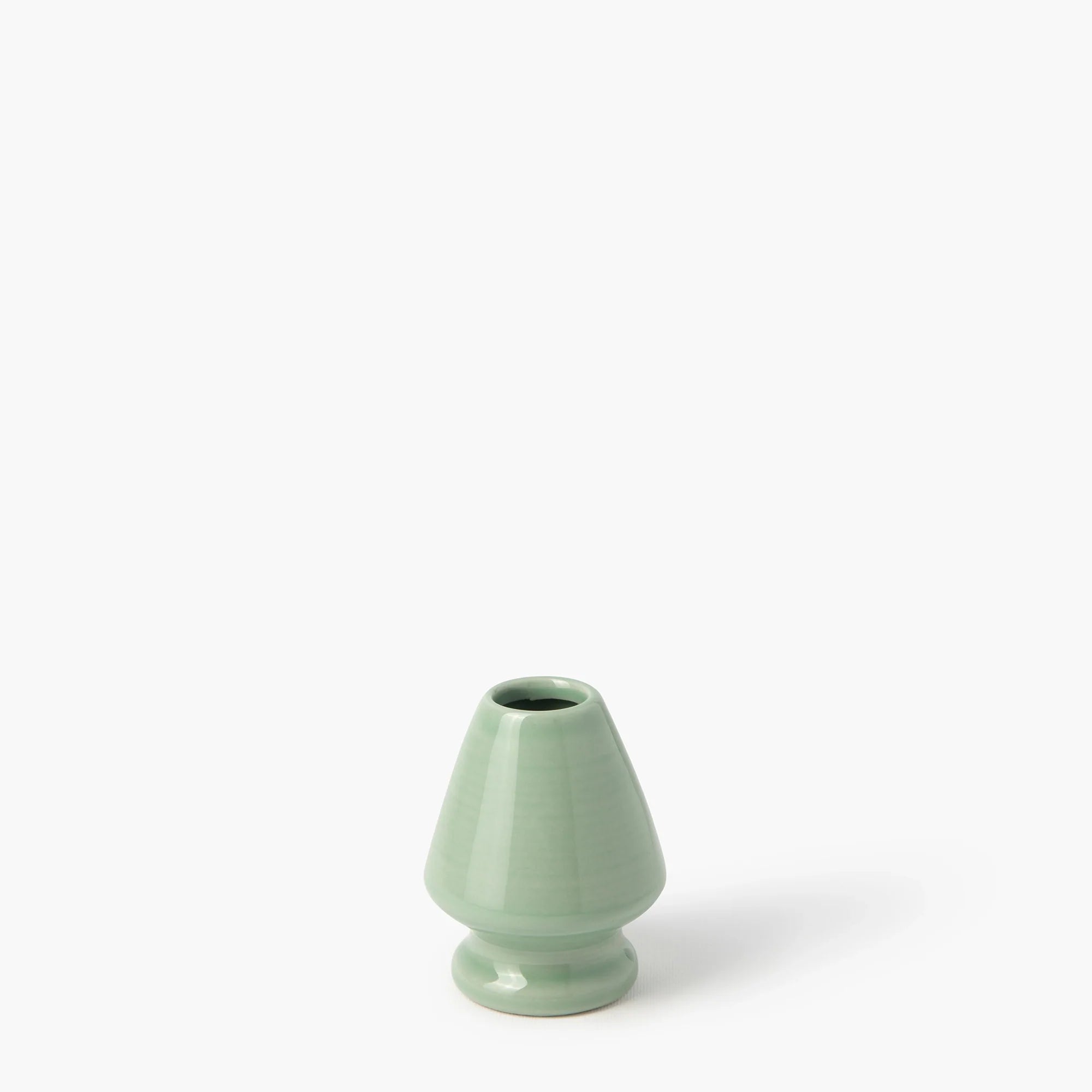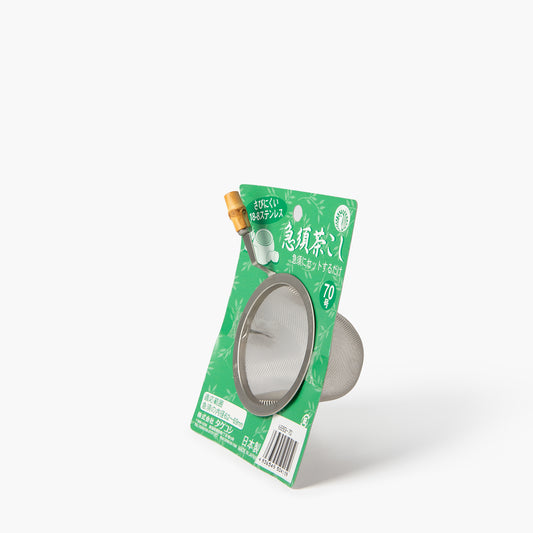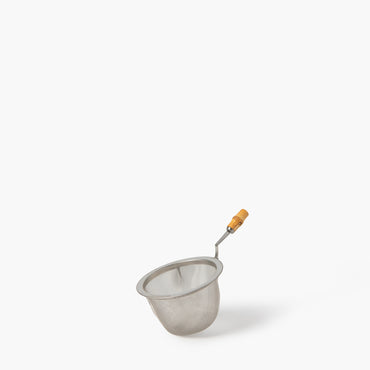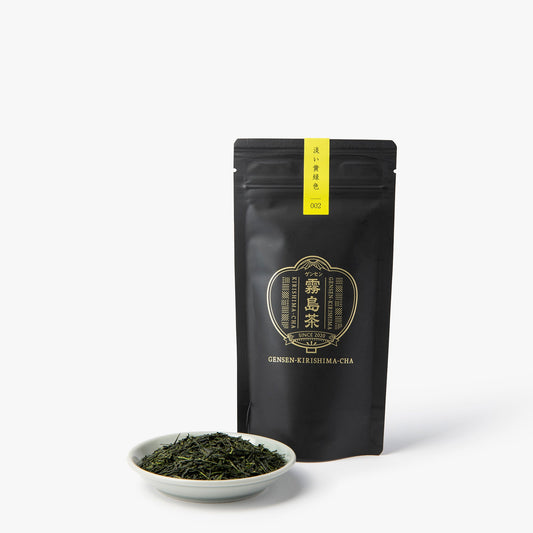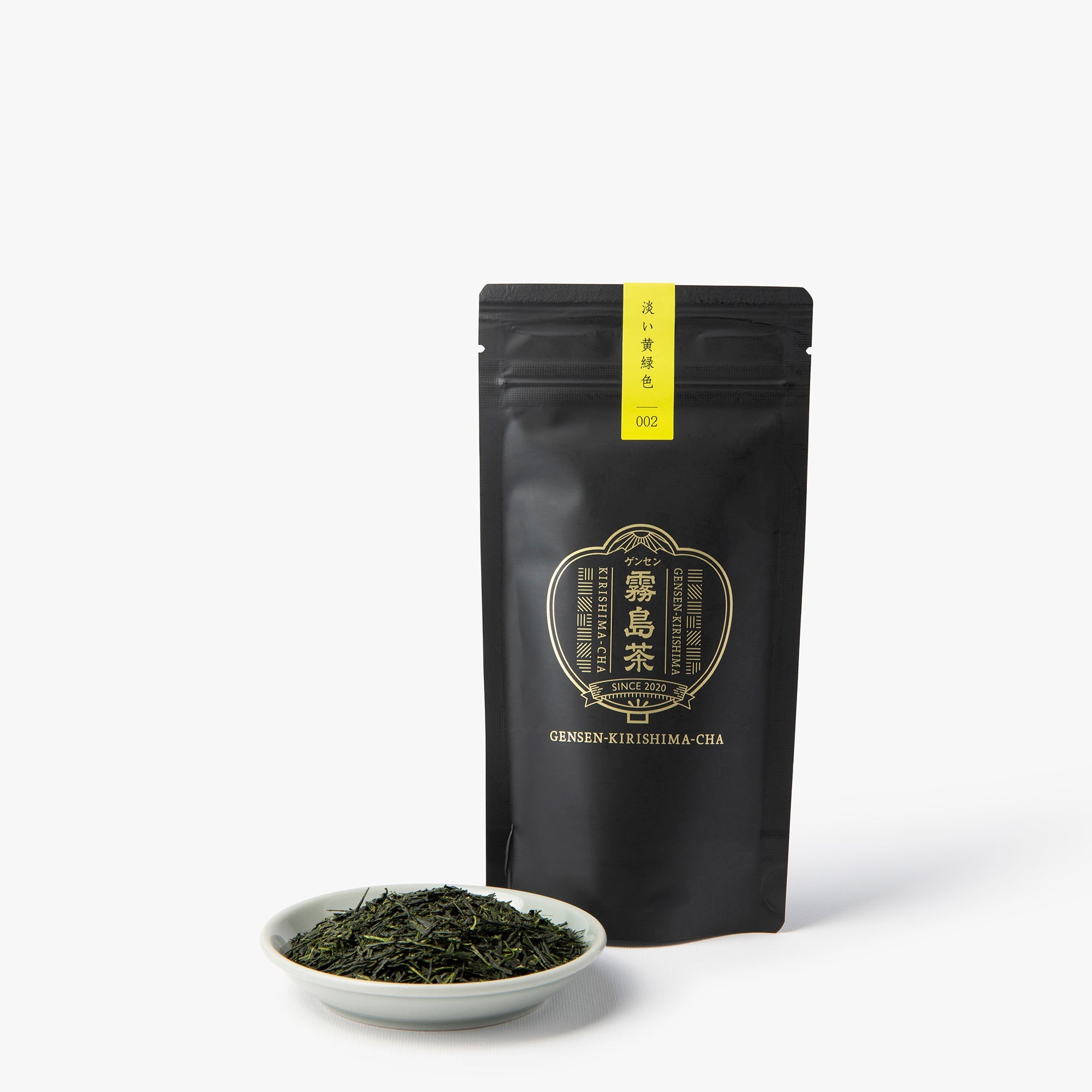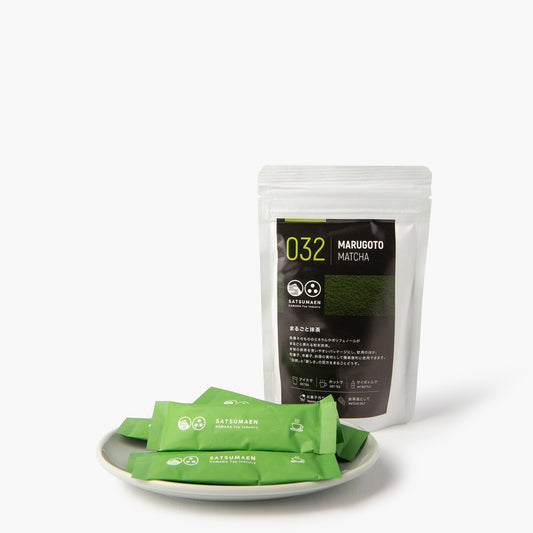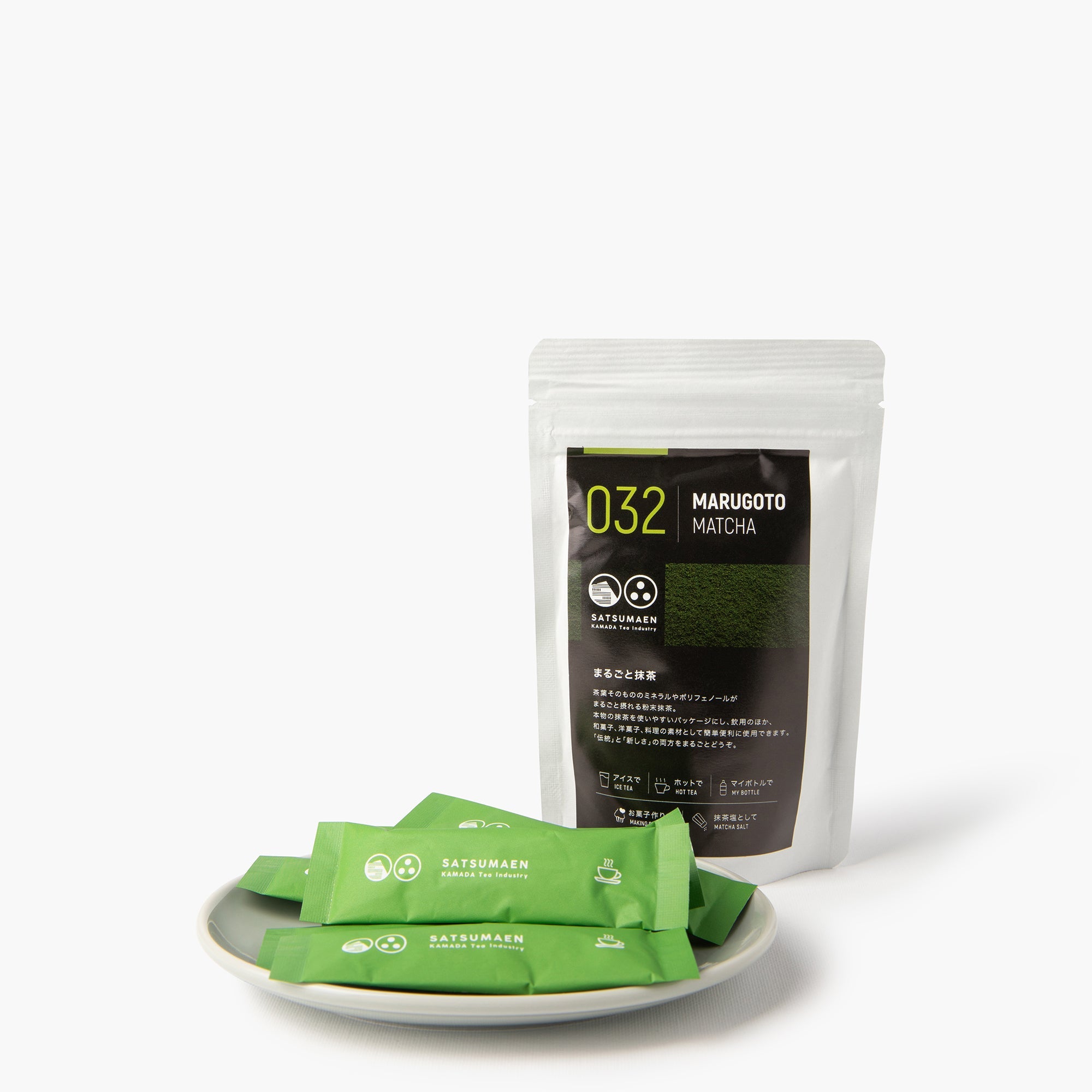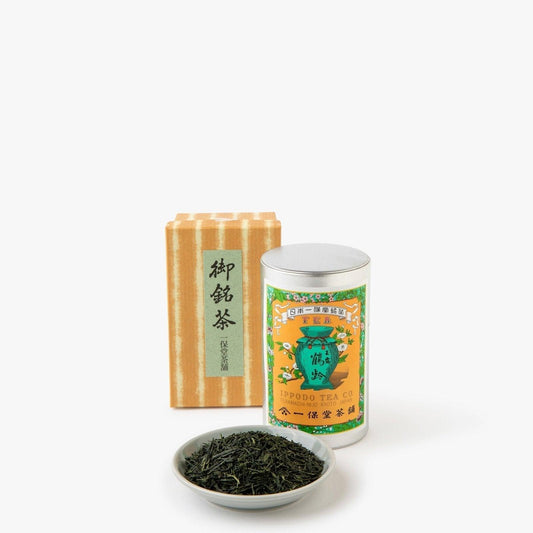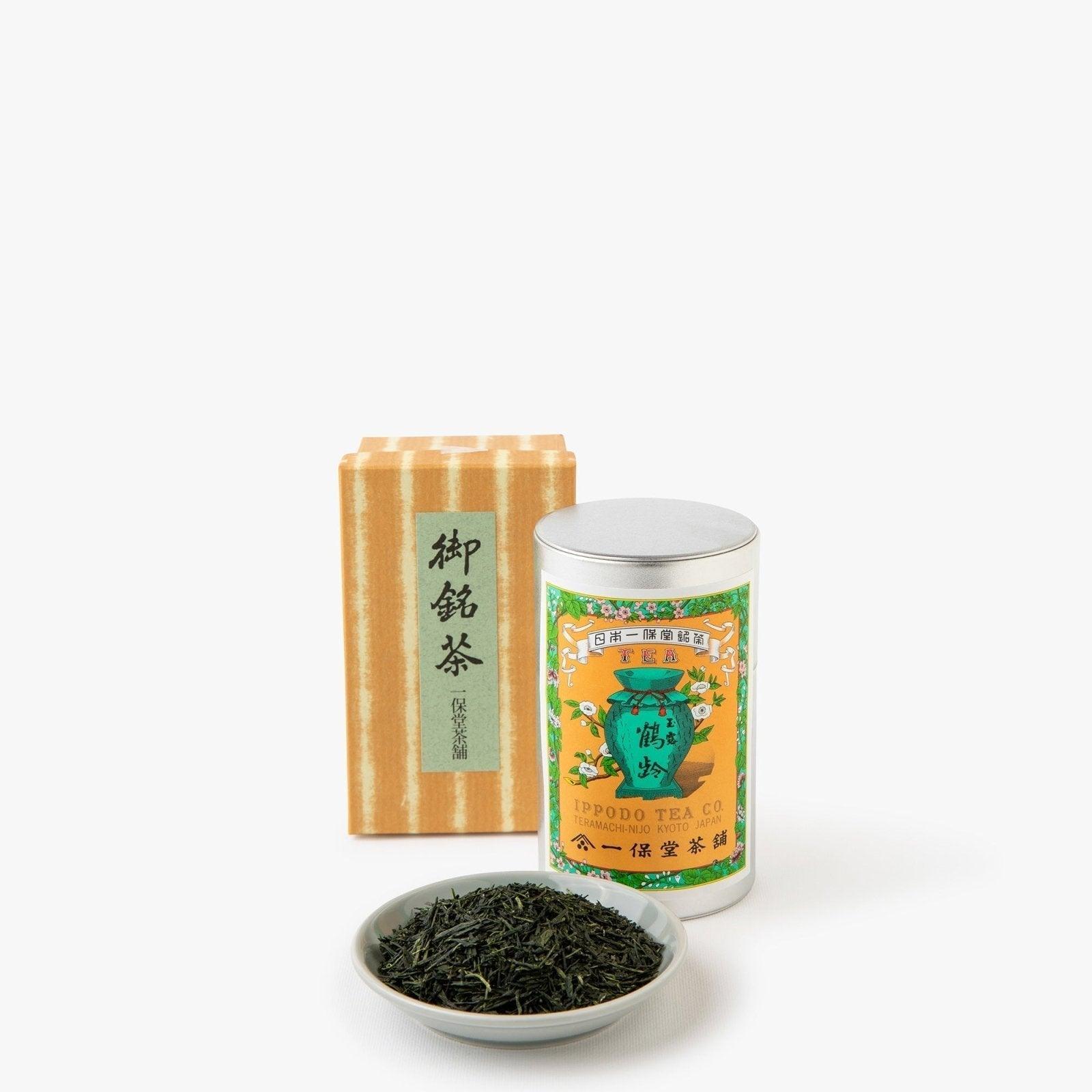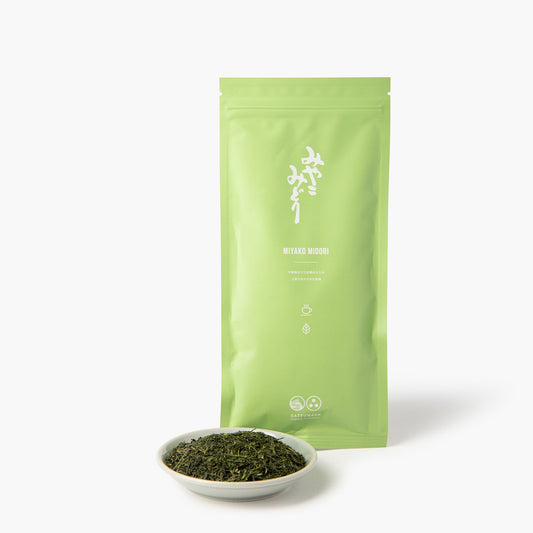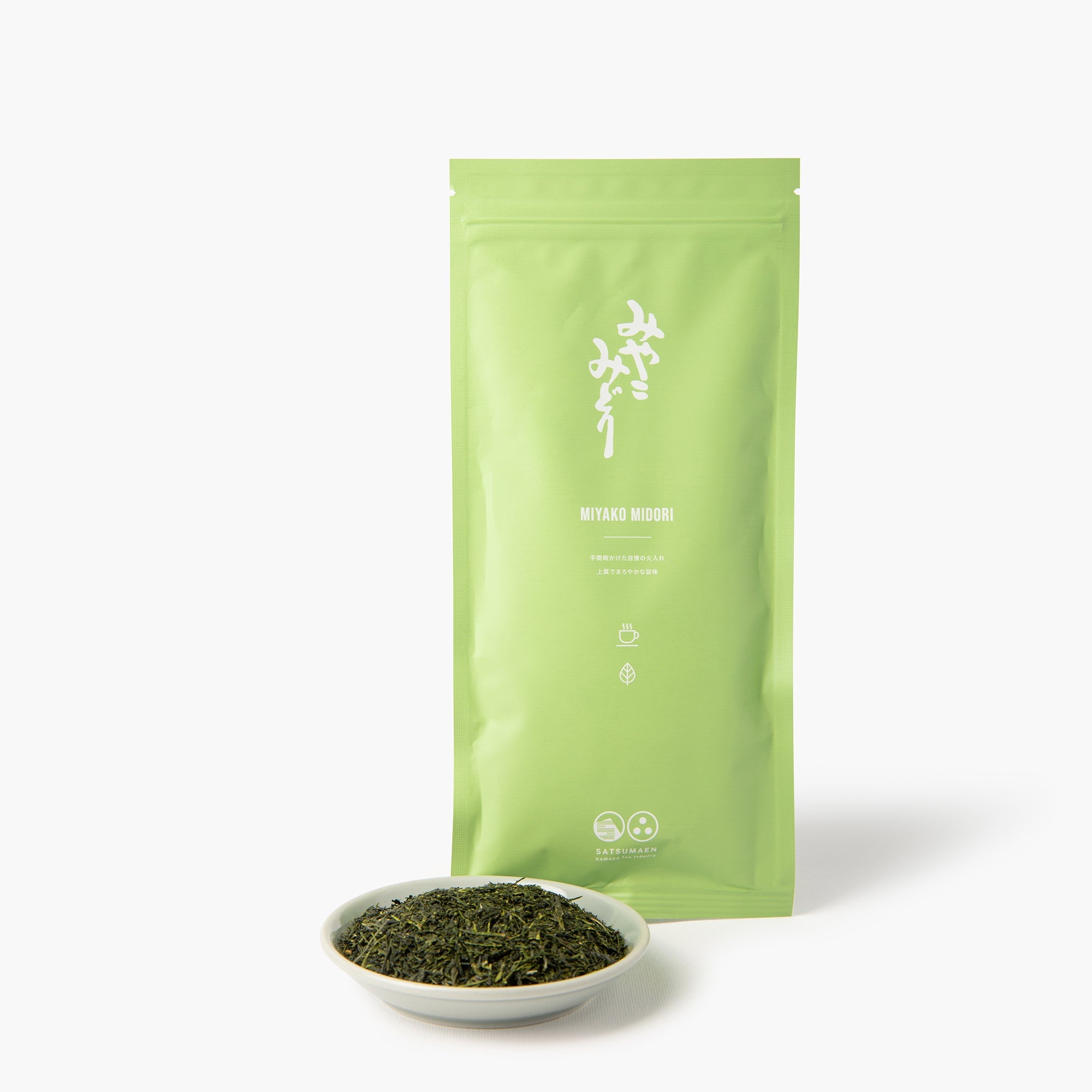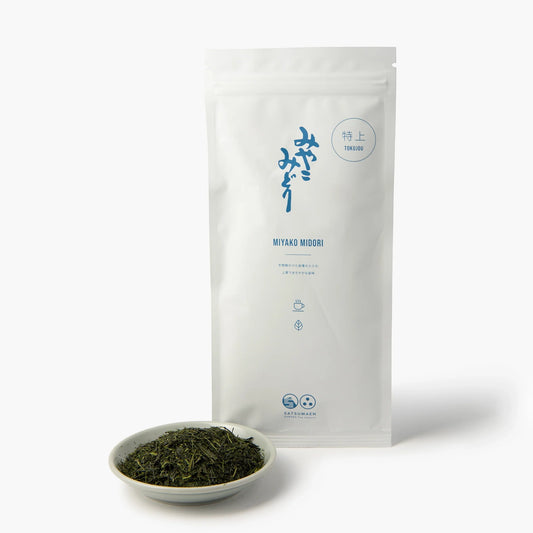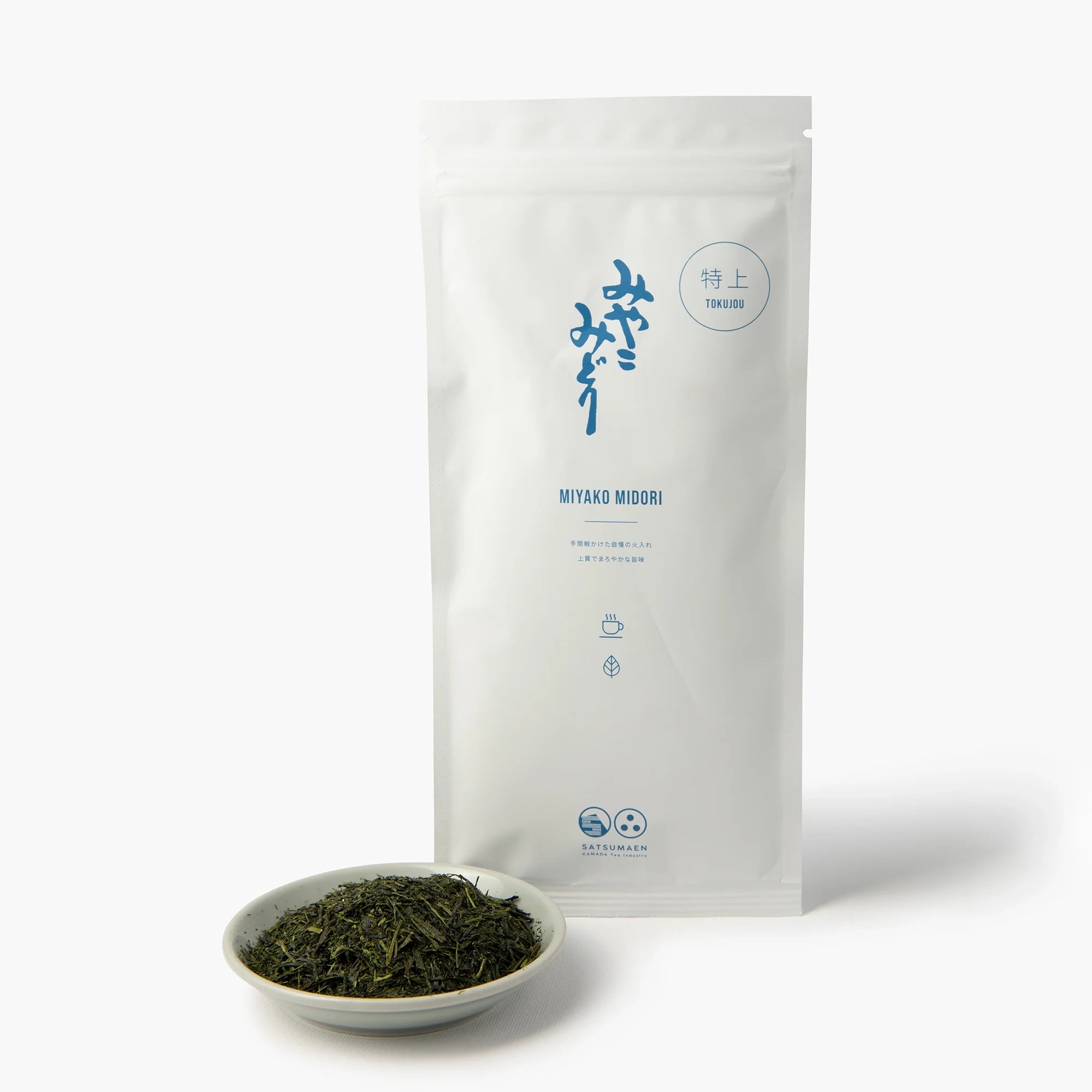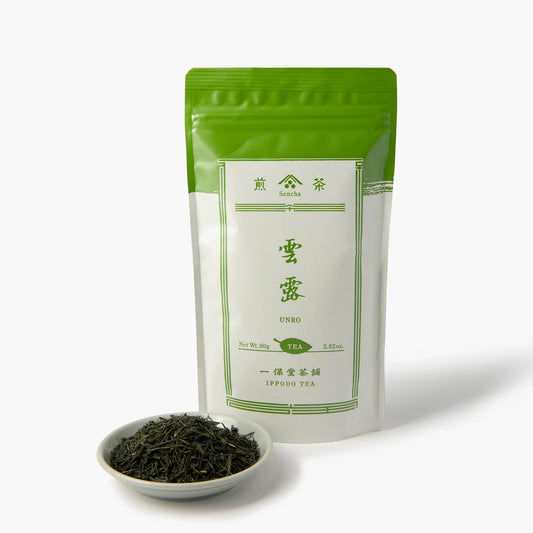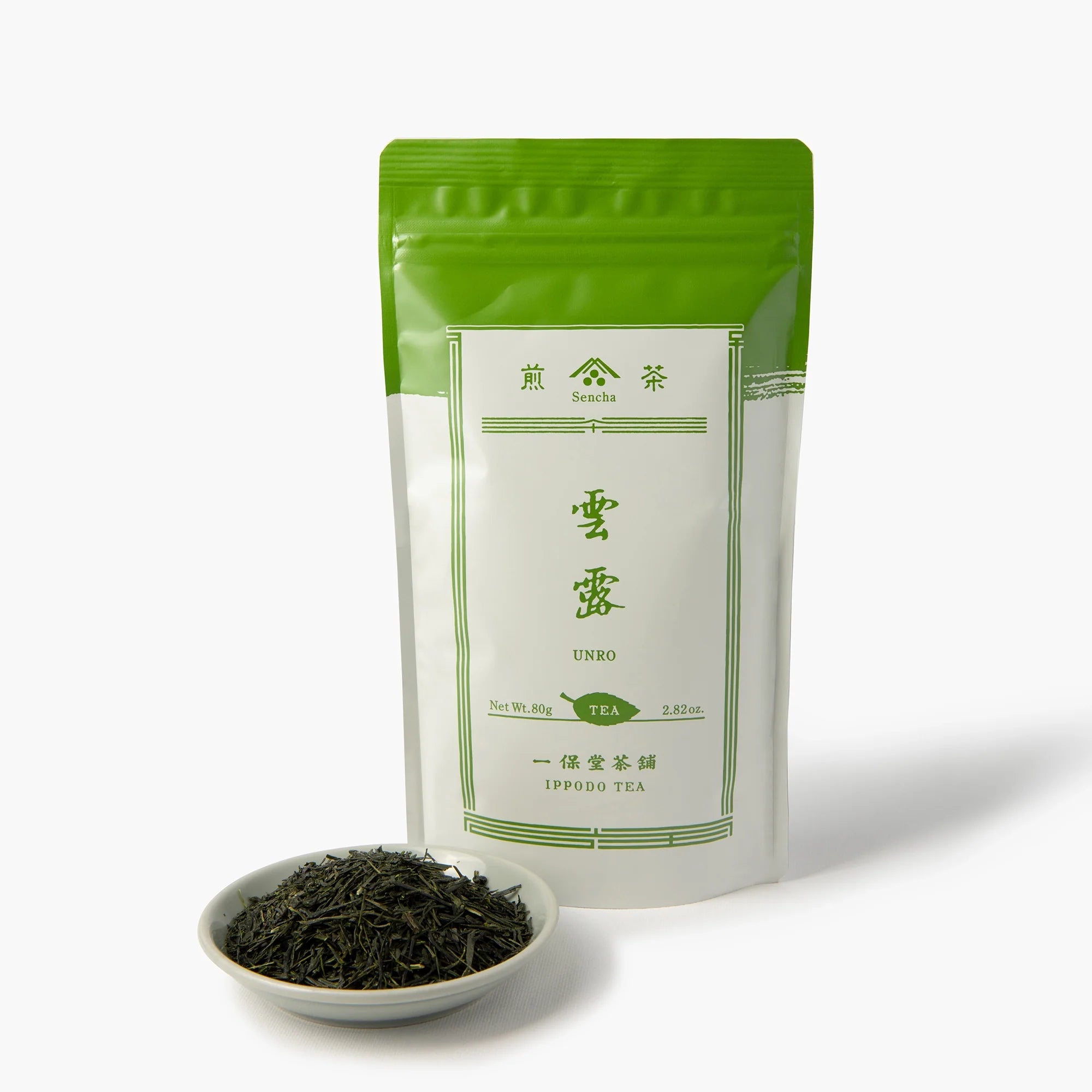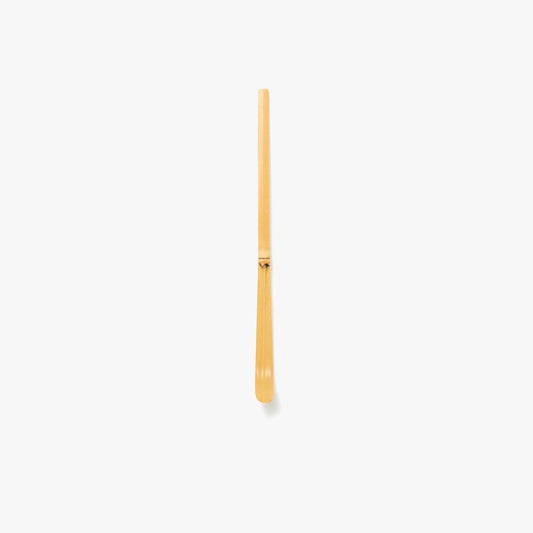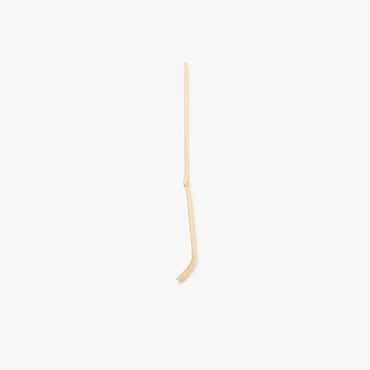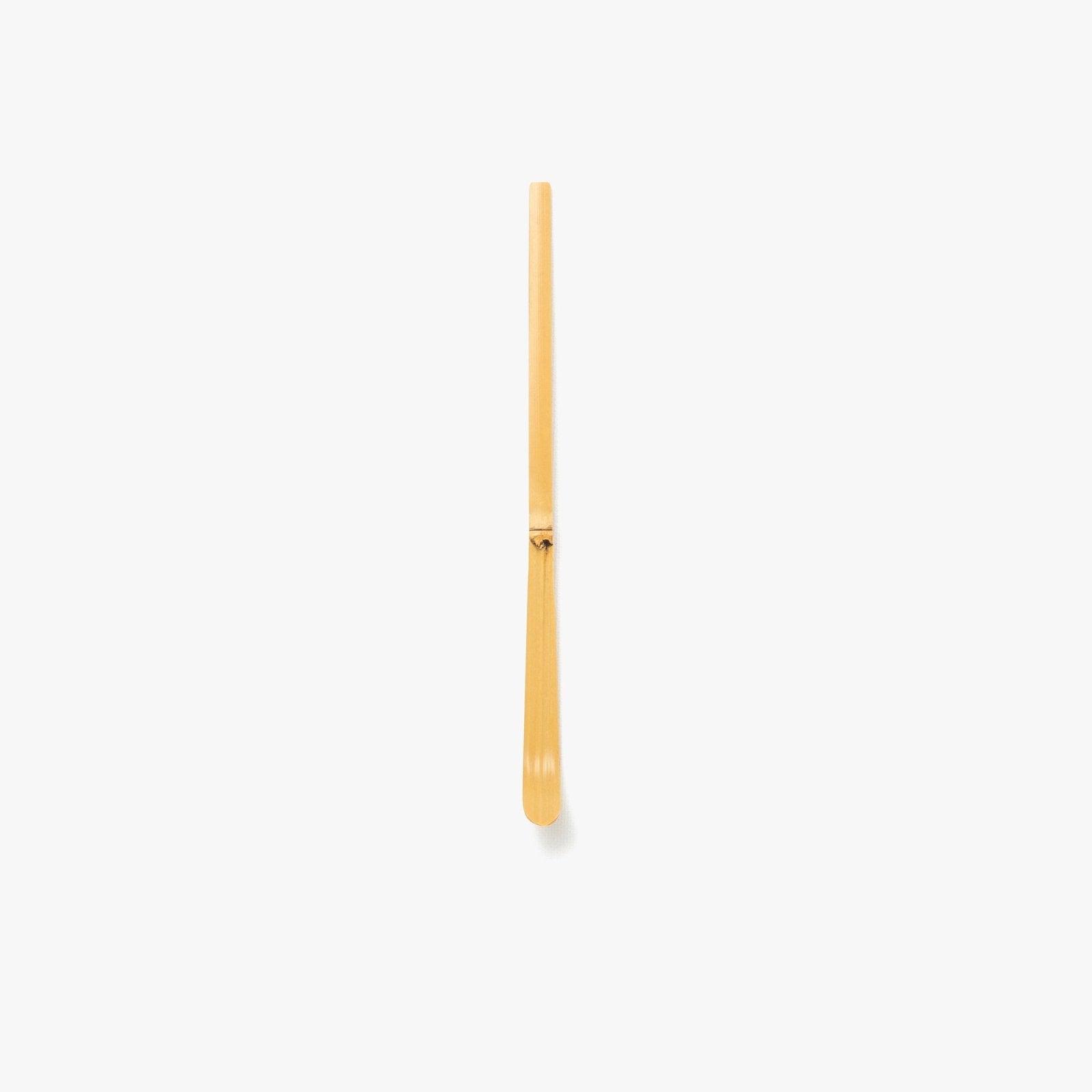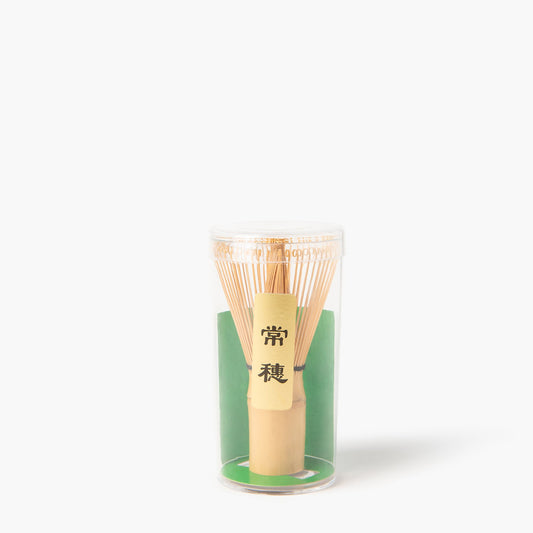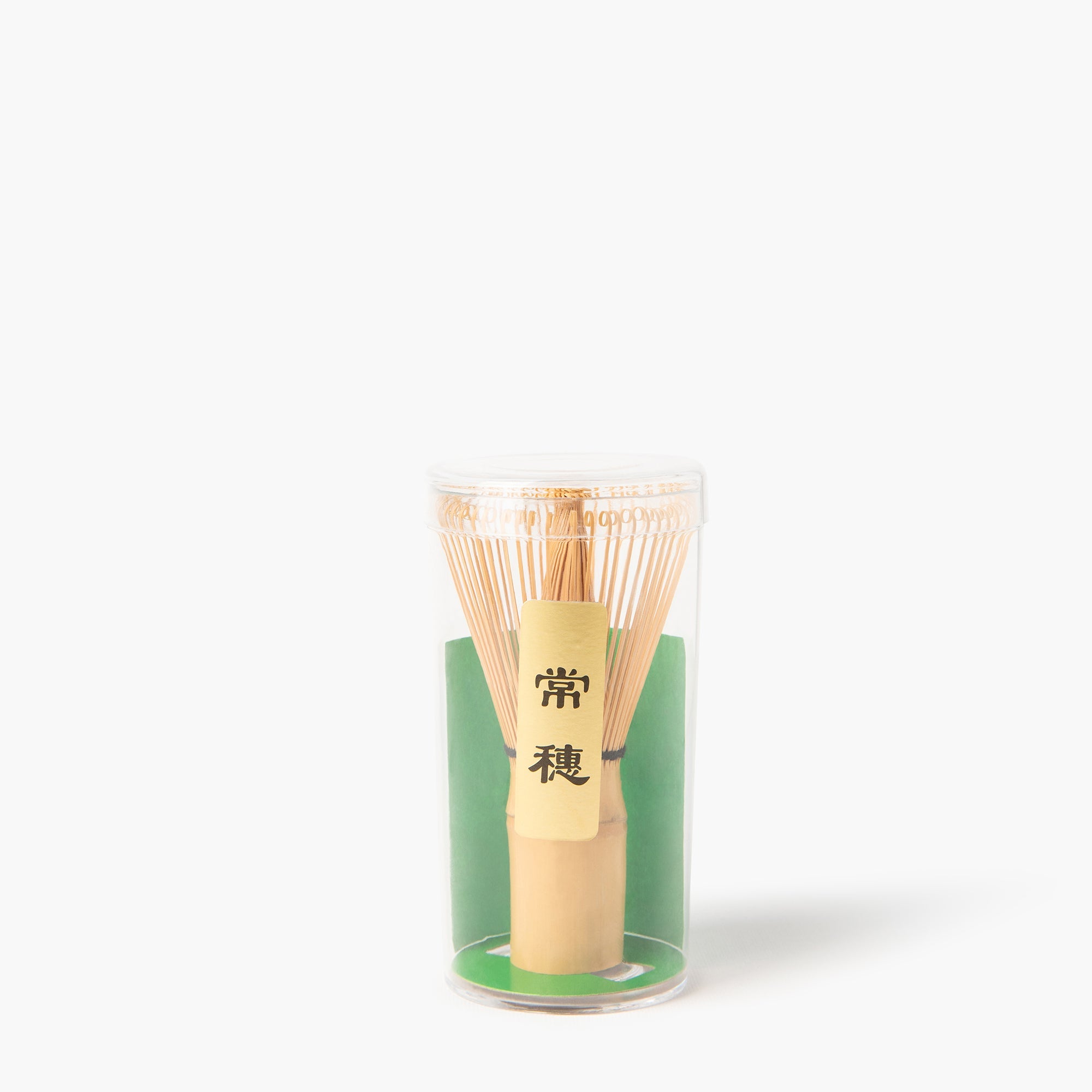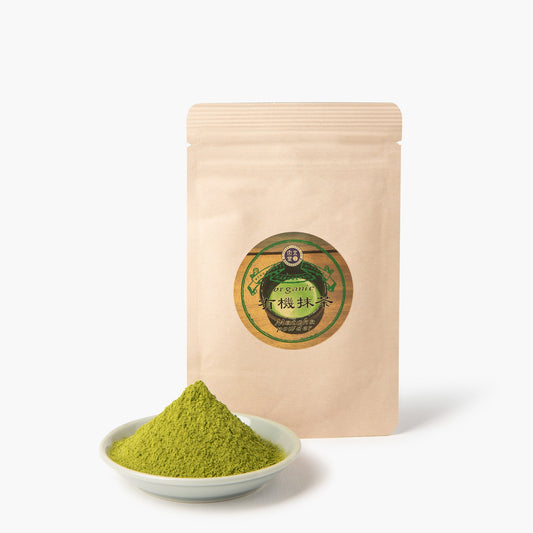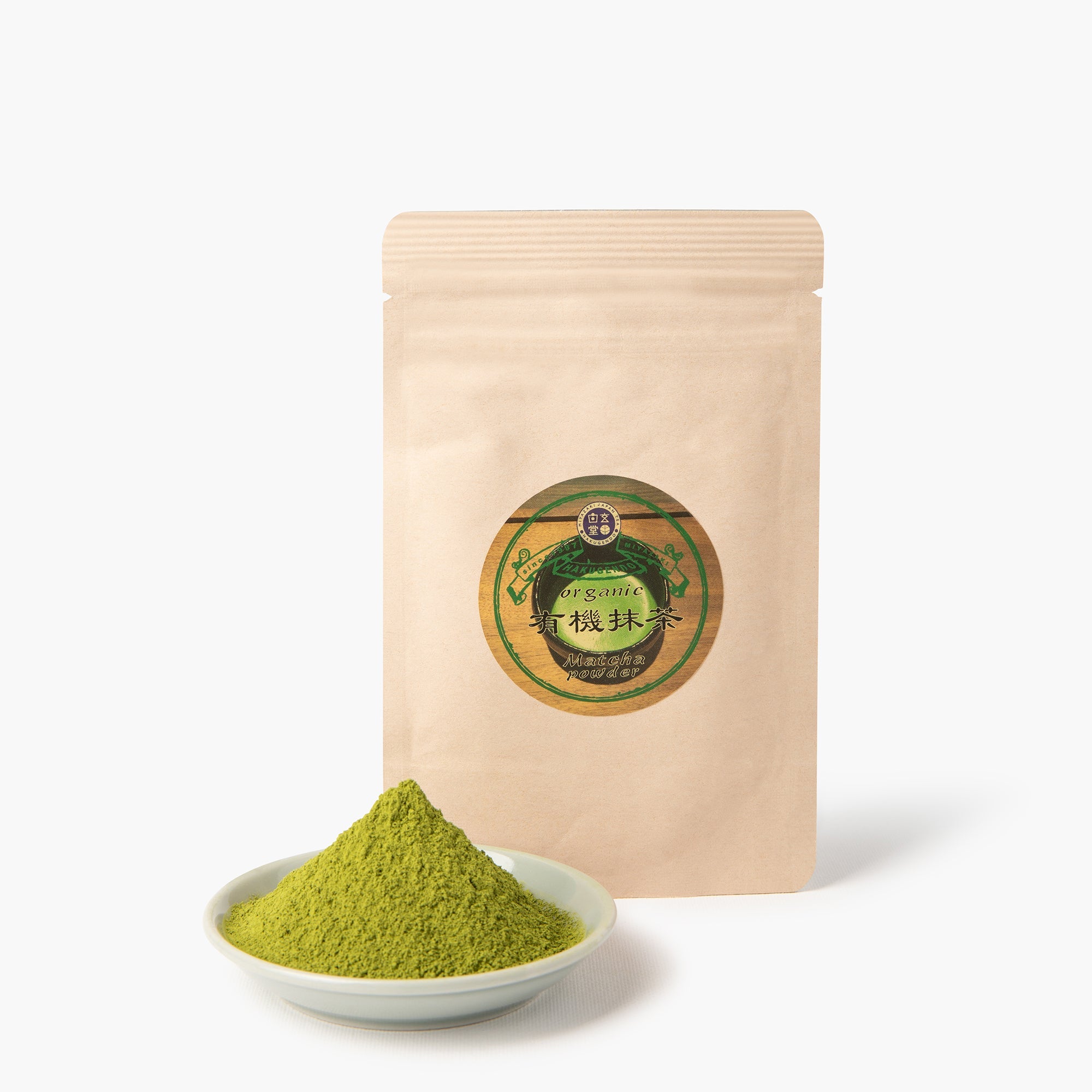Collection: Teas & infusions
Japan enjoys ideal geographical and climatic conditions for growing high-quality teas and infusions. They are said to have numerous health benefits: rich in antioxidants and vitamins, they are considered invigorating beverages, promoting relaxation and concentration. Discover our selection of Japanese teas and infusions to accompany you throughout the day!

-
Classic matcha tea Uji Sakura from Kyoto ⋅ Yamamasa Koyamaen ⋅ 30g
⋅ Matcha from Kyoto's Uji region, renowned for its quality⋅ Highly prized and made in very limited quantities⋅ Ideal for beginners to discover matcha⋅ Blend of...
Regular price 19.00 €Prix promotionnel 19.00 € Regular pricePrice per unit 633.33 € / per kg -
Classic matcha tea Kaede from Uji in Kyoto ⋅ Yamamasa Koyamaen ⋅ 100g
⋅ Matcha from Kyoto Uji, renowned for its quality⋅ Second and third harvests for aromatic intensity⋅ Ideal for matcha latte⋅ Rich in antioxidants⋅ Numerous...
Regular price 29.00 €Prix promotionnel 29.00 € Regular pricePrice per unit 290.00 € / per kg -
Classic matcha tea in a can ⋅ Aoi Seicha ⋅ 80g
⋅ Perfect for everyday use and for getting started with matcha⋅ Organically grown⋅ Canned to preserve aroma and limit oxidation⋅ Numerous benefits for the...
Regular price 32.00 €Prix promotionnel 32.00 € Regular pricePrice per unit 400.00 € / per kg -
Uji matcha tea ⋅ Yamamasa Koyamaen for iRASSHAi ⋅ 30g
⋅ Hand-harvested in Uji⋅ A healthy alternative to coffee⋅ For drinks, pastries or smoothiesThis matcha tea has been selected by iRASSHAi to be part of the...
Regular price 19.00 €Prix promotionnel 19.00 € Regular pricePrice per unit 633.33 € / per kg -
Fukuoka matcha granules for Latte ⋅ Nishifuku seicha ⋅ 200g
⋅ Sweet blend for matcha latte⋅ Original alternative to sugar in desserts⋅ Easy to dilute in waterThis special matcha latte blend is composed of...
Regular price 8.50 €Prix promotionnel 8.50 € Regular pricePrice per unit 42.50 € / per kg -
Matcha whisk chasen bamboo 80 branches ⋅ Emro Aziatica
⋅ 80-strand bamboo whisk for smooth, frothy matcha⋅ Large size for a comfortable, precise grip⋅ Made of natural bamboo⋅ Preserves...
Regular price 16.00 €Prix promotionnel 16.00 € Regular pricePrice per unit / per -
Roasted hojicha tea powder ⋅ Yamamasa Koyamaen ⋅ 100g
⋅ Finely ground Kyoto Uji hojicha⋅ Ideal for patisserie or latte⋅ Rich, roasted, warm fragrance⋅ Balanced taste⋅ Low tea contentThis hojicha powder can be...
Regular price 12.75 €Prix promotionnel 12.75 € Regular pricePrice per unit 127.50 € / per kg -

Your tea essentials
-
Matcha tea ceremony Asanoka ⋅ Rokubei Tea ⋅ 30g
⋅ Monovariety Asanoka⋅ Matcha certified JAS⋅ Rich in antioxidants⋅ Matcha ceremony⋅ Mild notes, little bitternessA high-quality matcha with sweet and umami notes, from...
Regular price 25.00 €Prix promotionnel 25.00 € Regular pricePrice per unit 833.33 € / per kg -
Miyazaki Classic Matcha Tea ⋅ Rokubei Tea ⋅ 30g
⋅ First-harvest matcha⋅ Fine aroma⋅ Deep umami⋅ Ideal for discovering a good matcha!⋅ Many health benefits⋅ Rich in antioxidantsA matcha of great...
Regular price 24.00 €Prix promotionnel 24.00 € Regular pricePrice per unit 800.00 € / per kg -
Kitchen matcha tea bag ⋅ Aoi Seicha ⋅ 30g
⋅ Excellent cooking matcha⋅ Rich in antioxidants⋅ Controlled bitterness, perfect in latte or dessert⋅ Zip closure to limit oxidationThis matcha powder is made...
Regular price 7.80 €Prix promotionnel 7.80 € Regular pricePrice per unit 260.00 € / per kg -
Tenka roasted hojicha tea from Kyoto Uji in bulk ⋅ Yamamasa Koyamaen ⋅ 100g
⋅ Hojicha d'Uji from Kyoto⋅ Roasted flavor evoking chocolate and hazelnut⋅ Low caffeine or theine content⋅ Also available in aluminum canThis hojicha...
Regular price 8.95 €Prix promotionnel 8.95 € Regular pricePrice per unit 89.50 € / per kg -
Matcha tea ceremony ⋅ Anatae ⋅ 30g
⋅ Matcha cérémonie biologique⋅ Anatae, Vendor française⋅ Mousse onctueuse⋅ Aucune amertume⋅ Nombreux bienfaits pour la santéAn excellent quality organic green tea. Made from the leaves of...
Regular price 40.00 €Prix promotionnel 40.00 € Regular pricePrice per unit 1,333.33 € / per kg -
Loose sweetened Uji matcha tea from Kyoto ⋅ Kobayashi Noriten ⋅ 200g
⋅ Sweet blend for matcha latte⋅ Made with matcha from Uji⋅ Gold award at Monde Sélection de Bruxelles 2022⋅ Original alternative to sugar in...
Regular price 18.00 €Prix promotionnel 18.00 € Regular pricePrice per unit 90.00 € / per kg -
Kyozen matcha tea from Uji in Kyoto ⋅ Yamamasa Koyamaen ⋅ 100g
⋅ Matcha from Uji in Kyoto, renowned for its quality⋅ Intense umami fragrance⋅ Ideal for matcha pastries and desserts⋅ Detoxifying⋅ Numerous health benefitsThis...
Regular price 20.00 €Prix promotionnel 20.00 € Regular pricePrice per unit 200.00 € / per kg -
Classic matcha tea ⋅ Anatae ⋅ 30g
⋅ Intense Matcha, perfect in latte or patisserie⋅ Anatae, French Vendor Numerous health benefits⋅ Pronounced umamiRich in vitamins and antioxidants, it offers a taste...
Regular price 26.50 €Prix promotionnel 26.50 € Regular pricePrice per unit 883.33 € / per kg -
Matcha chasen bamboo whisk 48 branches ⋅ Emro Aziatica
⋅ 48-strand matcha whisk for fine, creamy foam⋅ Made of natural bamboo, no glue or varnish⋅ Preserves the flavour and texture of the...
Regular price 14.50 €Prix promotionnel 14.50 € Regular pricePrice per unit / per -
Intense double roasted hojicha tea powder ⋅ Yamamasa Koyamaen ⋅ 100g
⋅ Finely ground Uji hojicha⋅ Ideal for patisserie or latte⋅ Rich, toasty, warm fragrance⋅ Intense taste⋅ Low tea contentThis hojicha is made from a process...
Regular price 10.25 €Prix promotionnel 10.25 € Regular pricePrice per unit 102.50 € / per kg -
Loose roasted hojicha tea from Kyoto Uji ⋅ Yamamasa Koyamaen ⋅ 40g
⋅ Hojicha d'Uji de Kyoto⋅ Rich, deep fragrance⋅ Comforting roasted notes⋅ Low theine⋅ Ideal after a good Japanese dinner!This exceptional Hojicha is...
Regular price 12.60 €Prix promotionnel 12.60 € Regular pricePrice per unit 315.00 € / per kg -
Yuzu green tea for cold infusion 7 Sachets ⋅ En Tea ⋅ 35g
⋅ Yuzu-scented green tea⋅ Refreshing fragrance⋅ Ideal for cold infusion and iced tea⋅ Umami mastered⋅ To be re⋅ infused several timesDiscover a...
Regular price 14.90 €Prix promotionnel 14.90 € Regular pricePrice per unit 425.71 € / per kg -
Sencha matcha tea Mabushi loose ⋅ Yamamasa Koyamaen ⋅ 200g
⋅ Blend of sencha and matcha⋅ Emerald-colored infusion⋅ Fresh taste with lots of umami⋅ Rich in antioxidants⋅ Refill bagThis unique tea is created by sprinkling...
Regular price 14.20 €Prix promotionnel 14.20 € Regular pricePrice per unit 71.00 € / per kg -
Uji matcha tea with sieve ⋅ Chikiriya ⋅ 30g
⋅ Stone-ground Uji Matcha⋅ Rich in antioxidants and numerous health benefits⋅ Sieve integrated into packaging, ideal for travel⋅ Delicious pure...
Regular price 18.00 €Prix promotionnel 18.00 € Regular pricePrice per unit 600.00 € / per kg -
Matcha tea kit with sieve and spatula ⋅ Yamamasa Koyamaen
⋅ Fine sieve for lump-free powder⋅ Steel box for storing matcha⋅ Spatula included for precise dosing⋅ An essential kit for the...
Regular price 12.80 €Prix promotionnel 12.80 € Regular pricePrice per unit / per -
Yuzu black tea loose ⋅ Miyazaki sabou ⋅ 40g
⋅ Moyazaki black tea scented with yuzu⋅ Scent of fresh citrus, yuzu, slightly woody⋅ Mild, refreshing infusion⋅ Also available in individual bagsThis black tea...
Regular price 8.30 €Prix promotionnel 8.30 € Regular pricePrice per unit 207.50 € / per kg -
Matcha genmaicha tea 10 tea bags ⋅ Kamitsujien ⋅ 30g
⋅ Genmaicha and matcha blend⋅ 10 easy-to-infuse sachets⋅ Certified organic by the JAS⋅ label⋅ Herbal notes with toasted rice⋅ Brew for several...
Regular price 8.50 €Prix promotionnel 8.50 € Regular pricePrice per unit 283.33 € / per kg -
Buckwheat infusion sobacha bulk ⋅ Naraya ⋅ 120g
⋅ Rich buckwheat flavor⋅ Infusion contains no theine or caffeine⋅ Rich in antioxidants⋅ Brew hot or cold⋅ Can also be sprinkled on saladsAn infusion of...
Regular price 8.50 €Prix promotionnel 8.50 € Regular pricePrice per unit 70.83 € / per kg -
Matcha whip holder chasen-naoshi blue ⋅ Emro Aziatica
⋅ Holds whip shape for long-lasting use⋅ Optimal drying after each use⋅ Elegant deep-blue ceramic designThis holder extends the life of...
Regular price 8.50 €Prix promotionnel 8.50 € Regular pricePrice per unit / per -
Organic Matcha Ceremony Tea ⋅ Sayuri&Co ⋅ 60g
⋅ Okumidori and Saemidori varieties⋅ Organic Matcha, JAS-certified⋅ Creamy texture⋅ Rich aroma⋅ Numerous benefits for health, skin and hairThis exceptional green tea,...
Regular price 39.50 €Prix promotionnel 39.50 € Regular pricePrice per unit 658.33 € / per kg -
Sencha matcha tea Mabushi loose ⋅ Yamamasa Koyamaen ⋅ 100g
⋅ Sencha and matcha blend⋅ Emerald-colored infusion⋅ Fresh, very umami taste⋅ Rich in antioxidants⋅ Alluminium tin to preserve freshnessThis unique tea...
Regular price 13.50 €Prix promotionnel 13.50 € Regular pricePrice per unit 135.00 € / per kg -
Preparation for matcha latte stick ⋅ RealMix ⋅ 16g
⋅ Perfect for devotees of matcha rituals⋅ Enjoy hot or cold⋅ Enjoy as a latte, with sencha, or fruit pureeA preparation...
Regular price 1.50 €Prix promotionnel 1.50 € Regular pricePrice per unit 93.75 € / per kg -
Japanese medlar leaf infusion Biwacha 7 tea bags ⋅ Totsukawa Farm ⋅ 14g
⋅ Slightly fruity fragrance, with woody notes⋅ Rich in antioxidants⋅ Slightly bitter, with no astringency⋅ Contains no theine or caffeine⋅ Can be enjoyed hot or coldMade...
Regular price 7.70 €Prix promotionnel 7.70 € Regular pricePrice per unit 550.00 € / per kg -
Yuzu black tea 15 tea bags ⋅ Miyazaki sabou ⋅ 30g
⋅ 15 easy-to-infuse bags⋅ Moyazaki black tea scented with yuzu⋅ Fresh citrus, yuzu and lightly woody fragrance⋅ Mild, refreshing infusion⋅ Also available...
Regular price 15.80 €Prix promotionnel 15.80 € Regular pricePrice per unit 526.67 € / per kg -
Miyazaki roasted hojicha tea 18 bags ⋅ Miyazaki sabou ⋅ 90g
⋅ Miyazaki's Hojicha⋅ 18 easy-to-brew sachets⋅ Low theine⋅ Rich, toasty taste reminiscent of hazelnut and cocoa⋅ Ideal after a...
Regular price 8.80 €Prix promotionnel 8.80 € Regular pricePrice per unit 97.78 € / per kg -
Matcha whisk chasen bamboo 100 branches ⋅ Sayuri&Co
⋅ 100-branch natural bamboo whisk for light, silky foam⋅ Does not distort taste and withstands repeated use⋅ Essential accessory for...
Regular price 19.00 €Prix promotionnel 19.00 € Regular pricePrice per unit / per -
Sencha tea Sakura Osui loose ⋅ Homme Asakichi Shoten ⋅ 50g
⋅ Delicate Sencha rich in coumarin⋅ Natural fragrance reminiscent of cherry blossoms (sakura)⋅ Produced in small quantities!⋅ To be re⋅ infused several times, cold...
Regular price 12.50 €Prix promotionnel 12.50 € Regular pricePrice per unit 250.00 € / per kg -
Matcha tea ceremony Wakaba ⋅ Yamamasa Koyamaen ⋅ 30g
⋅ Limited edition⋅ Harvested from young May leaves⋅ Balanced, delicate taste⋅ Fresh, herbal fragrance⋅ Creamy texture, perfect in a latte or on its own with...
Regular price 43.00 €Prix promotionnel 43.00 € Regular pricePrice per unit 1,433.33 € / per kg -
Uji roasted hojicha tea 10 bags ⋅ Kamitsujien ⋅ 30g
⋅ Hojicha d'Uji⋅ 10 easy-to-brew sachets⋅ Roasted flavor reminiscent of chocolate and hazelnut⋅ Low caffeine or theine content⋅ Certified organic by the...
Regular price 8.80 €Prix promotionnel 8.80 € Regular pricePrice per unit 293.33 € / per kg -
Tea kukicha Karigane Tsuru no Ha ⋅ Yamamasa Koyamaen ⋅ 80g
⋅ Green tea made from leaves and stems⋅ Vegetal and umami fragrance⋅ Less theatrical than other Japanese green teas⋅ A perfect accompaniment to...
Regular price 8.80 €Prix promotionnel 8.80 € Regular pricePrice per unit 110.00 € / per kg -
Buckwheat infusion sobacha bulk ⋅ Naraya ⋅ 360g
⋅ Rich buckwheat flavor⋅ Infusion contains no theine or caffeine⋅ Rich in antioxidants⋅ Brew hot or cold⋅ Can also be sprinkled on saladsAn infusion of...
Regular price 18.70 €Prix promotionnel 18.70 € Regular pricePrice per unit 51.94 € / per kg -
Sobacha buckwheat infusion 10 tea bags ⋅ Naraya ⋅ 80g
⋅ Rich buckwheat fragrance⋅ Theine- and caffeine-free⋅ Rich in antioxidants⋅ Brew hot or cold⋅ Convenient format in ready-to-use tea bags....
Regular price 8.90 €Prix promotionnel 8.90 € Regular pricePrice per unit 111.25 € / per kg -
Kit for matcha latte ⋅ Yamamasa Koyamaen ⋅ 30g
⋅ Perfect as a gift⋅ Shaker ideal for on the go⋅ Highly regarded Matcha Uji Sakura⋅ Contains recipe bookletA kit containing shaker, recipe booklet and...
Regular price 30.00 €Prix promotionnel 30.00 € Regular pricePrice per unit 1,000.00 € / per kg -
Loose roasted Oolong tea ⋅ Miyazaki sabou ⋅ 40g
⋅ Partially oxidized oolong⋅ Brews several times easily⋅ To be prepared with boiling water⋅ Low theine content⋅ Roasted and roasted notesOolong tea is a tea...
Regular price 12.30 €Prix promotionnel 12.30 € Regular pricePrice per unit 307.50 € / per kg -
Matcha sencha tea 10 tea bags ⋅ Kamitsujien ⋅ 30g
⋅ Mixture of sencha and matcha⋅ 10 sachets of sencha⋅ Label JAS, organic Japanese culture⋅ Sencha from Uji in Kyoto⋅ Fresh, umami fragrance⋅ Numerous benefits...
Regular price 8.60 €Prix promotionnel 8.60 € Regular pricePrice per unit 286.67 € / per kg -
Organic Haru Ceremonial Matcha Tea ⋅ Sayuri&Co ⋅ 30g
⋅ Okumidori and Saemidori varieties⋅ Organic Matcha, JAS⋅ certified⋅ Creamy texture, finely ground powder⋅ Beautiful aromatic complexity⋅ Numerous benefits for health, skin and...
Regular price 34.90 €Prix promotionnel 34.90 € Regular pricePrice per unit 1,163.33 € / per kg -
Kyoto sencha tea ⋅ Yamamasa Koyamaen for iRASSHAi ⋅ 100g
⋅ Japan's favorite tea⋅ As good hot as cold⋅ A fresh, floral tasteThis sencha tea has been selected by iRASSHAi for inclusion in the...
Regular price 19.00 €Prix promotionnel 19.00 € Regular pricePrice per unit 190.00 € / per kg -
Long matcha whisk chasen bamboo 32 branches ⋅ Anatae
⋅ 32-arm chasen for light, bitter-free froth⋅ Practical long handle⋅ Preserves all the flavours of tea⋅ Essential accessory for tea lovers...
Regular price 26.00 €Prix promotionnel 26.00 € Regular pricePrice per unit / per -
Gyokuro Furumon tea from Kyoto Uji in bulk ⋅ Yamamasa Koyamaen ⋅ 100g
⋅ High-end Gyokuro tea⋅ Fine, delicate, umami fragrance between sencha and matcha⋅ Shade-grown tea plants to develop umami⋅ Rich in...
Regular price 26.90 €Prix promotionnel 26.90 € Regular pricePrice per unit 269.00 € / per kg -
Sakura powder ⋅ Kyoto Yamasan ⋅ 40g
⋅ Fine sakura powder⋅ Perfect for rosé desserts with floral notes⋅ Add to a nice smooth latte⋅ Can be sprinkled on top of a...
Regular price 17.65 €Prix promotionnel 17.65 € Regular pricePrice per unit 441.25 € / per kg -
Classic matcha tea okumiyako ⋅ Satsumaen ⋅ 25g
•Round umami flavor with a slight bitterness•Versatile: infusions, matcha lattes, desserts, and sweet preparations.A matcha green tea powder with a fresh flavor, offering a beautiful balance...
Regular price 17.00 €Prix promotionnel 17.00 € Regular pricePrice per unit 680.00 € / per kg -
Black rice infusion genmaicha 10 bags ⋅ Nanohana ⋅ 50g
⋅ Made with Toyama rice⋅ 10 easy-to-brew sachets⋅ Theine-free⋅ Rich in anti-oxidants⋅ Drink hot or iced!⋅ Ideal as a giftDiscover a...
Regular price 15.40 €Prix promotionnel 15.40 € Regular pricePrice per unit 308.00 € / per kg -
Shaker matcha tea 10 bags ⋅ Ippodo Tea ⋅ 47g
⋅ Convenient little sachets to take anywhere⋅ Sachets ideally dosed for one cup⋅ Matcha umami and complex⋅ Numerous health benefitsMatcha to-go packets...
Regular price 26.00 €Prix promotionnel 26.00 € Regular pricePrice per unit 553.19 € / per kg -
Individual tea filters 64 pieces ⋅ Emro Aziatica
⋅ 64 handy filters for effortless brewing⋅ Unbleached, eco-friendly natural fibers⋅ Ideal for everyday use or to take anywherePractical and easy to use, these 64...
Regular price 6.90 €Prix promotionnel 6.90 € Regular pricePrice per unit / per -
Classic matcha tea Samurai ⋅ Senchasou ⋅ 30g
•Produced under the JAS label•Matcha from Shimane•Ideal for lattes•Enhances desserts and pastriesA matcha with fresh, vegetal notes and a subtle hint of bitterness, produced under...
Regular price 19.50 €Prix promotionnel 19.50 € Regular pricePrice per unit 650.00 € / per kg -
Matcha tea ceremony Ten-no-zan ⋅ Yamamasa Koyamaen ⋅ 30g
⋅ Matcha d'Uji⋅ Ideal for matcha usucha (light) and koicha (thick)⋅ Stone-ground⋅ Floral and umami fragrance⋅ Matcha primeur based...
Regular price 38.00 €Prix promotionnel 38.00 € Regular pricePrice per unit 1,266.67 € / per kg -
Shiso infusion 8 tea bags ⋅ Senchasou ⋅ 8g
⋅ Purple shiso infusion⋅ Numerous health benefits⋅ Alternative to verbena and linden⋅ Theine- and caffeine-free⋅ Light, herbal and unique fragranceAn infusion...
Regular price 9.30 €Prix promotionnel 9.30 € Regular pricePrice per unit 1,162.50 € / per kg -
Mugicha barley infusion loose ⋅ Ippodo Tea ⋅ 407g
⋅ Flavored with roasted cereals⋅ Rich in antioxidants⋅ Alternative to sobacha⋅ Contains no theine or caffeine⋅ Can be enjoyed hot or coldThis infusion is made at...
Regular price 11.90 €Prix promotionnel 11.90 € Regular pricePrice per unit 29.24 € / per kg -
Sencha tea 24 bags ⋅ Homme Asakichi Shoten ⋅ 48g
⋅ Sencha green tea⋅ 24 bags⋅ To be prepared exceptionally with boiling water⋅ Can be infused cold for greater subtletyThe fruit of long selection work...
Regular price 14.80 €Prix promotionnel 14.80 € Regular pricePrice per unit 308.33 € / per kg -
Traditional Japanese medlar leaf infusion ⋅ Totsukawa Farm ⋅ 13g
⋅ Rich, spicy and smoky fragrance⋅ umami depth⋅ Numerous health benefits⋅ Japanese medlar, hydrangea, turmeric and cinnamon infusion⋅ Theine-freeAn infusion with...
Regular price 7.50 €Prix promotionnel 7.50 € Regular pricePrice per unit 576.92 € / per kg -
Red bean infusion azuki 10 tea bags ⋅ Senchasou ⋅ 32g
⋅ Original azuki infusion⋅ Gourmet, lightly toasted fragrance⋅ Perfect accompaniment to daifuku mochi!⋅ Also suitable for savory preparations such as soupsA red bean infusion...
Regular price 9.30 €Prix promotionnel 9.30 € Regular pricePrice per unit 290.63 € / per kg -
Okumidori sencha tea from Kagoshima premium ⋅ Rokubei Tea ⋅ 100g
⋅ Top-of-the-range sencha⋅ Monoculture Okumidori⋅ Organic cultivation under the JAS⋅ label As good for cold infusion as for hot enjoymentA sencha from...
Regular price 23.00 €Prix promotionnel 23.00 € Regular pricePrice per unit 230.00 € / per kg -
Matcha tea ceremony Tonosama ⋅ Senchasou ⋅ 30g
•High-quality matcha, fresh and rich in umami.•Ideal for infusions, lattes, and baking.A high-quality matcha green tea powder with a fresh taste and...
Regular price 25.00 €Prix promotionnel 25.00 € Regular pricePrice per unit 833.33 € / per kg -
Black soy infusion ⋅ Odogaki ⋅ 350ml
⋅ Tanba black soy bean infusion⋅ Caffeine-free⋅ Roasted flavor⋅ Rich in fiber, minerals and antioxidants⋅ Enjoy hot or icedA herbal infusion with...
Regular price 2.60 €Prix promotionnel 2.60 € Regular pricePrice per unit 7.43 € / per l -
Box of three teas in bags ⋅ Ippodo Tea ⋅ 48g
⋅ Perfect for traveling⋅ Box of 3 x 4 bags (Gyokuro, Sencha, Hojicha)⋅ Ideal as a gift to discover Japanese teas⋅ Selected by Ippodo, world-renowned...
Regular price 13.85 €Prix promotionnel 13.85 € Regular pricePrice per unit 288.54 € / per kg -
Sencha tea 12 bags ⋅ Ippodo Tea ⋅ 53g
⋅ Fresh sencha tea⋅ 12 easy-to-brew tea bags⋅ Fresh, umami fragrance⋅ Brew hot or coldSencha is one of the green teas...
Regular price 13.60 €Prix promotionnel 13.60 € Regular pricePrice per unit 256.60 € / per kg -
Ceremonial Matcha tea sticks organic ⋅ Sayuri&Co ⋅ 30g
⋅ Convenient little sachets to take anywhere⋅ Sachets ideally dosed for one cup⋅ Matcha umami and complex⋅ Mixture of Okumidori and Saemidori varieties⋅ Grown without pesticides⋅...
Regular price 34.90 €Prix promotionnel 34.90 € Regular pricePrice per unit 1,163.33 € / per kg -
Kirishima Sencha Tea 10 bags ⋅ Sueshige Seicha ⋅ 30g
⋅ Perfect for giving⋅ Convenient to take on the go⋅ Representative Japanese green tea in terms of fragranceA green tea with a mild, balanced taste, perfect for...
Regular price 11.60 €Prix promotionnel 11.60 € Regular pricePrice per unit 386.67 € / per kg -
Gyokuro Tea 12 bags ⋅ Ippodo Tea ⋅ 53g
⋅ Top-of-the-range Gyokuro tea⋅ Fresh, umami fragrance, between matcha and sencha⋅ 12 convenient brew bags⋅ Drink hot or coldThe...
Regular price 16.40 €Prix promotionnel 16.40 € Regular pricePrice per unit 309.43 € / per kg -
Cold brew bottle 750ml ⋅ Hario
⋅ Make your homemade iced teas with ease⋅ Infuse leaves, fruit or herbs with the built-in filter⋅ Practical, lightweight format⋅ Elegant, functional design,...
Regular price 29.50 €Prix promotionnel 29.50 € Regular pricePrice per unit / per -
Momiji Maple Leaf Infusion 7 tea bags ⋅ Momiji Kaede ⋅ 7g
⋅ Roasted flavor⋅ Maple leaf herbal tea⋅ Artisanal cultivation⋅ Soothing anti⋅ stress⋅ beverage Accompanies meals and dessertsAn infusion with a finely roasted flavor, crafted from...
Regular price 9.85 €Prix promotionnel 9.85 € Regular pricePrice per unit 1,407.14 € / per kg -
Sencha green tea for cold infusion 7 bags ⋅ En Tea ⋅ 35g
⋅ To make your iced teas easily⋅ Plain green tea for a fresh, umami taste⋅ 1 bag for 500ml water⋅ Fast infusion in 30 sc⋅...
Regular price 16.40 €Prix promotionnel 16.40 € Regular pricePrice per unit 468.57 € / per kg -
Matcha chasen-naoshi whisk holder in glass ⋅ KURA-GE
⋅ Prevents whisk distortion⋅ Glass naoshi⋅ Indispensable for matcha ritualElegant and practical, this glass naoshi is much more than just a stand: it's...
Regular price 15.00 €Prix promotionnel 15.00 € Regular pricePrice per unit / per -
Sakura green tea ⋅ Sasaki seicha ⋅ 20g
⋅ Japanese green tea with sakura cherry leaves⋅ Rich in antioxidants⋅ Dimension umami⋅ Ideal for iced teaA tea with sweet, spring-like notes, obtained by...
Regular price 10.30 €Prix promotionnel 10.30 € Regular pricePrice per unit 515.00 € / per kg -
Green tea powder Morimatcha ⋅ Horyokuen ⋅ 50g
⋅ Miyazaki green tea powder⋅ Excellent value for money⋅ Grown without pesticides or fertilizers, in an environmentally friendly manner⋅ Rich in antioxidants and...
Regular price 15.00 €Prix promotionnel 15.00 € Regular pricePrice per unit 300.00 € / per kg -
Black tea kocha with atoumo leaves 7 Sachets ⋅ En Tea ⋅ 14g
⋅ Black tea with atoumo⋅ Anti⋅ inflammatory virtues⋅ Rich in antioxidants⋅ Rich, full-bodied fragrance⋅ Seasonal productThis unique black tea, subtly scented with atoumo leaves,...
Regular price 13.55 €Prix promotionnel 13.55 € Regular pricePrice per unit 967.86 € / per kg -
Green stem tea roasted kukicha 9 bags ⋅ Ippodo Tea ⋅ 68g
⋅ Hojicha-style Kukicha⋅ Warm, sweet, toasty notes⋅ Low caffeine⋅ Ideal for lovers of round tea without bitterness⋅ Fragrance that evokes the...
Regular price 16.90 €Prix promotionnel 16.90 € Regular pricePrice per unit 248.53 € / per kg -
Matcha tea ceremony okumiyako sawayaka shiage ⋅ Satsumaen ⋅ 25g
•Mild, fresh, umami profile with a subtle bitterness.•Versatile: infusion, latte, or dessert topping.•Easy to dissolve in water.A matcha green tea powder with a mild taste...
Regular price 26.00 €Prix promotionnel 26.00 € Regular pricePrice per unit 1,040.00 € / per kg -
Classic Matcha Tea Ikuyo no Mukashi ⋅ Ippodo Tea ⋅ 20g
⋅ Balanced with a slight bitterness and harmonious flavor⋅ Ideal for an introduction to matcha or for everyday use⋅ Can be enjoyed traditionally or...
Regular price 18.50 €Prix promotionnel 18.50 € Regular pricePrice per unit 925.00 € / per kg -
Barley mugicha infusion 18 tea bags ⋅ Ippodo Tea ⋅ 185g
⋅ Roasted fragrance, reminiscent of hazelnut⋅ Caffeine-free: perfect for the whole family⋅ Cold brew possible⋅ 18 easy-to-infuse bags⋅ Produced by Ippodo, a leading...
Regular price 15.00 €Prix promotionnel 15.00 € Regular pricePrice per unit 81.08 € / per kg -
Classic Matcha Essence ⋅ KURA-GE ⋅ 80g
⋅ A matcha tea grown in the hills of Uji⋅ From a blend of 3 cultivars: Okumidori, Yabukita, Samidori⋅ Its taste is fresh with notes of bitterness⋅...
Regular price 32.00 €Prix promotionnel 32.00 € Regular pricePrice per unit 400.00 € / per kg -
Green tea from kukicha stems 9 bags ⋅ Ippodo Tea ⋅ 68g
⋅ Kuki sencha, lower in theine⋅ Hazelnut notes characteristic of tea stems⋅ Silky texture⋅ Superb in broth for an ochazukeKuki sencha is...
Regular price 20.50 €Prix promotionnel 20.50 € Regular pricePrice per unit 301.47 € / per kg -
Large stand for matcha whisk chasen-naoshi celadon ⋅ Touga
⋅ Elegant and durable celadon ceramic stand⋅ Preserves the shape of the matcha whisk for long life⋅ Ensures perfect drying of the...
Regular price 16.00 €Prix promotionnel 16.00 € Regular pricePrice per unit / per -
Tea strainer with handle 7cm ⋅ Tokyo Design Studio
•Ideal for brewing teas, herbal teas, and aromatic blends.•7 cm handle for a comfortable grip.Ideal for brewing teas, herbal teas, and other aromatic blends, this strainer...
Regular price 10.00 €Prix promotionnel 10.00 € Regular pricePrice per unit / per -
Sencha tea Gensen Kirishimacha n°2 loose ⋅ Sueshige Seicha ⋅ 60g
⋅ Early tea made from young tea shoots⋅ Deep umami⋅ Sencha tea of excellent quality⋅ To be re⋅ brewed several timesAn exceptional tea with sweet notes...
Regular price 25.60 €Prix promotionnel 25.60 € Regular pricePrice per unit 426.67 € / per kg -
Classic Marugoto Matcha Tea 7 sticks ⋅ Satsumaen ⋅ 7g
•Umami flavor and slight bitterness.•Convenient stick packaging, perfect for on-the-go.•Ideal for matcha lattes or traditional preparation. Matcha powder tea sticks with...
Regular price 7.30 €Prix promotionnel 7.30 € Regular pricePrice per unit 1,042.86 € / per kg -
Cafe drip Ginza de 3 sachets ⋅ Cafe pico ⋅ 30g
⋅ Convenient drip for travel⋅ Quick alternative to V60⋅ Blend of Ethiopian and Guatemalan coffee with chocolate notes⋅ Individually packaged⋅ For brewing in boiling waterA...
Regular price 9.80 €Prix promotionnel 9.80 € Regular pricePrice per unit 326.67 € / per kg -
Loose Gyokuro Kakurei Tea ⋅ Ippodo Tea ⋅ 80g
⋅ Premium Gyokuro tea⋅ Fresh, umami fragrance⋅ Hand-harvested⋅ Taste somewhere between matcha and sencha⋅ Illustrates the...
Regular price 39.90 €Prix promotionnel 39.90 € Regular pricePrice per unit 498.75 € / per kg -
Gyokuro Tea 15 bags ⋅ Nishifuku Seicha ⋅ 45g
⋅ Rare, shade-grown tea⋅ Premium green tea, between sencha and matcha⋅ Intense umami dimension⋅ Ideal for relaxing moments⋅...
Regular price 14.90 €Prix promotionnel 14.90 € Regular pricePrice per unit 331.11 € / per kg -
Tea sencha miyako midori inferior ⋅ Satsumaen ⋅ 74g
•Balanced, rounded notes and umami •Ideal for everyday consumption, hot or iced •Steamed using the fukamushi method A sencha green tea with a rich flavor...
Regular price 14.50 €Prix promotionnel 14.50 € Regular pricePrice per unit 195.95 € / per kg -
Superior sencha miyako midori tea ⋅ Satsumaen ⋅ 74g
•Fresh taste and deep umami flavor.•Suitable for meals or moments of relaxation.•Enjoy hot or iced.•Leaves steamed using the Fukamushi technique...
Regular price 19.40 €Prix promotionnel 19.40 € Regular pricePrice per unit 262.16 € / per kg -
Preparation for sugar-free sesame latte ⋅ Kuki Sangyo ⋅ 300g
⋅ Japanese black sesame powder with a rich, toasted taste⋅ Caffeine-free and with no added sugar⋅ Rich in fibre, calcium and iron⋅ Ideal for...
Regular price 15.60 €Prix promotionnel 15.60 € Regular pricePrice per unit 52.00 € / per kg -
Matcha cérémonie Rêve ⋅ KURA-GE ⋅ 30g
⋅ A matcha tea from Uji from a blend of Yabukita and Okumidori cultivars⋅ Its taste is round and umami with hints of bitterness and a texture...
Regular price 48.00 €Prix promotionnel 48.00 € Regular pricePrice per unit 1,600.00 € / per kg -
Matcha Ceremony Jade ⋅ KURA-GE ⋅ 30g
⋅ Derived exclusively from the Okumidori⋅ cultivar grown in the misty heights of Uji⋅ Mild, delicately iodized and vegetal taste with a subtle bitterness⋅ Perfect in Usucha thanks to...
Regular price 48.00 €Prix promotionnel 48.00 € Regular pricePrice per unit 1,600.00 € / per kg -
Sencha Unro tea loose ⋅ Ippodo Tea ⋅ 80g
⋅ Sweet, refreshing notes, with a very light bitterness⋅ Ideal for everyday use, it goes perfectly with cookies and other sweets⋅ Versatile, it can also be infused...
Regular price 15.30 €Prix promotionnel 15.30 € Regular pricePrice per unit 191.25 € / per kg -
Sencha tea Yutaka Midori from Kagoshima ⋅ Sueshige Seicha ⋅ 60g
⋅ Grown without pesticides⋅ Yutaka Midori variety from Kagoshima Prefecture⋅ Mild and fresh profile with a slightly grassy note⋅ Design inspired by Kirishima-Jingu ShrineA green tea...
Regular price 16.65 €Prix promotionnel 16.65 € Regular pricePrice per unit 277.50 € / per kg -
Gyokuro green tea 6 bags ⋅ Ippodo Tea ⋅ 42g
⋅ Top-of-the-range Gyokuro tea⋅ Fresh, umami fragrance⋅ Taste between matcha and sencha⋅ Perfectly illustrates the complexity of Japanese green teas...
Regular price 21.00 €Prix promotionnel 21.00 € Regular pricePrice per unit 500.00 € / per kg -
Matcha spatula chashaku ⋅ Yamamasa Koyamaen
⋅ Bamboo spoon⋅ Makes it easier to scoop out the powder⋅ Holds approximately 2g⋅ Dry clean onlyEssential for traditional preparation, this bamboo spoon allows...
Regular price 10.70 €Prix promotionnel 10.70 € Regular pricePrice per unit / per -
Matcha whisk chasen bamboo 60 branches ⋅ Touga
⋅ Plum blossom-shaped dome⋅ Not microwave safe.⋅ Not dishwasher safe.Essential for traditional matcha preparation, this whisk...
Regular price 36.00 €Prix promotionnel 36.00 € Regular pricePrice per unit / per -
Kyozen matcha tea from Uji in Kyoto ⋅ Yamamasa Koyamaen ⋅ 1kg
A perfect substitute for coffee and cocoa, ideal for revisiting pastry classics such as tiramisu, éclair, mousse, cookies or panna cotta.
Regular price 120.00 €Prix promotionnel 120.00 € Regular pricePrice per unit 120.00 € / per kg -
Matcha tea ceremony ⋅ Hakugendo ⋅ 20g
•Fresh, umami, and vegetal flavor with a hint of bitterness.•Slow steamed to preserve sweetness and balance.•Can be consumed with water, in a latte, or in...
Regular price 23.00 €Prix promotionnel 23.00 € Regular pricePrice per unit 1,150.00 € / per kg -
Fukuoka Hojicha Granules for Latte ⋅ Nishifuku Seicha ⋅ 200g
•Allows you to prepare an authentic Hojicha latte•Can be used as flavored sugar for yogurt, cereal, or pastries•Naturally low in caffeineA special blend for lattes, composed of granules...
Regular price 8.50 €Prix promotionnel 8.50 € Regular pricePrice per unit 42.50 € / per kg -
Loose Tenka roasted hojicha tea ⋅ Yamamasa Koyamaen ⋅ 400g
This hojicha is obtained by roasting sencha green tea over high heat. It was originally made as a cost-saving measure, when the tea lost some of its...
Regular price 24.00 €Prix promotionnel 24.00 € Regular pricePrice per unit 60.00 € / per kg
Our favorite Japanese tea recipes:

Matcha Latte

Hojicha Madeleines

Ochazuke

Matcha Affogato
Find out more about Japanese tea
Which regions of Japan are best known for their teas?
Japan has several regions famous for their tea production, each offering ideal climatic and soil conditions for different varieties of tea:
- Shizuoka: This region produces around 40% of Japan's tea. It is known for its high-quality green tea, particularly sencha.
- Uji (near Kyoto): Renowned for its matcha and gyokuro, Uji is one of the oldest tea-producing regions in the world.
- Kagoshima: Located in the far south, Kagoshima is Japan's second-largest tea-producing region, offering a wide variety of green teas.
- Yame (Fukuoka): Yame is particularly famous for its gyokuro, a high-quality shaded green tea.
What's the difference between matcha and sencha?
Matcha: Matcha is a green tea powder made from tencha tea leaves that are shaded before harvesting. The leaves are then ground to a fine powder. When ready to drink, matcha is whisked into hot water, creating a thick, frothy beverage. It is rich in antioxidants and caffeine.
Sencha: Sencha is the most widely consumed green tea in Japan. The leaves are steamed, rolled and dried, then infused in hot water. Sencha has a lighter, grassier taste than matcha, and is generally milder in terms of caffeine content.
What is the place and symbolism of the tea ceremony in Japan?
The tea ceremony, or "chanoyu", occupies a central place in Japanese culture, symbolizing harmony, respect, purity and tranquility. It is strongly influenced by Zen Buddhism. More than a simple tea-drinking ritual, the ceremony is an artistic act that emphasizes simplicity and connection to the present moment. Every gesture is codified and aimed at achieving a form of spiritual perfection.
What are the health benefits of Japanese teas?
Japanese teas, particularly green tea, are renowned for their many health benefits:
- Antioxidants: Rich in catechins, notably epigallocatechin gallate (EGCG), which is known for its anti-carcinogenic properties.
- Cardiovascular health: Green tea can help reduce cholesterol and improve heart health.
- Weight loss: Certain compounds in green tea can increase metabolism and help burn fat.
- Immune system: Green teas contain vitamins and minerals that boost the immune system.
- Relaxation: L-theanine, an amino acid found in green tea, helps reduce stress and promote relaxation without causing drowsiness.
What are the antioxidant properties of cherry blossom infusions?
Cherry blossom (sakura) infusions are rich in antioxidants, particularly flavonoids, which help fight free radicals in the body. These antioxidants can help slow aging, protect the skin from environmental damage and improve overall health. Although less potent than green teas in terms of antioxidants, cherry blossom infusions are also appreciated for their soothing properties.
What is the ideal temperature for brewing Japanese teas?
The infusion temperature varies according to the type of tea:
- Sencha: 70-80°C
- Matcha: 70-80°C (water should not be too hot to avoid bitterness)
- Gyokuro: 50-60°C (to preserve its delicate aromas)
- Genmaicha: 80-90°C
- Hojicha: 90°C
What foods go well with Japanese tea?
Japanese teas go well with a variety of foods, creating harmonious taste experiences:
- Sencha: Grilled fish, sushi, tempura, light desserts such as mochi.
- Matcha: Sweet pastries such as wagashi (traditional Japanese confectionery), dark chocolate.
- Genmaicha: Savoury dishes such as grilled rice or savoury snacks.
- Gyokuro: Sashimi, seafood, mild cheeses.
How do I choose a Japanese tea to suit my tastes?
If you prefer a fresh, herbaceous taste: opt for sencha.
If you like sweeter, umami flavours: Gyokuro is an excellent choice.
If you want a drink with a rich, creamy texture: choose matcha.
For a sweeter, toasted taste: Try hojicha or genmaicha.
How do I store my teas and infusions?
To preserve the freshness and aroma of teas and infusions, it is important to store them correctly:
- Store in airtight containers: to prevent oxidation and odor absorption.
- Protect from light and humidity: Teas should be stored in a cool (but not refrigerated!), dry, dark place.
- Consume quickly: Green tea in particular is sensitive to oxidation, so it's best consumed within 6 months of opening.



